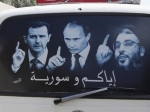 17.12.2015 MILITARY OPERATIONS IN PREPARATION IN AND AROUND SYRIA
17.12.2015 MILITARY OPERATIONS IN PREPARATION IN AND AROUND SYRIA
by Thierry Meyssan
The Western Press doesn’t have much to say about the military operations in Syria, except to affirm, without the slightest proof, that the Coalition is successfully bombing Daesh jihadists while the Russians continue to kill innocent civilians. It is in fact difficult to form a reasonable idea of the current situation, particularly since each side is readying its weapons in preparation for a wider conflict. Thierry Meyssan describes what is going on.
 10.12.2015 ARMENIANS IN THE MIDST OF CIVIL WARS: LEBANON AND SYRIA COMPARED
10.12.2015 ARMENIANS IN THE MIDST OF CIVIL WARS: LEBANON AND SYRIA COMPARED
Ara Sanjian
Since March 2011, Syria has been the arena of a vicious civil war, in which numerous world and regional powers have also become deeply involved. The long-term existence of the deep-rooted Armenian communities in various parts of Syria has also come under question because of this protracted conflict. An unmistakable feeling of deep unease and anxiety is evident among most Armenians worldwide as fighting persists and no peaceful settlement appears to be in sight.
 09.12.2015 COLUMBIA UNIVERSITY RESEARCHERS CONFIRM TURKEY’S LINKS TO ISIS
09.12.2015 COLUMBIA UNIVERSITY RESEARCHERS CONFIRM TURKEY’S LINKS TO ISIS
BY HARUT SASSOUNIAN
A team of Columbia University researchers from the United States, Europe, and Turkey confirmed last week that the Turkish government has provided to ISIS: military cooperation, weapons, logistical support, financial assistance, and medical services. This detailed investigation was headed by David L. Phillips, Director of the Program on Peace-building and Rights at Columbia University’s Institute for the Study of Human Rights. He had served as Senior Advisor and Foreign Affairs Expert for the U.S. Department of State.
 07.12.2015 THE MADNESS OF KING ERDOGAN
07.12.2015 THE MADNESS OF KING ERDOGAN
Gordon Duff
America and Israel, in playing up to Erdogan, perhaps even underestimating his grasp but more likely overlooking his long history of mental instability, have turned Turkey into a de facto nuclear power.
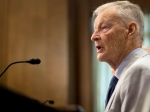 30.11.2015 ONCE A HAWK, BRZEZINSKI SEES HOPE FOR U.S.- RUSSIA RELATIONS
30.11.2015 ONCE A HAWK, BRZEZINSKI SEES HOPE FOR U.S.- RUSSIA RELATIONS
A Cold War hardliner explains why this time is very different.
By Michael Hirsh / November 27, 2015
As Jimmy Carter’s national security advisor in the mid-to-late 1970s, Zbigniew Brzezinski had a reputation as a Cold War hawk, engaging in a famous feud with the more dovish Secretary of State Cyrus Vance, who later resigned in protest.
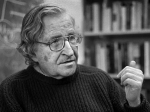 24.11.2015 TURKEY CONTINUES TO MUZZLE DEMOCRACY’S WATCHDOGS
24.11.2015 TURKEY CONTINUES TO MUZZLE DEMOCRACY’S WATCHDOGS
By Noam Chomsky and Christophe Deloire
Journalists are the “watchdogs” of democracy, according to the European Court of Human Rights. Anyone who wants to control a country without being troubled by criticism tries to muzzle reporters, and unfortunately, Turkish President Recep Tayyip Erdogan is a past master at stifling the cries of freedom. As journalists from around the world converge on Antalya to cover this weekend’s Group of 20 summit, many of their Turkish colleagues are being denied accreditation.
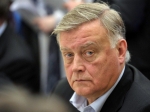 19.11.2015 THE ROLE OF INTERCIVILIZATIONAL DIALOGUE IN SECURING SUCCESSFUL INTERNATIONAL COOPERATION
19.11.2015 THE ROLE OF INTERCIVILIZATIONAL DIALOGUE IN SECURING SUCCESSFUL INTERNATIONAL COOPERATION
A Paper by Vladimir Yakunin, Founding President of the World Public Forum "Dialogue of Civilizations", delivered at the Beijing Forum on November 6, 2015
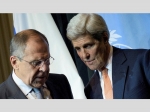 09.11.2015 TOWARDS A REVERSAL OF THE SITUATION IN THE NEAR EAST
09.11.2015 TOWARDS A REVERSAL OF THE SITUATION IN THE NEAR EAST
by Thierry Meyssan
The days of the « Arab Spring » are almost over. As of now, the White House and the Kremlin are redesigning the contours of the « Greater Middle East ». However, their agreement, which was concluded before the Russian military intervention in Syria, could still be modified by the changes in the balance of power. There is no proof that Moscow will accept the stabilisation of Syria or ignore the partition of Turkey and Saudi Arabia which are soon to begin.
 06.11.2015 EURASIAN ECONOMIC UNION AND ARMENIA
06.11.2015 EURASIAN ECONOMIC UNION AND ARMENIA
Areg Gharabegian
The Eurasian Economic Union (EEU) is an economic union of states which was established on May 2014 by the leaders of Belarus, Kazakhstan, and Russia, and came into effect on January 1, 2015. Armenia joined on January 2, 2015 and Kyrgyzstan joined on August 6, 2015.
 05.11.2015 GLOBAL COLONIALITY AND THE WORLD DISORDER. REVISITING BANDUNG, 1955
05.11.2015 GLOBAL COLONIALITY AND THE WORLD DISORDER. REVISITING BANDUNG, 1955
Remarks by Walter Mignolo, Director, Center for Global Studies and the Humanities, Duke University, prepared for the 13th Rhodes Forum
 04.11.2015 FUTURE OF INTERNATIONAL DEVELOPMENT INSTITUTIONS – CAN THEIR FAILURES BE EVEN BIGGER?
04.11.2015 FUTURE OF INTERNATIONAL DEVELOPMENT INSTITUTIONS – CAN THEIR FAILURES BE EVEN BIGGER?
A Paper by Václav Klaus, President of the Czech Republic (2003–2013), delivered at the 13th Rhodes Forum, October 11, 2015
 03.11.2015 VLADIMIR YAKUNIN TO THE 13TH RHODES FORUM
03.11.2015 VLADIMIR YAKUNIN TO THE 13TH RHODES FORUM
A Speech by Vladimir Yakunin, Founding President, WPF “Dialogue of Civilizations”, at the Opening Plenary Meeting of the 13th Rhodes Forum, October 9, 2015
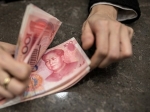 02.11.2015 CHINA’S NEW PAYMENTS SYSTEM POINTS WAY TO DE-DOLLARISED WORLD
02.11.2015 CHINA’S NEW PAYMENTS SYSTEM POINTS WAY TO DE-DOLLARISED WORLD
The mainland recently launched the China International Payments System (“CIPS”), enlisting an initial group of 19 domestic and international banks. As a cross-border yuan payments system it represents a major step in Beijing’s ambition to increase the distribution and improve the efficiency and international popularity of its currency. But, it is more than a payment transaction regime.
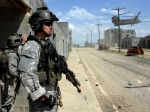 30.10.2015 RAND CO ON US AND CHINA’S MILITARY POWER
30.10.2015 RAND CO ON US AND CHINA’S MILITARY POWER
Vladimir Terehov
Evaluation of the balance of military capabilities of the two leading global players (the US and China) has long been in the focus of global “think tanks.” At the beginning of October this year, RAND Co. published a report titled, the U.S.-China Military Scorecard: Forces, Geography and the Evolving Balance of Power 1996-2017.
 29.10.2015 RUSSIAN EXPERT PROPOSES FORMULA TO EASE FRONTLINE TENSION
29.10.2015 RUSSIAN EXPERT PROPOSES FORMULA TO EASE FRONTLINE TENSION
In an interview with Tert.am, Vladimir Yevseyev, Head of the Caucasus Department at the Moscow-based CIS Institute, expressed his strong concerns over Azerbaijan’s recent heavy armed raids against Armenian civilians in the border region Tavush, calling for mutual efforts to push back armaments from the frontline. The expert said he thinks that Russian Foreign Minister Sergey Lavrov’s recent trip to Azerbaijan and his talks with President Ilham Aliyev was part of such efforts.
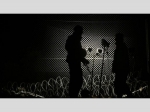 23.10.2015 THE DISINTEGRATION OF EUROPE
23.10.2015 THE DISINTEGRATION OF EUROPE
Philippe Legrain
If a clear signal was needed that the European Union is falling apart at an alarming rate, Hungary’s construction of razor-wire fences along the border with its fellow EU member Croatia is it. The crisis in the eurozone has, of course, fragmented financial flows, caused economies to diverge, eroded political support for EU institutions, and set Europeans against one another.
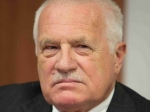 20.10.2015 FUTURE OF INTERNATIONAL DEVELOPMENT INSTITUTIONS – CAN THEIR FAILURES BE EVEN BIGGER?
20.10.2015 FUTURE OF INTERNATIONAL DEVELOPMENT INSTITUTIONS – CAN THEIR FAILURES BE EVEN BIGGER?
by Václav Klaus
Many thanks for the invitation, which gave me the first opportunity to visit this beautiful island. Last time, I was in Greece at the end of June, at a conference in Athens, discussing the untenable Greek debt crisis which had developed as a consequence of this country´s voluntary entry (and continuing membership) in the European monetary union. This arrangement became an unbearable constraint, if not a straitjacket for it.
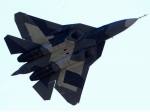 19.10.2015 PUTIN’S “ENDGAME” IN SYRIA
19.10.2015 PUTIN’S “ENDGAME” IN SYRIA
by MIKE WHITNEY
Russia doesn’t want to fight a war with Turkey, so Russian generals devised a simple, but effective plan to discourage Turkey from taking any action that could lead to a clash between the two nations.
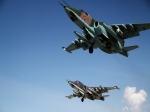 16.10.2015 DOES THE CREATION OF A BROAD COALITION IN SYRIA STAND A CHANCE?
16.10.2015 DOES THE CREATION OF A BROAD COALITION IN SYRIA STAND A CHANCE?
Vladimir Yevseyev
The antiterrorist coalition it created in the autumn of 2014 to fight ISIS proved ineffective because it confined itself to air strikes against highly mobile and well-trained militants. It is increasingly clear that the US has no Syria strategy of its own. The antiterrorist coalition it created in the autumn of 2014 to fight ISIS proved ineffective because it confined itself to air strikes against highly mobile and well-trained militants.
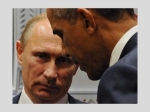 09.10.2015 MOSCOW AND WASHINGTON WORK TOGETHER TO RESTRUCTURE INTERNATIONAL RELATIONS
09.10.2015 MOSCOW AND WASHINGTON WORK TOGETHER TO RESTRUCTURE INTERNATIONAL RELATIONS
by Thierry Meyssan
While the Atlantist media seem to be falling sick, infected by a sudden attack of the anti-Russian fever, Thierry Meyssan interprets Moscow’s military action in Syria as the first step towards a complete revision of international relations. In his opinion, the important question is not so much whether Russia will save the Syrian Arab Republic from the jihadists, but whether Russia’s army could partially replace the US army in the region in order to guarantee security.
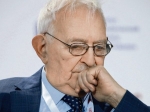 05.10.2015 RESURGENCE OF THE WORLD LEFT?
05.10.2015 RESURGENCE OF THE WORLD LEFT?
Immanuel Wallerstein
The sweeping triumph on September 24 of Jeremy Corbyn to be the leader of Great Britain’s Labour Party was stunning and totally unexpected. He entered the race with barely enough support to be put on the ballot. He ran on an uncompromisingly left platform. And then, standing against three more conventional candidates, he won 59.5% of the vote in an election that had an unusually high turnout of 76 percent.
 01.10.2015 DEVELOPMENT AND CREDIT FOR BUILDING A NEW GLOBAL ORDER
01.10.2015 DEVELOPMENT AND CREDIT FOR BUILDING A NEW GLOBAL ORDER
By Paolo Raimondi
This article recapitulates and summarises recent agreements and ongoing projects intended to build a new international monetary, financial and economic order to replace the moribund Bretton Woods System. At the heart of this transition, the five BRICS member-countries have set up a network of new banks, funds and financial facilities to support massive new infrastructural and industrial projects and revive international development with innovative technology and philosophies for integrated, sustainable growth.
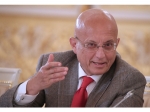 29.09.2015 A EURASIAN SOLUTION FOR EUROPE’S CRISES
29.09.2015 A EURASIAN SOLUTION FOR EUROPE’S CRISES
Sergei Karaganov
More than 18 months after former President Viktor Yanukovych was driven from power (and into exile), the crisis in Ukraine is at a stalemate. Crimea has been reabsorbed by Russia (in what many consider an annexation); much of eastern Ukraine is held by pro-Russia rebels; and relations between the West and Russia are more tense than at any time since the early days of the Cold War.
 28.09.2015 THE LOGIC AND RISKS BEHIND RUSSIA'S STATELET SPONSORSHIP
28.09.2015 THE LOGIC AND RISKS BEHIND RUSSIA'S STATELET SPONSORSHIP
Mother Russia can be quite generous when it comes to her collection of statelets. In the early 1990s, when a broken Russia had no choice but to suck in her borders, a severely distracted Kremlin still found the time and money to promote and sponsor the fledgling breakaway territories of South Ossetia and Abkhazia in Georgia and Transdniestria in Moldova.
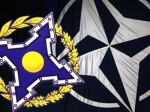 24.09.2015 THE CSTO ARRIVES IN IRAQ AND SYRIA
24.09.2015 THE CSTO ARRIVES IN IRAQ AND SYRIA
by Thierry Meyssan
The intervention of the CSTO (Collective Security Treaty Organisation) against terrorism in Iraq and Syria may be the beginning of a world order based on the cooperation and defence of civilian populations, or, on the contrary, a period of East-West confrontation in which the West openly supports terrorism.
 22.09.2015 THE GROWTH OF EXTREMISM AND THE FACTOR OF “INTELLECTUAL PARITY”
22.09.2015 THE GROWTH OF EXTREMISM AND THE FACTOR OF “INTELLECTUAL PARITY”
Gagik Harutyunyan
The global security today depends to a large extent on the developments in Middle East in the context of the Islamic State’s (IS) actions. However, the IS is just the tip of the iceberg; the Middle Eastern processes are closely related to what happens in Central and Southeast Asia and continental “yellow, hot Africa.” In addition, escalation due to actions of extremist groups occurs not only in these regions. In terms of a number of indicators the same logic applies to the events in Ukraine.
 11.09.2015 FORGET UKRAINE. IT’S BUSINESS AS USUAL BETWEEN EUROPE AND RUSSIA
11.09.2015 FORGET UKRAINE. IT’S BUSINESS AS USUAL BETWEEN EUROPE AND RUSSIA
BY JUDY DEMPSEY
It was just like the old days before the European Union imposed sanctions on Russia in 2014. At the Eastern Economic Forum in Vladivostokc Gazprom clinched three major deals with some of Europe’s biggest energy companies.
 10.09.2015 RUSSIAN OFFICER TO ST: SYRIAN ARMY'S VICTORIES PAVE THE GROUND FOR POLITICAL SOLUTION
10.09.2015 RUSSIAN OFFICER TO ST: SYRIAN ARMY'S VICTORIES PAVE THE GROUND FOR POLITICAL SOLUTION
Russian officer has underscored that Syrian army's victories pave the ground for political solution, indicating that the enemies of Syria cannot unite against it. Head of the Caucasian Division of the Institute of Commonwealth countries, Director of the Public Policy Research center, Dr. Vladimir V. Evseev told the Syriatimes e-newspaper that If Syrian army loses territories, compromise is impossible.
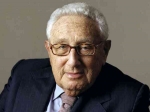 04.09.2015 THE INTERVIEW: HENRY KISSINGER
04.09.2015 THE INTERVIEW: HENRY KISSINGER
The National Interest’s editor, Jacob Heilbrunn, spoke with Henry Kissinger in early July in New York.
Jacob Heilbrunn: Why is realism today an embattled approach to foreign affairs, or perhaps not as significant as it was when you had figures such as Hans Morgenthau, George F.Kennan, Dean Acheson, then yourself in the 1970s—what has changed?
 03.09.2015 GLOBAL COMPETITIVENESS AND ARMENIA
03.09.2015 GLOBAL COMPETITIVENESS AND ARMENIA
By Areg Gharabegian
A comprehensive Global Competitiveness study has been conducted by World Economic Forum utilizing various indicators to rank 144 countries in different areas. This report is a short summary of the findings of that comprehensive study with emphasis on Armenia and its neighboring countries. The study was done at a time when the global economy seems to be finally leaving behind the worst and longest- lasting financial and economic crisis of the past 80 years.
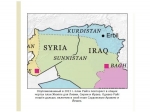 01.09.2015 AN INSANE AMBITION WHICH IS TURNING INTO A CIVIL WAR
01.09.2015 AN INSANE AMBITION WHICH IS TURNING INTO A CIVIL WAR
Clinton, Juppé, Erdoğan, Daesh and the PKK
by Thierry Meyssan
The resumption of the repression of Kurds in Turkey is nothing more than a consequence of the impossible task of implementing the Juppé-Wright plan of 2011. While it was easy to deploy Daesh in the Syrian desert and the provinces of Niniveh and d’al-Anbar (Iraq), which are mostly Sunnite, it proved to be impossible to take control of the Kurdish populations of Syria. In order to realise his dream of a Kurdistan outside of Turkey, Recep Tayyip Erdoğan has no other choice but civil war.
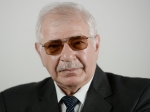 31.08.2015 THE GROWTH OF EXTREMISM AND THE FACTOR OF “INTELLECTUAL PARITY”
31.08.2015 THE GROWTH OF EXTREMISM AND THE FACTOR OF “INTELLECTUAL PARITY”
A Paper by Gagik Harutyunyan, Executive Director, Noravank Scientific Educational Foundation, submitted for the Rhodes Forum Scientific Marathon - 2015
The global security today depends to a large extent on the developments in Middle East in the context of the Islamic State’s (IS) actions. However, the IS is just the tip of the iceberg; the Middle Eastern processes are closely related to what happens in Central and Southeast Asia and continental “yellow, hot Africa.”
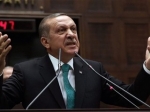 31.08.2015 TURKEY IN DANGER
31.08.2015 TURKEY IN DANGER
by Thierry Meyssan
While the Western Press salutes the authorisation given by Turkey to the United States, allowing the US to use its military bases in order to fight Daesh, Thierry Meyssan looks at the nation’s internal tensions. In his view, maintaining Mr. Erdoğan in power, as well as the lack of a new majority during the next general elections, will rapidly lead to civil war.
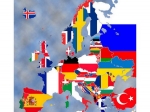 30.07.2015 CRISES AND DISCORD UNDERMINING EUROPEAN PROJECT
30.07.2015 CRISES AND DISCORD UNDERMINING EUROPEAN PROJECT
by Nat Parry
The near collapse of the Greek economy and the harsh austerity package forced on Athens by the European Union has led to increasing commentary in recent weeks on what the developments might mean for the “European project” – the one-time seemingly inevitable drive on the European continent for an “ever closer union” based on principles of economic, social and territorial cohesion and solidarity among EU member states.
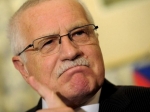 21.07.2015 VÁCLAV KLAUS: I THINK THAT MANY PEOPLE, ESPECIALLY IN EUROPE STILL LIVE IN A NIRVANA OF SELF-SATISFACTION
21.07.2015 VÁCLAV KLAUS: I THINK THAT MANY PEOPLE, ESPECIALLY IN EUROPE STILL LIVE IN A NIRVANA OF SELF-SATISFACTION
An Interview with Václav Klaus, former President of the Czech Republic, for Global Gold, February 2015
“The European integration process which started as an attempt to build a friendly and cooperating community of nations has been transformed to a totally different construct, to the European Union.
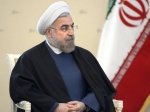 20.07.2015 DIFFICULT TALKS ON IRAN’S NUCLEAR ISSUE
20.07.2015 DIFFICULT TALKS ON IRAN’S NUCLEAR ISSUE
Vladimir Evseev
Nuclear talks in Vienna have been extended amid disagreements over the lifting of an arms embargo on Iran, but western diplomats remained hopeful that an agreement could be reached relatively soon.
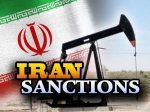 06.07.2015 IRAN: AN ATTEMPT TO BYPASS THE SANCTIONS
06.07.2015 IRAN: AN ATTEMPT TO BYPASS THE SANCTIONS
Sergey Sargsyan
In negotiations around Iran’s nuclear program that last over 10 years now, even preliminary concluded agreements made it possible to somewhat ease the sanctions against the country imposed by the USA, EU and UN. However, there is no mention about lifting those altogether. Even the partial relief is under a big question.
 02.07.2015 EUROPE’S ATTACK ON GREEK DEMOCRACY
02.07.2015 EUROPE’S ATTACK ON GREEK DEMOCRACY
Joseph E. Stiglitz
NEW YORK – The rising crescendo of bickering and acrimony within Europe might seem to outsiders to be the inevitable result of the bitter endgame playing out between Greece and its creditors. In fact, European leaders are finally beginning to reveal the true nature of the ongoing debt dispute, and the answer is not pleasant: it is about power and democracy much more than money and economics.
 30.06.2015 CHINA’S “SILK ROAD” ENRICHES ITS INFLUENCE ON SOUTH AMERICA
30.06.2015 CHINA’S “SILK ROAD” ENRICHES ITS INFLUENCE ON SOUTH AMERICA
by Ariel Noyola Rodríguez
During his tour through Brazil and Peru, China’s Prime Minister Li Keqiang committed to the construction of the “Silk Road” of South America; a continental train that would connect the Atlantic to the Pacific. Within its objectives, this mega-project will seek to impulse the industrialization and with that, to promote economic development in the region.
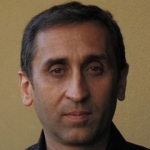 26.06.2015 NEARING THE END OF THE ERDOĞAN SYSTEM
26.06.2015 NEARING THE END OF THE ERDOĞAN SYSTEM
by Thierry Meyssan
In December 2014, Thierry Meyssan announced the fall of Recep Tayyip Erdoğan, while almost all other international commentators still persisted in believing that he would win the legislative elections. Mr. Meyssan returns here to examine the career of the Turkish President.
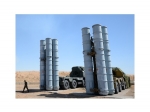 16.06.2015 S-300 AIR DEFENSE SYSTEMS: POTENTIAL CONSEQUENCES OF BARTERING WITH IRAN
16.06.2015 S-300 AIR DEFENSE SYSTEMS: POTENTIAL CONSEQUENCES OF BARTERING WITH IRAN
Vladimir Evseev
On April 13, 2015 President Vladimir Putin signed an executive order lifting the ban on transit through Russian territory and also the transfer to the Islamic Republic of Iran of air defense missile systems S-300. This makes it possible to implement the contract, signed in 2006−2007, on supplying Iran with five S-300 PMU-1 air defense systems.
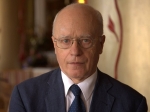 09.06.2015 WORLD ORDER AND NATIONAL INTEREST
09.06.2015 WORLD ORDER AND NATIONAL INTEREST
A Keynote Speech by Hans Köchler, President of the International Progress Organization, delivered at the 15th International Scientific Likhachev Conference “Contemporary Global Challenges and National Interests”, May 14, 2015.
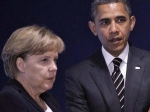 04.06.2015 GERMANY FALLS OUT OF LOVE WITH AMERICA
04.06.2015 GERMANY FALLS OUT OF LOVE WITH AMERICA
By JOHN VINOCUR
Anti-Americanism offers cheap German nationalism with a good conscience. Angela Merkel should resist.
Anti-Americanism has become a fungible aspect of German politics. Blaming-the-Amis is now established as hard currency in matters of security, trade and in setting the tone of public discussion—either directly and gratingly, or managed more evasively but with real recognition of this harsh disaffection’s potential as a voter-getter.
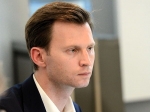 01.06.2015 THE DOUBLE DEATH OF EUROPE
01.06.2015 THE DOUBLE DEATH OF EUROPE
By Adrian Pabst
The continual crisis in the Eurozone and in Ukraine poses the most serious danger to Europe since the darkest days of the Cold War. Economic devastation in the south and war in the east cast a long shadow over the European Union and the wider Europe. Arguably the post-1945 promise of peace and prosperity no longer holds. The 28 EU member-states are home to high standards of living for many and the biggest single market with over 550 million consumers, but the 2008 crash exposed the sheer precariousness of the much-vaunted European social models and ways of life.
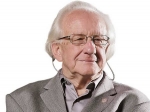 27.05.2015 THE YEAR 2015: FIRST THIRD REPORT
27.05.2015 THE YEAR 2015: FIRST THIRD REPORT
By Johan Galtung
The 19 January editorial “The Year 2015-What Are We in For?” identified four unfolding, dramatic processes: the West will continue fighting unsuccessfully and violently to keep their world grip; Eurasia will expand and consolidate successfully and nonviolently; Islam will expand and consolidate partly violently; Latin America and Africa will expand and consolidate, spearheaded by Brazil, South Africa, BRICS.
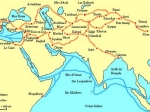 25.05.2015 THE FALL OF PALMYRA UPSETS GEOPOLITICAL BALANCE IN THE LEVANT
25.05.2015 THE FALL OF PALMYRA UPSETS GEOPOLITICAL BALANCE IN THE LEVANT
by Thierry Meyssan
The situation has considerably worsened in the Levant since the Islamic Emirate cut the ancient « Silk Road », the route which links Iran to the Mediterranean. There remain only two possible options : either via Deir ez-Zor and Aleppo, or else via Palmyra and Damascus. The first route has been disabled since the beginning of 2013, the second has just been cut. The fall of Palmyra will therefore have considerable consequences for the balance of the whole region.
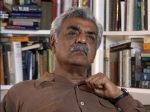 21.05.2015 THE NEW WORLD DISORDER
21.05.2015 THE NEW WORLD DISORDER
By Tariq Ali
Three decades ago, with the end of the Cold War and the dismantling of the South American dictatorships, many hoped that the much talked about ‘peace dividend’ promised by Bush senior and Thatcher would actually materialise. No such luck. Instead, we have experienced continuous wars, upheavals, intolerance and fundamentalisms of every sort – religious, ethnic and imperial. The exposure of the Western world’s surveillance networks has heightened the feeling that democratic institutions aren’t functioning as they should, that, like it or not, we are living in the twilight period of democracy itself.
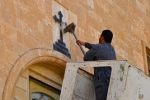 04.05.2015 DESTROYING CHRISTIAN CULTURAL HERITAGE SITES: DON'T ONLY CONDEMN ISIS, BUT ALSO THESE GLOBALLY RECOGNIZED GOV'T
04.05.2015 DESTROYING CHRISTIAN CULTURAL HERITAGE SITES: DON'T ONLY CONDEMN ISIS, BUT ALSO THESE GLOBALLY RECOGNIZED GOV'T
By Haykaram Nahapetyan
A recent video on the destruction of ancient monuments by Islamic State in the Middle East has shocked the international community. The ISIS has sought to justify destruction of Assyrian ancient monuments in Northern Iraq by Islamic norms. The International community's reaction was predictable: the United Nations' cultural agency labeled those actions as a war crime, calling the world to "respond to this criminal chaos that destroy culture" and "put an end to this catastrophe".
 29.04.2015 INSIGHTS INTO TURKISH DOMESTIC AND INTERNATIONAL POLITICS
29.04.2015 INSIGHTS INTO TURKISH DOMESTIC AND INTERNATIONAL POLITICS
By John VanPool
Key Points:
- Prime Minister Erdogan claims Iran is attempting to divide and conquer the Middle East, but tempers his criticisms following a visit to Tehran...
 22.04.2015 COULD CHRISTIANITY BE DRIVEN FROM MIDDLE EAST?
22.04.2015 COULD CHRISTIANITY BE DRIVEN FROM MIDDLE EAST?
By Jane Corbin
Can Christianity survive, in the face of persecution and conflict, in the region of its birth? The BBC's Jane Corbin travelled across the Middle East - through Iraq and Syria - to investigate the plight of Christians, as hundreds of thousands flee Islamic militancy in the region.
 15.04.2015 CAN WE MOVE TOWARDS A MULTIPOLAR WORLD DESPITE HEGEMONY IN THE MEDIA?
15.04.2015 CAN WE MOVE TOWARDS A MULTIPOLAR WORLD DESPITE HEGEMONY IN THE MEDIA?
by Roberto Quaglia
States struggling against imperialism are probably not sufficiently aware of the importance of having non-aligned media. Yet, obviously, Russia Today, Press TV, Telesur and Al Mayadeen are better at defending freedom than other weapons. For these are indeed weapons we are talking about.
 13.04.2015 HOW AMERICA BECAME AN OLIGARCHY
13.04.2015 HOW AMERICA BECAME AN OLIGARCHY
By Ellen Brown
According to a new study from Princeton University, American democracy no longer exists. Using data from over 1,800 policy initiatives from 1981 to 2002, researchers Martin Gilens and Benjamin Page concluded that rich, well-connected individuals on the political scene now steer the direction of the country, regardless of – or even against – the will of the majority of voters. America’s political system has transformed from a democracy into an oligarchy, where power is wielded by wealthy elites.
 07.04.2015 GERMAN INTRANSIGENCE RAISES SPECTRE FOR ‘GREXIT’
07.04.2015 GERMAN INTRANSIGENCE RAISES SPECTRE FOR ‘GREXIT’
Nile Bowie
Greece’s newly elected government, led by the leftist Syriza coalition that swept into power in January on an anti-austerity platform, finds itself in a highly unenviable position. Athens is burdened by colossal debt, imminent liquidity problems and a looming banking collapse. What is at stake for Greece now is its very ability to survive economically within the euro-zone.
 01.04.2015 AMERICAN INFORMATION WEAPON USED AGAINST EUROPEAN POLITICIANS
01.04.2015 AMERICAN INFORMATION WEAPON USED AGAINST EUROPEAN POLITICIANS
by Georgy Voskresensky
Anonymous first appeared in 2003 on Internet image boards as a group of hackers espousing the freedom of speech and operating as an «anarchist global digital brain». It is an instrument or a weapon designed to be used in information warfare. It has an advantage - in many cases it is extremely hard to define who exactly used it.
 31.03.2015 IT INDEPENDENCE IS NATIONAL SECURITY
31.03.2015 IT INDEPENDENCE IS NATIONAL SECURITY
Author: Ulson Gunnar
The NSA’s “Equation Group” is apparently behind the infection with malware of hard drive firmware on computers used by nations considered “enemies” by the United State. The installation of the malware is believed to have required access to trade secrets of IT manufacturers as well as physical access to the soon-to-be infected computers. Popular Science in their article “The World’s Most Sophisticated Malware Ever Infects Hard Drive Firmware“ suggests that the NSA intercepted computers in transit through global logistical chains.
31.03.2015 EUROPE ALSO PIVOTS – TO CHINA
By M. K. Bhadrakumar
The decision by Britain to seek admission to the Asian Infrastructure Investment Bank [AIIB] as a founding member apparently took Washington by surprise. The State Department spokesperson admitted that there was “virtually no consultation with the US” and that it was “a sovereign decision made by the United Kingdom.”
 23.03.2015 WASHINGTON’S WAR ON RUSSIA
23.03.2015 WASHINGTON’S WAR ON RUSSIA
by Mike Whitney
“In order to survive and preserve its leading role on the international stage, the US desperately needs to plunge Eurasia into chaos, (and) to cut economic ties between Europe and Asia-Pacific Region … Russia is the only (country) within this potential zone of instability that is capable of resistance. It is the only state that is ready to confront the Americans. Undermining Russia’s political will for resistance… is a vitally important task for America.”
 16.03.2015 DOES RUSSIA POSE A NAVAL THREAT FOR THE WEST IN MEDITERRANEAN?
16.03.2015 DOES RUSSIA POSE A NAVAL THREAT FOR THE WEST IN MEDITERRANEAN?
By Pavel Koshkin
Even though the Kremlin is taking steps to increase its naval influence in the Mediterranean, the West doesn’t see this stance as a threat or a return to a Cold War-style arms race.
 09.03.2015 AMERICA'S 'WEAPONIZED' DIPLOMACY IN UKRAINE
09.03.2015 AMERICA'S 'WEAPONIZED' DIPLOMACY IN UKRAINE
James Carden
Thirty years ago, the historian and diplomat George F. Kennan published a seminal essay in Foreign Affairs titled “Morality and Foreign Policy” in which he decried the stubborn tendency of the stewards of American foreign policy to treat every problem of geopolitics that arises in the course of human events as soluble, and what’s more, soluble by the American government.
 05.03.2015 THE FUTURE OF THE MIDDLE EAST
05.03.2015 THE FUTURE OF THE MIDDLE EAST
by Thierry Meyssan
For several months, Barack Obama has been trying to change US policy in the Middle East in order to eliminate the Islamic Emirate with the help of Syria. But he cannot do this, partly because he has been saying for years that President Assad must go, and secondly because his regional allies support the Islamic Emirate against Syria.
 20.02.2015 BROKEN HEARTS CLUB: 6 ALLIES AMERICA NEEDS TO DIVORCE
20.02.2015 BROKEN HEARTS CLUB: 6 ALLIES AMERICA NEEDS TO DIVORCE
The United States has spent decades collecting allies like many people accumulate Facebook “Friends.
”It’s hard to get out of a bad relationship. The good times may be over and the once vibrant connection may be dead, but people just can’t admit that it’s time to say goodbye.
 10.02.2015 THE MESSAGE OF SYRIZA’S VICTORY
10.02.2015 THE MESSAGE OF SYRIZA’S VICTORY
By Mark Weisbrot, CounterPunch, February 3, 2015
Everyone seems to agree that Syriza’s big victory in Greece is a milestone for Europe, which has been plagued by mass unemployment and a failure to really recover from the financial crisis and world recession of 2008-09. But what kind of a milestone will it be? We can get some ideas from focusing on a few key issues, especially economic policy, which remain surrounded by much confusion in the public debate.
 09.02.2015 IRAN AND SOUTH CAUCASUS: THE IMPLICATIONS OF “FREEZING”
09.02.2015 IRAN AND SOUTH CAUCASUS: THE IMPLICATIONS OF “FREEZING”
Sevak Sarukhanyan
Although Iran and the six powers were unable to reach an agreement on the nuclear issue in 2014, the negotiations will continue in 2015 and there is a theoretical chance that if not full, then at least some partial settlement will be reached in the relations between Tehran and Washington. The article presents the potential corollaries that such arrangement may bring for South Caucasus.
 05.02.2015 WAR BY MEDIA AND THE TRIUMPH OF PROPAGANDA
05.02.2015 WAR BY MEDIA AND THE TRIUMPH OF PROPAGANDA
By John Pilger
Why has so much journalism succumbed to propaganda? Why are censorship and distortion standard practice? Why is the BBC so often a mouthpiece of rapacious power? Why do the New York Times and the Washington Post deceive their readers?
 03.02.2015 THE COLLAPSE OF EUROPE?
03.02.2015 THE COLLAPSE OF EUROPE?
The European Union May Be on the Verge of Regime Collapse
By John Feffer
Not long after the Berlin Wall fell a quarter of a century ago, the Soviet Union collapsed, the United States squandered its peace dividend in an attempt to maintain global dominance, and Europe quietly became more prosperous, more integrated, and more of a player in international affairs.
 02.02.2015 PEACE INSTEAD OF NATO
02.02.2015 PEACE INSTEAD OF NATO
By Oskar Lafontaine
For the vast majority of the population of the former Federal Republic, NATO has been the guarantor of peace and freedom for a long time. Anti-communism, fuelled by the fear of the Soviet Union operated by the world revolution, the Berlin Blockade and the construction of the Berlin Wall left little room to think about alternatives to NATO.
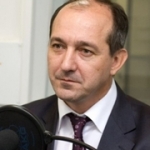 29.01.2015 FAILURE TO SAVE INF TREATY WOULD JEOPARDIZE EUROPEAN SECURITY
29.01.2015 FAILURE TO SAVE INF TREATY WOULD JEOPARDIZE EUROPEAN SECURITY
Vladimir Evseev
Termination of the Intermediate-Range Nuclear Forces Treaty could lead to an arms race in Europe and a rise in Cold War rhetoric.
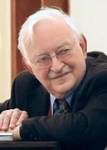 12.01.2015 NATO: DANGER TO WORLD PEACE
12.01.2015 NATO: DANGER TO WORLD PEACE
By Immanuel Wallerstein
The official mythology is that between 1945 (or 1946) and 1989 (or 1991), the United States and the Soviet Union (USSR) confronted each other continuously – politically, militarily, and above all ideologically. This was called the “cold war.” If it was a war, the word to underline is “cold” since the two powers never engaged in any direct military action against each other throughout the entire period.
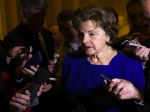 26.12.2014 THE CONGRESSIONAL REPORT ON TORTURE CONFIRMS THAT AL QAEDA WAS NOT INVOLVED IN THE ATTACKS OF SEPTEMBER 11
26.12.2014 THE CONGRESSIONAL REPORT ON TORTURE CONFIRMS THAT AL QAEDA WAS NOT INVOLVED IN THE ATTACKS OF SEPTEMBER 11
by Thierry Meyssan
Publicly released excerpts of the report of the Senate Committee on the CIA’s secret torture program reveal a vast criminal organization. Thierry Meyssan has read for you the 525 pages of this document. He found evidence of what he has been saying for years.
 25.12.2014 DISCUSSION OF ARMENIA’S GEOPOLITICAL STANDPOINTS IN DIASPORA
25.12.2014 DISCUSSION OF ARMENIA’S GEOPOLITICAL STANDPOINTS IN DIASPORA
Anna Zhamakochyan
In the recent years the Republic of Armenia (RoA) has been involved in geopolitical integration processes. Since 2010 the RoA was involved in the negotiation process for Deep and Comprehensive Free Trade Agreement with the EU, while in 2013 the RoA president announced about Armenia’s readiness to join the Customs Union of Russia, Kazakhstan and Belarus (and in future also the Eurasian Union).
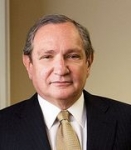 22.12.2014 VIEWING RUSSIA FROM THE INSIDE
22.12.2014 VIEWING RUSSIA FROM THE INSIDE
By George Friedman
Last week I flew into Moscow, arriving at 4:30 p.m. on Dec. 8. It gets dark in Moscow around that time, and the sun doesn't rise until about 10 a.m. at this time of the year — the so-called Black Days versus White Nights. For anyone used to life closer to the equator, this is unsettling. It is the first sign that you are not only in a foreign country, which I am used to, but also in a foreign environment.
 18.12.2014 APEC SUMMIT SHOWED THAT THE AGE OF ASIA HAS ARRIVED
18.12.2014 APEC SUMMIT SHOWED THAT THE AGE OF ASIA HAS ARRIVED
Sergey Grinyaev, General Director of independent NGO Centre of Strategic Estimations and Forecasts commented on the APEC summit held in the Chinese capital during an interview with Pravda.Ru reporter.
 15.12.2014 EEU AND ARMENIA
15.12.2014 EEU AND ARMENIA
(Possible Scenarios and Mythologems)
Gagik Harutyunyan
The Republic of Armenia (RoA) membership in the Eurasian Economic Union (EEU) is a large-scale strategic process that relates to almost all areas of our society’s daily activities. Hence, it has to be stated that any claims that EEU is purely an economic union are groundless and the events in Ukraine make this evident. In the context of the Eurasian integration process we shall attempt to briefly present some considerations that are related to the military, political and information security areas of the Third Republic of Armenia.
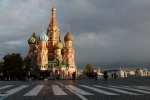 11.12.2014 FROM DA TO NYET: HOW U.S. DIPLOMACY HELPED TRANSFORM RUSSIA FROM POTENTIAL ALLY INTO STRATEGIC ADVERSARY
11.12.2014 FROM DA TO NYET: HOW U.S. DIPLOMACY HELPED TRANSFORM RUSSIA FROM POTENTIAL ALLY INTO STRATEGIC ADVERSARY
Raymond Smith
The intense diplomatic activity that accompanies the end of a major international war has two broad objectives: first, for the winners, maximizing their gains and, for the losers, minimizing their losses; second, creating a new and more stable international system so that a renewal of the carnage the participants have just endured is less likely. The Thirty Years’ War, the War of the Spanish Succession, the French Revolutionary and Napoleonic Wars and World Wars I and II all either followed or produced a breakdown of the old system.
 01.12.2014 WHY UKRAINE MUST BARGAIN FOR PEACE WITH RUSSIA
01.12.2014 WHY UKRAINE MUST BARGAIN FOR PEACE WITH RUSSIA
By Samuel Charap
The "let's make a deal" moment has arrived for Kiev and Moscow. But by pushing a hard-line agenda against Putin, the United States and Europe are only making things worse for Ukraine.
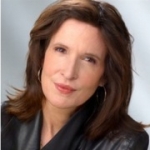 27.11.2014 RETHINKING THE COST OF WESTERN INTERVENTION IN UKRAINE
27.11.2014 RETHINKING THE COST OF WESTERN INTERVENTION IN UKRAINE
By Katrina vanden Heuvel
Samantha Power, the U.S. ambassador to the United Nations, recently cautioned Americans against intervention fatigue: “I think there is too much of ‘Oh, look, this is what intervention has wrought’ . . . one has to be careful about overdrawing lessons.” Say what?
 20.11.2014 SENSITIVITY THRESHOLDS OF COUNTRIES WITH TRANSITIONAL ECONOMIES: THE CASE OF ARMENIA
20.11.2014 SENSITIVITY THRESHOLDS OF COUNTRIES WITH TRANSITIONAL ECONOMIES: THE CASE OF ARMENIA
Ashot A. Tavadyan
The analysis of sensitivity thresholds of economy enables to identify the critical characteristics of key economic processes of transition from quantity to a new economic quality. The complex investigation of sensitivity thresholds of economy conduces to the identification of their interrelations. Since uncertainty intervals are present in economy, it is possible to present only the interval forecast of sensitivity thresholds.
17.11.2014 CHRISTIANITY IN THE MIDDLE EAST
The Christian presence in the Middle East has created, throughout centuries, a unique phenomenon which grew on the margins of non-Christian States and among them. It is worth mentioning that the Christian presence was neither incidental nor recent, for its roots date back to the time before Islam had appeared as a religion which later became a vastly expanded State.
13.11.2014 HISTORICAL TRUTH AGAINST TURKISH AND AZERBAIJANI FALSIFICATIONS IN INFORMATION WARFARE
Eduard L. Danielyan
More than five millennia-old ethno-spiritual, political and cultural roots of the Armenian statehood in the Armenian Highland are attested to by the archaeological and architectural monuments, petroglyphs, cuneiform, ancient and medieval written and other historic sources. Historical truth is the backbone and informational defensive shield of the national security of Armenia.
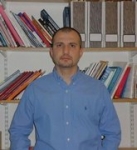 10.11.2014 CRIMEA IS JUST ONE EPISODE IN RUSSIA’S LONG GAME IN POST-SOVIET EURASIA
10.11.2014 CRIMEA IS JUST ONE EPISODE IN RUSSIA’S LONG GAME IN POST-SOVIET EURASIA
Simon Saradzhyan
Anyone with good knowledge of post-Soviet neighborhood and time to think things through should have guessed that Russia would have acted to prevent the interim government of Ukraine from decisively anchoring their country to the West.
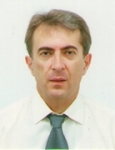 06.11.2014 CORRUPTION VS. CHRISTIAN ETHICS
06.11.2014 CORRUPTION VS. CHRISTIAN ETHICS
Tigran Babasyan
This article is an integral part of a larger inquiry on the subject drawing on the related fields of knowledge without which it is impossible to identify the ongoing problematics and unknot its intertwined intricacy. However, it tends to dwell more on the two basic issues underlying the subject matter.
30.10.2014 FOR ANKARA, IS MASSACRE A POLICY OPTION?
by Thierry Meyssan
Is the new alliance between Turkey and France concerned only with economic issues, to wit entry into the European Union, or is it purely political? In this case, must Paris provide cover for Ankara whatever the policy? Does this support go as far as genocide?
27.10.2014 THE TROJAN WAR AND THE “PORCELAIN OF PRAGUE”: A COMPARATIVE ANALYSIS BETWEEN THE CONFLICTS OF CYPRUS, NAGORNO-KARABAKH AND KOSOVO
Yiannos Charalambides
It is obvious and has been proved throughout the history of humanity that the international system has been suffering from the historical, social, political and economic phenomenon of conflicts and wars. This is why the reasons of triggering a war are always pursued in order to work out a formula to prevent conflicts and wars.
 20.10.2014 GLOBAL SYSTEMIC CRISIS – 2015: THE WORLD IS DEFECTING TO THE EAST
20.10.2014 GLOBAL SYSTEMIC CRISIS – 2015: THE WORLD IS DEFECTING TO THE EAST
Two important facts emerge from the past four weeks’ news. First, China is becoming the world’s largest economic power, officially overtaking the US, based on GDP measured in purchasing power terms (IMF figures) of $17.61 trillion (compared to $17.4 trillion for the US). If the official media hasn’t raised the slightest eyebrow to this information, our team believes that it’s an historic event: the US is no longer the world’s largest economic power and, inevitably, that changes everything!
 16.10.2014 NON-INTERVENTIONISM – THE FORGOTTEN DOCTRINE
16.10.2014 NON-INTERVENTIONISM – THE FORGOTTEN DOCTRINE
A Paper by John Laughland, Director of Studies, Institute of Democracy and Cooperation (Paris), delivered at the 12th Rhodes Forum on September 26, 2014
I would like to draw attention to a specific characteristic of Western-backed regime change as it has been practised in recent years and decades. In nearly all cases, regime change has been accompanied by criminal prosecution of the old regime.
 13.10.2014 CAN CHINA AND RUSSIA SQUEEZE WASHINGTON OUT OF EURASIA?
13.10.2014 CAN CHINA AND RUSSIA SQUEEZE WASHINGTON OUT OF EURASIA?
By Pepe Escobar, TomDispatch
A specter haunts the fast-aging “New American Century”: the possibility of a future Beijing-Moscow-Berlin strategic trade and commercial alliance. Let’s call it the BMB. Its likelihood is being seriously discussed at the highest levels in Beijing and Moscow, and viewed with interest in Berlin, New Delhi, and Tehran. But don’t mention it inside Washington’s Beltway or at NATO headquarters in Brussels.
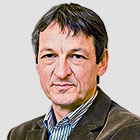 13.10.2014 NEOLIBERALISM HAS BROUGHT OUT THE WORST IN US
13.10.2014 NEOLIBERALISM HAS BROUGHT OUT THE WORST IN US
by Paul Verhaeghe
We tend to perceive our identities as stable and largely separate from outside forces. But over decades of research and therapeutic practice, I have become convinced that economic change is having a profound effect not only on our values but also on our personalities. Thirty years of neoliberalism, free-market forces and privatisation have taken their toll, as relentless pressure to achieve has become normative.
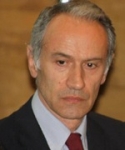 10.10.2014 IDENTITARIAN REDUCTIONISM AND GEOPOLITICAL ANALYSIS
10.10.2014 IDENTITARIAN REDUCTIONISM AND GEOPOLITICAL ANALYSIS
By Tiberio Graziani
Since the revolution led by Khomeini and the involvement of the mujahideen movement in the coeval soviet-afghan war, the study of the relation between religion and geopolitical analysis has led to a renovated interest among researchers and analysts. The two episodes, in fact, in addition to being an important geopolitical event, in some ways a forerunner of incipient disintegration of the bipolar system, has reinstated the religious element in the international dynamics as an essential factor useful for understanding the global scenarios.
 06.10.2014 HUMAN RIGHTS ABUSES IN AZERBAIJAN TOO BLATANT TO COVER UP
06.10.2014 HUMAN RIGHTS ABUSES IN AZERBAIJAN TOO BLATANT TO COVER UP
Commenting on the West’s reaction to the human rights situation in Azerbaijan, the political analyst Gagik Harutyunyan said he believes that the international community is thus seeking a kind of information pressure against the country.
29.09.2014 INSIGHTS INTO TURKISH DOMESTIC AND INTERNATIONAL POLITICS DURING AUG. 16TH - SEPT. 15TH 2014
By John VanPool
Key Points:
- New Prime Minister Ahmet Davuglotu announces his cabinet with few surprises, save the re-appointment of economic policy heads Ali Babacan and Mehmet Simsek. The cabinet will continue to carry out its predecessor’s policies, though Turkey’s de facto leader remains President Recep Tayyip Erdogan.
 26.09.2014 GLOBAL CONTEXT
26.09.2014 GLOBAL CONTEXT
“The World War I turned out a momentous event for us, as Genocide took place and we lost Western Armenia. The current processes in aggregate are reminiscent of the WWI”, says Gagik HARUTYUNYAN, Director of Noravank Foundation.
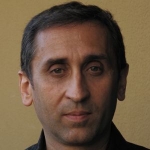 24.09.2014 WHO MAKES UP THE "ISLAMIC EMIRATE"?
24.09.2014 WHO MAKES UP THE "ISLAMIC EMIRATE"?
by Thierry Meyssan
While Western public opinion is fed information about the constitution of a purported international coalition to fight against the "Islamic Emirate", the latter changes shape discreetly. Its principal officers are no longer Arab, but Georgian and Chinese. For Thierry Meyssan, this mutation shows that NATO ultimately intends to use the "Islamic Emirate" in Russia and in China. Therefore, both countries must act now against the jihadists before they return to sow chaos in their countries of origin.
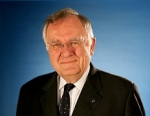 08.09.2014 THE SPIRITUAL HERITAGE AS A SOURCE OF WISDOM IN THE AGE OF GLOBALISATION
08.09.2014 THE SPIRITUAL HERITAGE AS A SOURCE OF WISDOM IN THE AGE OF GLOBALISATION
A Keynote Speech by Dr.Walter Schwimmer, Former Secretary General of the Council of Europe (1999-2004), Co-Chairman, World Public Forum “Dialogue of Civilizations”, presented at the 12th Annual GCGI International Conference and the 2nd Joint GCGI and SES Forum “The Value of Values: Spiritual Wisdom in Everyday Life”, 31 August-4 September, 2014, Waterperry House, Oxford
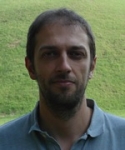 04.09.2014 THE SOCIAL COSTS OF THE EU-RUSSIA SPLIT
04.09.2014 THE SOCIAL COSTS OF THE EU-RUSSIA SPLIT
By Raffaele Marchetti
There is a big discussion about the high costs that EU Member States and Russia are going to pay as the result of the current waves of sanctions and countermeasures related to the Ukrainian crisis. Currently, the EU exports to Russia € 140 billion, conversely Russia exports to the EU around €180 billion.
 01.09.2014 THE BATTLE AGAINST BARBARISM
01.09.2014 THE BATTLE AGAINST BARBARISM
By Adrian Pabst
For the past few weeks, the world has watched on in horror as ISIS has intensified its barbarian campaign, killing thousands in unspeakably brutal ways and expelling many more. Eyewitness reports tell a gruesome story of summary executions, beheadings and crucifixions – Christians being nailed alive to crosses and left there to be bleed to death. The severed heads and mutilated bodies have been paraded outside conquered villages.
 31.07.2014 EUROPE AWAKE!
31.07.2014 EUROPE AWAKE!
Fred Dallmayr
In this year, 2014, we commemorate the 100th anniversary of the beginning of World War I, that ferocious war in which “Old Europe” - the Europe of the “Belle Epoque”, the Europe of traditional monarchies and dynasties - was destroyed. For the peoples of Europe it was an immense bloodletting, epitomized by trench warfare and the battle of Verdun. The war also laid the foundation for subsequent catastrophes.
 29.07.2014 INSIGHTS INTO TURKISH DOMESTIC AND INTERNATIONAL POLITICS BETWEEN 16 MAY – 16 JULY 2014
29.07.2014 INSIGHTS INTO TURKISH DOMESTIC AND INTERNATIONAL POLITICS BETWEEN 16 MAY – 16 JULY 2014
By John VanPool
Iraq implodes as the Islamic State (IS, formerly known as the Islamic State of Iraq and the Levant or alternatively the Islamic State of Iraq and Syria) allies with Iraqi Sunnis to overtake large swaths of the country’s northwest, including the city of Mosul. Turkish hostages are taken in the city, and the Kurdish Regional Government of Iraq halts IS’s march towards oil-rich Kirkuk.
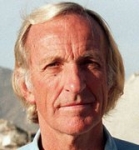 21.07.2014 THE WORLD WE'VE CONSTRUCTED IS FAR BEYOND GEORGE ORWELL'S WORST NIGHTMARE
21.07.2014 THE WORLD WE'VE CONSTRUCTED IS FAR BEYOND GEORGE ORWELL'S WORST NIGHTMARE
By John Pilger
The other night, I saw George Orwell’s 1984 performed on the London stage. Although crying out for a contemporary interpretation, Orwell’s warning about the future was presented as a period piece: remote, unthreatening, almost reassuring. It was as if Edward Snowden had revealed nothing, Big Brother was not now a digital eavesdropper and Orwell himself had never said, “To be corrupted by totalitarianism, one does not have to live in a totalitarian country.”
 14.07.2014 CAN SANCTIONS STOP PUTIN?
14.07.2014 CAN SANCTIONS STOP PUTIN?
By: Clifford G. Gaddy and Barry W. Ickes
As the Ukraine crisis continues, further rounds of sanctions on Russia are being discussed. But the question that still hasn’t been answered is, do sanctions work? For some, the question seems unnecessary. Clearly, sanctions work. Capital is flowing out of Russia, the ruble is losing value, Russian companies have less access to foreign credits, and the country’s GDP is falling.
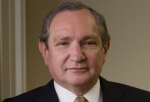 07.07.2014 THE SUNNI RAMADAN OFFENSIVE AND THE LESSONS OF TET
07.07.2014 THE SUNNI RAMADAN OFFENSIVE AND THE LESSONS OF TET
By George Friedman
In February 1968, the North Vietnamese Army and the Viet Cong launched a general offensive in Vietnam during Tet, the Vietnamese New Year. From mid-1966 onward, the North Vietnamese had found themselves under increasing pressure from American and South Vietnamese forces. They were far from defeated, but they were weakening and the likelihood of their military victory was receding.
 04.07.2014 WHAT MAKES US DIPLOMATS TALK OF CAUCASUS CRISIS-2014?
04.07.2014 WHAT MAKES US DIPLOMATS TALK OF CAUCASUS CRISIS-2014?
Ekaterina Kudashkina
US experts and diplomats have been warning of a new security crisis that could break out in the South Caucasus in autumn of 2014. How good is the forecast and is there any evidence the region is really headed for a new war? Or is it rather a threat aimed at disrupting these countries’ ties with Russia? We are discussing the issue with Razi Nurullayev, Azerbaijani political analyst and the head of “Region” International Analytical Centre, and Sevak Sarukhanyan, deputy head of the Noravank think tank in Yerevan.
 30.06.2014 FRENCH EXPERT: RECOGNITION OF NAGORNO-KARABAKH REPUBLIC IS THE ONLY SOLUTION THAT CAN ENSURE STABILITY IN REGION
30.06.2014 FRENCH EXPERT: RECOGNITION OF NAGORNO-KARABAKH REPUBLIC IS THE ONLY SOLUTION THAT CAN ENSURE STABILITY IN REGION
Panorama.am presents an interview with Adrien Gévaudan, expert in geopolitics and geo-economics, founder of analytical website IntStrat, who has recently published an article titled “Geopolitics of the Greater Caucasus and Nagorno-Karabakh” (also published in French).
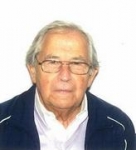 26.06.2014 DIVIDE AND RULE – AND NO END?
26.06.2014 DIVIDE AND RULE – AND NO END?
By Fred Dallmayr, Co-Chairman, WPF “Dialogue of Civilizations”
There is an old German proverb saying that “two parties may fight at the third party’s delight.” The delight may sometimes be accidental, as when someone by happenstance stumbles upon two fighting parties. More frequently, however, the delight is deliberately produced or the result of a deliberate strategy.
 26.06.2014 KATARYNA WOLCZUK: ARMENIA SHOULD BE NEGOTIATING TREATY OF EURASIAN UNION, NOT ONLY THAT OF CUSTOMS UNION
26.06.2014 KATARYNA WOLCZUK: ARMENIA SHOULD BE NEGOTIATING TREATY OF EURASIAN UNION, NOT ONLY THAT OF CUSTOMS UNION
Panorama.am presents an interview with Dr. Kataryna Wolczuk, Senior Lecturer in East European Politics at the Centre for Russian and East European Studies, University of Birmingham, UK and the co-editor of the book Eurasian Economic Integration: Law, Policy and Politics (2013).
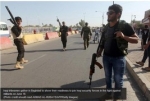 23.06.2014 JORDAN COULD BE THE ISLAMIC STATE IN IRAQ AND THE LEVANT'S NEXT TARGET
23.06.2014 JORDAN COULD BE THE ISLAMIC STATE IN IRAQ AND THE LEVANT'S NEXT TARGET
The Islamic State in Iraq and the Levant, buoyed by its recent successes in Iraq, wants to expand its regional reach. Reports that Iraq has withdrawn forces from western towns close to its 180-kilometer (110-mile) border with Jordan have left Amman feeling vulnerable, and the Hashemite kingdom, certainly a target of interest for the jihadist movement, has deployed additional security personnel along the border.
 09.06.2014 HOW WEALTHY ELITES ARE HIJACKING DEMOCRACY ALL OVER THE WORLD
09.06.2014 HOW WEALTHY ELITES ARE HIJACKING DEMOCRACY ALL OVER THE WORLD
By Sonali Kolhatkar
Amid the upheavals in Thailand, Ukraine and Egypt, wealthy elites have used popular movements and elections to ratify decisions in their favor.
 05.06.2014 EXPLORING THE ROLE OF ECONOMIC INITIATIVES AS PEACE BUILDING TOOLS IN THE NAGORNO-KARABAKH CONTEXT
05.06.2014 EXPLORING THE ROLE OF ECONOMIC INITIATIVES AS PEACE BUILDING TOOLS IN THE NAGORNO-KARABAKH CONTEXT
As part of its work, EGF recently published a study entitled “A Pragmatic Review of Nagorno-Karabakh Conflict Resolution: Could Economic Incentives Help Break the Deadlock?”. While this research was well received by stakeholders monitoring developments on Nagorno-Karabakh, the study concluded that economic incentives, on their own, could not substitute for a political settlement to the conflict itself.
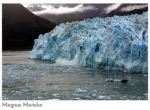 02.06.2014 ON THE EDGE: TOTAL DESTRUCTION
02.06.2014 ON THE EDGE: TOTAL DESTRUCTION
By: Noam Chomsky
When I hear the phrase “on the edge,” the irresistible image is the proverbial lemmings marching resolutely to the cliff. For the first time in history, humans are now poised to destroy the prospects for decent existence, and much of life.
 15.05.2014 IN UKRAINE, THE US IS DRAGGING US TOWARDS WAR WITH RUSSIA
15.05.2014 IN UKRAINE, THE US IS DRAGGING US TOWARDS WAR WITH RUSSIA
John Pilger
Why do we tolerate the threat of another world war in our name? Why do we allow lies that justify this risk? The scale of our indoctrination, wrote Harold Pinter, is a "brilliant, even witty, highly successful act of hypnosis", as if the truth "never happened even while it was happening".
07.05.2014 ANOTHER NYT ‘SORT OF’ RETRACTION ON UKRAINE
By Robert Parry
Exclusive: The mainstream U.S. media likes to talk about Ukraine as an “information war,” meaning that the Russians are making stuff up. But the false narratives are actually being hatched more on the U.S. side, as a new New York Times story acknowledges, writes Robert Parry.
 30.04.2014 ROSNEFT: A NEW BUSINESS PROJECT IN ARMENIA
30.04.2014 ROSNEFT: A NEW BUSINESS PROJECT IN ARMENIA
Mikhail Aghajanyan
A new large business project brews in Russian-Armenian relations. Rosneft corporation is just one step away from entering the Armenian market. The agenda of negotiations between business entities of the strategic partner-countries in South Caucasus includes two main issues.
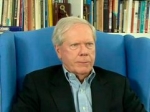 17.04.2014 WASHINGTON DRIVES THE WORLD TO WAR — PAUL CRAIG ROBERTS
17.04.2014 WASHINGTON DRIVES THE WORLD TO WAR — PAUL CRAIG ROBERTS
The CIA director was sent to Kiev to launch a military suppression of the Russian separatists in the eastern and southern portions of Ukraine, former Russian territories for the most part that were foolishly attached to the Ukraine in the early years of Soviet rule.
 14.04.2014 FUROR OVER CLAIMS OF TURKISH HAND IN SYRIAN CHEMICAL ATTACK
14.04.2014 FUROR OVER CLAIMS OF TURKISH HAND IN SYRIAN CHEMICAL ATTACK
By Carl Schreck
An acclaimed American journalist has come under fire over his report suggesting Turkey was behind an August 21 chemical weapons attack in Syria that brought the United States to the brink of military action against Damascus.
 10.04.2014 US WAR PLAN FOR EUROPE AND RUSSIA
10.04.2014 US WAR PLAN FOR EUROPE AND RUSSIA
Finian Cunningham
The US is prepared to plunge Europe into a war with Russia in order for Washington to preserve its hegemony over the transatlantic axis.
 03.04.2014 MOSCOW URGES UN SECURITY COUNCIL TO DISCUSS SITUATION IN ARMENIAN POPULATED KESSAB
03.04.2014 MOSCOW URGES UN SECURITY COUNCIL TO DISCUSS SITUATION IN ARMENIAN POPULATED KESSAB
Russian Ministry of Foreign Affairs urges the UN Security Council to discuss the situation in Armenian populated Kessab and give it a principled evaluation. Press department of the Ministry made a statement about this on April 1, 2014, as REGNUM Information Agency reports.
 31.03.2014 “THE ISLAND OF CRIMEA” THE OTHER WAY AROUND
31.03.2014 “THE ISLAND OF CRIMEA” THE OTHER WAY AROUND
Zara Gevorkyan
Obviously, the question of Crimea caused some active and heated debates in the Armenian society, and it could have not been otherwise. The value-bearing and political concept of self-determination has guided the logic of our historical development in the last quarter century.
 21.03.2014 ARMENIA AFTER THE VILNIUS SUMMIT: IT IS JUST THE BEGINNING OF THE STRUGGLE FOR “HEARTS AND MINDS”
21.03.2014 ARMENIA AFTER THE VILNIUS SUMMIT: IT IS JUST THE BEGINNING OF THE STRUGGLE FOR “HEARTS AND MINDS”
Sergei Sargsyan
As the February events in the Republic of Moldova (Gagauzia referendum) and Ukraine (ouster of Yanukovych) showed, signing or refusing to sign an EU Association Agreement by itself does not completely take off the table the issue of the direction for foreign political and economic integration for the EU Eastern Partnership countries.
 18.03.2014 GAS TRANSIT PIPELINE IRAN-ARMENIA: A CHANGE OF DISCOURSE
18.03.2014 GAS TRANSIT PIPELINE IRAN-ARMENIA: A CHANGE OF DISCOURSE
Sevak Sarukhanyan
The political crisis in Ukraine prompted stormy debates in the political analyst circles of Armenia regarding the causes of the crises and resultant potential changes in the world. Unfortunately there is little meaningful analysis for Armenia in terms of the ramifications of a new standoff round between Russia and the West, although such ramifications could be quite palpable.
 17.03.2014 UKRAINE: THE PRICE OF INTERNAL DIVISION
17.03.2014 UKRAINE: THE PRICE OF INTERNAL DIVISION
By Jack Matlock
With all of the reports coming out of Ukraine, Moscow, Washington, and European capitals, the mutual accusations, the knee-jerk speculation, and—not least—the hysterical language of some observers, bordering on the apocalyptic, it is difficult to keep in mind the long-term implications of what is happening.
 13.03.2014 OPINION: IGNORE WESTERN HYPOCRISY, PUTIN WILL DO WHAT HE WANTS
13.03.2014 OPINION: IGNORE WESTERN HYPOCRISY, PUTIN WILL DO WHAT HE WANTS
Simon Tisdall
All the self-righteous huffing and puffing in Washington over Ukraine jars on European and especially Russian ears after the multiple U.S.-led invasions and interventions in other people's countries of recent years.
 11.03.2014 OPINION OF THE NORAVANK FOUNDATION DIRECTOR GAGIK HARUTYUNYAN: NO RETURN TO THE PRIOR STATUS OF CRIMEA
11.03.2014 OPINION OF THE NORAVANK FOUNDATION DIRECTOR GAGIK HARUTYUNYAN: NO RETURN TO THE PRIOR STATUS OF CRIMEA
Mr. Harutyunyan, the whole world’s attention today is focused on the events in Ukraine. What do you think about these developments?
Indeed, there are multi-level complicated processes going on in Ukraine. One of the levels is the societal factor.
17.02.2014 ARMENIAN POLICY OF REMEMBRANCE IN THE EPOCH OF GLOBALISM
Mihran Dabag
Karl Marx had once noted: “Interest has no memory, for it thinks only of itself” [1]. Whoever does not remember about oneself, thus effectively forgetting historical prerequisites of own actions, may pursue one’s own interest ruthlessly and without any regard to the consequences.
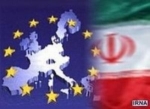 17.02.2014 EUROPE'S ROLE IN RESOLVING THE IRANIAN PROBLEM
17.02.2014 EUROPE'S ROLE IN RESOLVING THE IRANIAN PROBLEM
Vladimir Yevseyev
Since 2003, the Iranian nuclear issue constantly attracts the attention of the international community. In fact, it is the most serious challenge to the global regime based on fulfilling the requirements of the Treaty on the Non-Proliferation of Nuclear Weapons (NPT).
11.02.2014 US MEDIA, POLITICIANS MOBILIZE AGAINST SOCHI OLYMPICS
By Andrea Peters
The Sochi Olympics opened on Friday amid a propaganda onslaught from the US media. Taking its cues from the Obama administration and allied powers in Europe, the American press has sought to sabotage the event and turn it into a humiliation for the regime of President Vladimir Putin.
 30.01.2014 THINK TANKS AND SEPTIC TANKS
30.01.2014 THINK TANKS AND SEPTIC TANKS
We are living in the “Golden Age” of think tanks. There are about 6,000 of these research institutions (3,000 in the U.S) in the world. Politics, military, social policy, economy, technology, culture… they all have scores of think tanks dedicated to them.
23.01.2014 OPINION: TUNISIA'S LEADERS HAVE FAILED THE DIGNITY REVOLUTION
By Lina Ben Mhenni, Special to CNN
Editor's note: Lina Ben Mhenni lives in Tunis, where she is an assistant of linguistics at the University of Tunis. She is also an activist and blogger, writing as A Tunisian Girl. She has written for CNN as part of its coverage of Davos. Follow her on Twitter. The opinions expressed in this commentary are solely those of Lina Ben Mhenni.
16.01.2014 ARMENIA AND THE CUSTOMS UNION: IMPACT OF ACCESSION
This report provides the assessment of the macroeconomic impact of Armenia joining the Customs Union. Quantitative analysis has demonstrated that, as a result of integration with the CU, the additional growth in Armenian GDP will approximate 4% a year by 2016.
 09.01.2014 WORLD TRENDS AND SOUTH CAUCASUS
09.01.2014 WORLD TRENDS AND SOUTH CAUCASUS
Gagik Harutyunyan
The overall trend of current changes occurring in the world is transition from the monopole system to a multipolar one, or in another wording, a non-polar world. Obviously, without consideration of this global trend it would be difficult to understand what is actually going on in our region of South Caucasus.
 18.12.2013 GEOPOLITICAL SITUATION IN SOUTH CAUCASUS IS GETTING CRYSTALLIZED – G.HARUTYUNYAN
18.12.2013 GEOPOLITICAL SITUATION IN SOUTH CAUCASUS IS GETTING CRYSTALLIZED – G.HARUTYUNYAN
The geopolitical situation in the South Caucasus is getting crystallized, according to Gagik Harutyunyan, head of Noravank Foundation. Speaking at a news conference preceding an international forum in Yerevan on security challenges and cooperation in the South Caucasus, he said this trend has been prompted by Armenia’s decision to join the Moscow-led Customs Union.
 03.12.2013 SNOWDEN’S DISCLOSURE: WORLD UNDER THE AMERICAN AND BRITISH SURVEILLANCE
03.12.2013 SNOWDEN’S DISCLOSURE: WORLD UNDER THE AMERICAN AND BRITISH SURVEILLANCE
Samvel Martirosyan
The disclosures by the former U.S. National Security Agency employee Edward Snowden, concerning the actions carried out by the U.S. secret services on the Web, changed the visions of the information security. It becomes clear that all the concerns, which were spread by the various conspiracy theories, are more real than one could imagine.
 25.11.2013 FAVOURABLE REGIONAL POLITICAL SITUATION IS FORMED AROUND NAGORNO-KARABAKH PROCESS
25.11.2013 FAVOURABLE REGIONAL POLITICAL SITUATION IS FORMED AROUND NAGORNO-KARABAKH PROCESS
Resumption of negotiations on the Nagorno-Karabakh conflict at the level of president of Armenia Serzh Sargsyan and president of Azerbaijan Ilham Aliyev, interrupted 2.5 years ago, is a positive impulse to the process of peaceful settlement of the conflict.
 18.11.2013 JUSTICE DEPT. RECORDS REVEAL: AZERBAIJAN PAYS MILLIONS TO U.S. FIRMS
18.11.2013 JUSTICE DEPT. RECORDS REVEAL: AZERBAIJAN PAYS MILLIONS TO U.S. FIRMS
By: Harut Sassounian
Awash in billions of petrodollars, but lacking a moral compass, Azerbaijan has been busy handing out loads of money to anyone who is willing to heed its propaganda.
 04.11.2013 AS GREENLAND SEEKS ECONOMIC DEVELOPMENT, IS URANIUM THE WAY?
04.11.2013 AS GREENLAND SEEKS ECONOMIC DEVELOPMENT, IS URANIUM THE WAY?
by Sidsel Overgaard
Karen Hanghoj, a scientist with Denmark's Geological Survey, points to the southern tip of Greenland on a colorful map hanging in her office.
 31.10.2013 THE INVISIBLE CYBER WAR
31.10.2013 THE INVISIBLE CYBER WAR
Yiannos Charalambides
The international system is still dominated by sovereign nation states which constitute the main structural actors of the global system. However, nation states are not the only players acting in the global landscape.
 28.10.2013 SECURITY OF EURASIA: IDEOLOGY
28.10.2013 SECURITY OF EURASIA: IDEOLOGY
Address of the Director of “Noravank” Foundation G.Harutyunyan at the international conference on “CSTO and Eurasia’s Security”
 21.10.2013 THE CUSTOMS UNION IS NOT A IMPERIAL BUT AN ECONOMIC PROJECT – LEPEHIN
21.10.2013 THE CUSTOMS UNION IS NOT A IMPERIAL BUT AN ECONOMIC PROJECT – LEPEHIN
The Customs Union is not an Imperial but economic project, believes Vladimir Lepehin, the director of EurAsEC, the member of Academic Board of the RAS on Eurasian economic integration.
 14.10.2013 LEE KUAN YEW’S LESSONS FOR ARMENIA
14.10.2013 LEE KUAN YEW’S LESSONS FOR ARMENIA
Simon Saradzhyan, Monica Harutyunyan
There is hardly a statesman left in the world who has not heard about Singapore’s economic miracle, which began almost 50 years ago and continues to date. If there is a single person without whom Singapore’s phenomenal transformation would not have been possible, that person is Lee Kuan Yew.
04.10.2013 ARMENIA'S CHOICE OF THE EURASIAN UNION: A STUNNING END TO ITS EUROPEAN INTEGRATION?
George Vlad Niculescu
The announcement at the beginning of September 2013, in Moscow, by President Serzh Sargsyan of Armenia's decision to join the Russia-led Eurasian Customs Union (ECU) apparently took many by surprise. Firstly, because in July 2013 Armenia concluded a lengthy four years negotiation on essential agreements, meant to upgrade its ties with the European Union (EU), which would be incompatible with joining the ECU.
 13.09.2013 JOINING OF ARMENIA TO THE CUSTOMS UNION WILL ALLOW PROVIDING LOW GAS RATES – EXPERT
13.09.2013 JOINING OF ARMENIA TO THE CUSTOMS UNION WILL ALLOW PROVIDING LOW GAS RATES – EXPERT
Joining of Armenia to the Customs Union will allow providing low rates for the natural gas imported to Armenia, said the Deputy Director of “Noravank” Foundation Sevak Sarukhanyan in his interview on Wednesday.
 12.09.2013 JOINING THE CUSTOMS UNION IS ECONOMICALLY ADVANTAGEOUS TO ARMENIA - EXPERTS
12.09.2013 JOINING THE CUSTOMS UNION IS ECONOMICALLY ADVANTAGEOUS TO ARMENIA - EXPERTS
It is economically advantageous to Armenia to join the Customs Union. According to “ARKA” news agency this is the conclusion, a group of experts, which carried out special economic survey on these issues, came to.
 12.09.2013 INTEGRATION ASPIRATIONS OF ARMENIA AND SOME ISSUES OF THE MILITARY AND POLITICAL SECURITY OF THE REP. OF ARMENIA AND NKR
12.09.2013 INTEGRATION ASPIRATIONS OF ARMENIA AND SOME ISSUES OF THE MILITARY AND POLITICAL SECURITY OF THE REP. OF ARMENIA AND NKR
Sergei Sargsyan
Both Moscow and Brussels, which diplomatically and ornately state that there are no contradictions between the integration of Armenia in European and Customs Unions, nevertheless, hint that the suit of documents necessary for signing the EU Association Agreement and entering Customs Union contain some insuperable contradictions, which in fact present RA and NKR with a crucial dilemma of choice.
09.09.2013 THE MULTIPOLAR REALITIES, MIDDLE EAST AND NEWS TICKER GENOCIDE (Part 2)
Gagik Harutyunyan
Today it can be stated that the developments initiated in the Arab world have yet a long way to go: as some well-known ideologists dreamt in the beginning of the 20th century, the revolution in Egypt becomes permanent, and confrontation between Islamists and their opponents has spread even into Turkey that had been considered a stable country.
05.09.2013 THE MULTIPOLAR REALITIES, MIDDLE EAST AND NEWS TICKER GENOCIDE (Part 1)
Gagik Harutyunyan
Today hardly anyone would contest the fact that scrambling for spheres of influence on the world-scale, which started at the end of 20th century with monopole domination, now transforms into a multi-vector persistent standoff. It takes place by some new rules (sometimes no rules) of multipolar world order that have not been fully established yet and hence, are still more than vague.
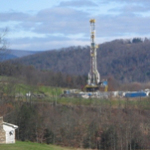 03.09.2013 US SHALE MYTHS AND EUROPEAN MARKET REALITY
03.09.2013 US SHALE MYTHS AND EUROPEAN MARKET REALITY
Many US shale companies that have been beating the drums of shale “revolution” are now facing oil and gas well depletion. In February 2013 the US Energy Information Administration (EIA) warned that “diminishing returns to scale and the depletion of high productivity sweet spots are expected to eventually slow the rate of growth in tight oil production”.
 01.08.2013 CSTO AND COMMUNICATION SECURITY
01.08.2013 CSTO AND COMMUNICATION SECURITY
Sevak Sarukhanyan
On June 26, 2013 a meeting of the CSTO Secretary General N.Bordyuzha and Coordinator of the CSTO Analytical Association I.Panarin with the Armenian experts was held at “Noravank” Foundation. Communication security issue was among those on the agenda.
 25.07.2013 TURKEY'S PROBLEMS GROW WITH A SYRIAN KURDISH MOVE FOR AUTONOMY
25.07.2013 TURKEY'S PROBLEMS GROW WITH A SYRIAN KURDISH MOVE FOR AUTONOMY
That a Kurdish group would declare autonomy from Syria's currently fragmented state was inevitable, but Turkey is now facing a spread of Kurdish separatism at the same time it is facing mounting obstacles in its current peace track with the Kurdistan Workers' Party within its borders.
 11.07.2013 GAS EXPORTING COUNTRIES TO GATHER IN MOSCOW FOR INFLUENTIAL FORUM
11.07.2013 GAS EXPORTING COUNTRIES TO GATHER IN MOSCOW FOR INFLUENTIAL FORUM
Members of the influential Gas Exporting Countries Forum (GECF) will gather in Moscow 1-2 July 2013. Long-term contracts and infrastructure projects are reported to be high on the agenda. The GECF is an international club of major natural gas exporters including Russia, Iran, Qatar, Libya and Venezuela.
 04.07.2013 RUSSIA’S ARCTIC, NATO AND NORWAY: A POST- KIRKENES POLITICAL LANDSCAPE
04.07.2013 RUSSIA’S ARCTIC, NATO AND NORWAY: A POST- KIRKENES POLITICAL LANDSCAPE
By Igor Alexeev
Recent NATO’s decision to denounce plans of direct Arctic presence sends a positive signal to all littoral states including Russia, a major regional stakeholder among non-members of the Alliance.
 01.07.2013 IRAN AFTER THE PRESIDENTIAL ELECTIONS
01.07.2013 IRAN AFTER THE PRESIDENTIAL ELECTIONS
Sevak Sarukhanyan
The presidential elections, held on June 14, will be of great importance for the future of Iran and region in general. Hassan Ruhani who has been elected as president has a serious opportunity to positively impact both domestic political life in Iran and its foreign policy.
 13.06.2013 A NEW KIND OF GENOCIDE HAS BEEN PERPETRATED IN THE MIDDLE EAST Interview of Gagik Harutyunyan to ArmInfo Information Agency
13.06.2013 A NEW KIND OF GENOCIDE HAS BEEN PERPETRATED IN THE MIDDLE EAST Interview of Gagik Harutyunyan to ArmInfo Information Agency
Judging by the recent wrangling in the UN Security Council and the reaction of Iran and Israel, it seems that the Syrian conflict is gradually passing into a new plane. In your opinion, what new impulses around the developments in Syria can be expected in this aspect in the nearest future?
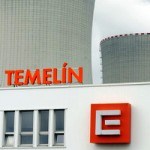 05.06.2013 TEMELÍN: STRATEGIC GROWTH PROJECT FOR RUSSIAN-CZECH RELATIONS
05.06.2013 TEMELÍN: STRATEGIC GROWTH PROJECT FOR RUSSIAN-CZECH RELATIONS
Czech Prime Minister Petr Nečas arrived in Russia on a four-day working visit late May, 2013. Trade and energy policy are among the topical issues for Prague and Moscow – 6% increase in turnover is good news for both parties.
 03.06.2013 INTEGRATION PROSPECTS OF POST-SOVIET STATES ON THE EXAMPLE OF KIRGIZIA AND UKRAINE (EXPECTATIONS AND CONCERNS)
03.06.2013 INTEGRATION PROSPECTS OF POST-SOVIET STATES ON THE EXAMPLE OF KIRGIZIA AND UKRAINE (EXPECTATIONS AND CONCERNS)
Sergei Sargsyan
Coming forward on the post-Soviet space of a new integration project – Eurasian Economic Union (EAEU), initiated polemics, discussions and blazing rows on the issue of viability of the project itself as well as on possible advantages and disadvantages of joining it.
 23.05.2013 NAGORNO-KARABAKH: OBSTACLES TO A NEGOTIATED SETTLEMENT
23.05.2013 NAGORNO-KARABAKH: OBSTACLES TO A NEGOTIATED SETTLEMENT
Anna Hess Sargsyan
The conflict over Nagorno-Karabakh (NK) between Armenia and Azerbaijan remains immune to a political solution despite the two decades of intensive international mediation.
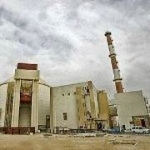 20.05.2013 NUCLEAR INDUSTRY RE-ENERGIZING AFTER FUKUSHIMA
20.05.2013 NUCLEAR INDUSTRY RE-ENERGIZING AFTER FUKUSHIMA
Reconstructing nuclear confidence in post-Fukushima world is a long and painful process. But real-life energy demands especially in the developing countries predetermine a significant share of nuclear energy in their national energy consumption structure.
 16.05.2013 REGNUM: NEW KIND OF GENOCIDE IS BEING PERPETRATED IN SYRIA (from the press-conference of Gagik Harutyunyan)
16.05.2013 REGNUM: NEW KIND OF GENOCIDE IS BEING PERPETRATED IN SYRIA (from the press-conference of Gagik Harutyunyan)
Genocide, quite unusual one, is being perpetrated in the Middle East now – Arabs kill Arabs and alongside a Christian population suffers. As the REGNUM Information Agency correspondent reports this was stated by the Director of the Armenian “Noravank” Foundation Gagik Harutyunyan at the press-conference held on May 13.
 02.05.2013 NAGORNO-KARABAKH: CONCEPTUAL APPROACHES TO THE PROSPECTS OF THE CONFLICT SETTLEMENT
02.05.2013 NAGORNO-KARABAKH: CONCEPTUAL APPROACHES TO THE PROSPECTS OF THE CONFLICT SETTLEMENT
Sergei Minasyan
As it is known, today the Nagorno-Karabakh Republic is not fully involved in the negotiation process under the auspices of the OSCE Minsk Group. The stance of Stepanakert is presented in the international arena by Armenia which states that at this stage it abstains from the recognition of the NKR.
 29.04.2013 ON SOME MAIN ISSUES OF INTEGRATION IN THE CONTEXT OF A VALUE SYSTEM
29.04.2013 ON SOME MAIN ISSUES OF INTEGRATION IN THE CONTEXT OF A VALUE SYSTEM
Gagik Harutyumyan
Today the main issues of the Eurasian integration are up for debate. The geopolitical necessity of integration is underlined. Rather good analyses of its profitability and other economic issues are carried out. This all is wonderful and very useful – certainty is a must.
 25.04.2013 KARS-AKHLKALAKI-TBILISI RAILWAY AND ITS REGIONAL PROSPECTS
25.04.2013 KARS-AKHLKALAKI-TBILISI RAILWAY AND ITS REGIONAL PROSPECTS
Sevak Sarukhanyan
The authorities of Georgia, Azerbaijan and Turkey plan to complete building of Kars-Akhlkalaki-Tbilisi railway by the end of 2013 and this new transportion hub will be put into commission on January 1, 2014.
17.04.2013 SOUTH STREAM SHAPES EUROPEAN ENERGY SECURITY, NABUCCO FALLS BEHIND
South Stream is an ambitious endeavor of Russia’s energy giant Gazprom to get direct access to the EU energy market. It is portrayed and criticized by some politicians in Europe as a «dangerous» gateway to a broader economic relationship with Moscow.
 16.04.2013 THE 113th CONGRESS, A LOOK AT THE 2014 MID-TERM ELECTIONS AND THE COUNTDOWN TO THE 100th ANNIVERSARY OF THE ARMENIAN GENOCIDE
16.04.2013 THE 113th CONGRESS, A LOOK AT THE 2014 MID-TERM ELECTIONS AND THE COUNTDOWN TO THE 100th ANNIVERSARY OF THE ARMENIAN GENOCIDE
By Taniel Koushakjian
With the House of Representatives remaining in Republican control and the Senate and White House again in Democratic hands, another session of a divided Congress began on January 3, 2013.
 10.04.2013 HOW TO CREATE A NATION: A TASK OF FORMATION OF THE AZERBAIJANI IDENTITY IN THE 20TH CENTURY
10.04.2013 HOW TO CREATE A NATION: A TASK OF FORMATION OF THE AZERBAIJANI IDENTITY IN THE 20TH CENTURY
Haykaram Nahapetyan
A well-known in the Soviet period definition of Azerbaijan’s capital Baku as an “international city” is still fresh in the memory of people from the post-Soviet territory. In Soviet Baku different big national and religious communities lived which was characteristic for pre-Soviet, tsarist period as well.
09.04.2013 ALIGNMENT-MEETING AT THE SECRETARIAT OF THE COLLECTIVE SECURITY TREATY ORGANIZATION
On April 2, 2013 the alignment-meeting with the participation of the Secretary General of the CSTO N.Bordyuzha, Coordinator of the Association and Advisor of the Department of the Information Programmes of the CSTO Secretariat I.Panarin, heads and employees of the structural subdivisions of the CSTO Secretariat was held.
 21.03.2013 BRUSSELS INDULGES IN TRANS-CASPIAN PIPE DREAM AGAIN
21.03.2013 BRUSSELS INDULGES IN TRANS-CASPIAN PIPE DREAM AGAIN
After the European Commission has finally realized that major investors (RWE) and transit countries (Hungary) are leaving Nabucco, bureaucrats in Brussels are now trying to revitalize a distressed project – the so-called Trans-Caspian gas pipeline.
 28.02.2013 INTEGRATION PROCESSES AND INFORMATION POLICY
28.02.2013 INTEGRATION PROCESSES AND INFORMATION POLICY
Gagik Harutyunyan
The intention of the presidents of Belarus, Kazakhstan and Russia to establish Eurasian Union (EAU) and Armenia’s possible joining the union caused eager discussion in the Armenian society. The main subject of these discussions is the political and economic problems and prospects of the integration process. Less attention is paid to the information component and directly connected with it system of values.
 25.02.2013 INTENSIFICATION OF RUSSIA-TURKEY INDIRECT MILITARY AND POLITICAL CONFRONTATION
25.02.2013 INTENSIFICATION OF RUSSIA-TURKEY INDIRECT MILITARY AND POLITICAL CONFRONTATION
Sergei Sargsyan
The relationship of Russia and Turkey in the periods when they were in the state of war resemble a game of mult-iboard military and political chess on the geographically separated boards, and each game has its logic, its intrigue, its pieces but they all are interconnected and constitute a part of the same big mosaic.
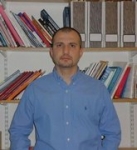 11.02.2013 VIEW FROM THE GLOBAL TANK: RUSSIA CAN SHOULDER OBAMA’S CHALLENGES - AFTER A BMD DEAL
11.02.2013 VIEW FROM THE GLOBAL TANK: RUSSIA CAN SHOULDER OBAMA’S CHALLENGES - AFTER A BMD DEAL
Simon Saradzhyan
President Barack Obama’s recent inauguration marked the 21st time that a US president has “renewed his lease” at the White House.
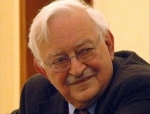 31.01.2013 GLOBAL TURMOIL IN THE MIDDLE RUN
31.01.2013 GLOBAL TURMOIL IN THE MIDDLE RUN
By Immanuel Wallerstein
Making predictions in the short run (the coming year or two) is a fool’s game. There are too many unpredictable twists and turns in the real political/economic/cultural world.
30.01.2013 “EURASIAN INTEGRATION AND ARMENIA: PROSPECTS, GOALS, TRENDS OF DISCUSSIONS”
On January 26 conference on “Eurasian Integration and Armenia: Prospects, Goals, Trends of Discussions”, organized by “Integration and Development” Research and Analytical NGO, was hold in Yerevan.
 14.01.2013 GEORGIA: AN ATTEMPT TO MANEUVER IN A NARROW GAUGE
14.01.2013 GEORGIA: AN ATTEMPT TO MANEUVER IN A NARROW GAUGE
Sergei Sargsyan
The recent parliamentary elections in Georgia turned out to be remarkable in many aspects. They were remarkable for the results of the elections; for the fact that for the first time in the modern history of the country the change of the regime proceeded in a democratic path...
 10.01.2013 A PRAGMATIC REVIEW OF NAGORNO-KARABAKH CONFLICT RESOLUTION: COULD ECONOMIC INCENTIVES HELP BREAK THE CURRENT STALEMATE?
10.01.2013 A PRAGMATIC REVIEW OF NAGORNO-KARABAKH CONFLICT RESOLUTION: COULD ECONOMIC INCENTIVES HELP BREAK THE CURRENT STALEMATE?
Marat Terterov
It is becoming increasingly clear that there is little immediate “light at the end of the tunnel” in relation to peaceful settlement of the unresolved conflict between Armenia and Azerbaijan over Nagorno-Karabakh.
09.01.2013 WITH U.S. SET TO LEAVE AFGHANISTAN, ECHOES OF 1989
By THOM SHANKER
The young president who ascended to office as a change agent decides to end the costly and unpopular war in Afghanistan. He seeks an exit with honor by pledging long-term financial support to allies in Kabul, while urging reconciliation with the insurgency.
 27.12.2012 CHALLENGES TO ARMENIA IN THE GLOBALIZING WORLD
27.12.2012 CHALLENGES TO ARMENIA IN THE GLOBALIZING WORLD
Gagik Harutyunyan
In Arnold Toynbee’s classical formulation, the viability of civilizations depends on their ability to adequately respond to challenges. In this sense it can be stated that for several millennia Armenia has been able to face (to various extent) its challenges.
 10.12.2012 IRAN AND SANCTIONS
10.12.2012 IRAN AND SANCTIONS
Sevak Sarukhanyan
Sanctions imposed against Iran caused serious changes in the economic life of the Islamic Republic of Iran. At the same time they have had a great impact on political processes either.
 04.12.2012 WAR IN SYRIA: PROBABLE SCENARIOS
04.12.2012 WAR IN SYRIA: PROBABLE SCENARIOS
Gagik Harutyunyan
Military and political processes going on in the Middle East and especially in Syria in the context of “Arab spring” are mostly discussed in the Armenian media from the point of view of the security of the Armenian communities.
27.11.2012 “THERE WON’T BE A THIRD WORLD WAR…”
Gevorg Mirzayan
“Hayern Aysor”’s correspondent sat down for an interview with analyst, journalist for Expert magazine of Moscow, Gevorg Mirzayan, who was one of the participants of the Pan-Armenian Conference of Political Scientists and International Relations Experts.
 22.11.2012 PAN-ARMENIAN CONFERENCE OF POLITICAL SCIENTISTS AND INTERNATIONAL RELATIONS EXPERTS ON “CHALLENGES OF THE 21ST CENTURY AND THE SECURITY ISSUES OF ARMENIA” DRAWS TO AN END
22.11.2012 PAN-ARMENIAN CONFERENCE OF POLITICAL SCIENTISTS AND INTERNATIONAL RELATIONS EXPERTS ON “CHALLENGES OF THE 21ST CENTURY AND THE SECURITY ISSUES OF ARMENIA” DRAWS TO AN END
The Pan-Armenian Conference of Political Scientists and International Relations Experts on “Challenges of the 21st Century and the Security Issues of Armenia” drew to an end on November 20. The conference was organized by the RA Ministry of Diaspora.
21.11.2012 PAN-ARMENIAN CONFERENCE OF POLITICAL SCIENTISTS AND INTERNATIONAL RELATIONS EXPERTS ON “CHALLENGES OF THE 21ST CENTURY AND THE SECURITY ISSUES OF ARMENIA” CONTINUES
The participants of the Pan-Armenian Conference of Political Scientists and International Relations Experts on “Challenges of the 21st Century and the Security Issues of Armenia” organized by the RA Ministry of Diaspora continued to discuss the challenges facing Armenia in the globalizing world.
20.11.2012 FIRST SESSION OF THE PAN-ARMENIAN CONFERENCE OF POLITICAL SCIENTISTS AND INTERNATIONAL RELATIONS EXPERTS ON “CHALLENGES OF THE 21ST CENTURY AND THE SECURITY ISSUES OF ARMENIA” DRAWS TO AN END
The first session of the Pan-Armenian Conference of Political Scientists and International Relations Experts on “The Challenges of the 21st Century and the Security Issues of Armenia” organized by the RA Ministry of Diaspora has drawn to an end. The topic of the first session was “Challenges facing Armenia in the globalizing world”.
19.11.2012 PAN-ARMENIAN CONFERENCE OF POLITICAL SCIENTISTS AND INTERNATIONAL RELATIONS EXPERTS ON “CHALLENGES OF THE 21ST CENTURY AND THE SECURITY ISSUES OF ARMENIA” KICKS OFF
On November 19, the RA Ministry of Diaspora launched the Pan-Armenian Conference of Political Scientists and International Relations Experts on “Challenges of the 21st Century and the Security Issues of Armenia” at the RA National Academy of Sciences.
 19.11.2012 EUROPE: REINTEGRATION OR ANOTHER REVISION OF THE BORDERS
19.11.2012 EUROPE: REINTEGRATION OR ANOTHER REVISION OF THE BORDERS
Artashes Ter-Harutyunyan
On September 27, 2012 the parliament of Catalonia, which is part of Spain, took a decision, according to which, alongside with the early parliamentary elections, referendum on independence will be held.
 13.11.2012 THE OBAMA CAMPAIGN’S TECHNOLOGY IS A FORCE MULTIPLIER
13.11.2012 THE OBAMA CAMPAIGN’S TECHNOLOGY IS A FORCE MULTIPLIER
By STEVE LOHR
Technology doesn't win political campaigns, but it certainly is a weapon -- a force multiplier, in military terms.Both sides in the presidential contest mined click-stream data as never before to target messages to potential voters.
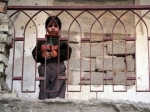 06.11.2012 IRAQ'S ENDLESS HUMANITARIAN CRISIS
06.11.2012 IRAQ'S ENDLESS HUMANITARIAN CRISIS
By Irena L. Sargsyan
Insurgencies and civil wars often gain attention in the United States only when waves of violence batter urban frontlines abroad. But once the combat ends and the cameras go home, interest here swiftly recedes. Yet, the lingering effects of the fighting—particularly on human capital—have profound strategic implications for the stability, democracy and prosperity of a state emerging from war.
 16.10.2012 IRANIAN CRISIS AND “IMMEDIATE” DETERRENCE IN THE KARABAKH CONFLICT
16.10.2012 IRANIAN CRISIS AND “IMMEDIATE” DETERRENCE IN THE KARABAKH CONFLICT
Sergey Minasyan
The Iranian nuclear programme and persisting crisis in the relations of Iran with many western countries, and first of all with the U.S. and Israel, seriously influence political processes in the region as well. In some cases it is also considered as a catalyst of many regional conflicts.
 04.10.2012 PEACE SHOULD REFLECT THE OUTCOME OF THE WAR
04.10.2012 PEACE SHOULD REFLECT THE OUTCOME OF THE WAR
Anushavan Barseghyan
American think tanks are one of the main factors influencing Washington’s foreign policy and they have predetermined the character of the activity of the US on the international arena. But analytical centers are given less consideration than confronting lobbyist groups, inter-partisan disagreements and competition between the wings of the authorities.
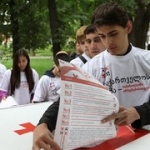 24.09.2012 PARLIAMENTARY ELECTIONS: GEORGIA AHEAD OF THE CONTROVERSIAL EVENT
24.09.2012 PARLIAMENTARY ELECTIONS: GEORGIA AHEAD OF THE CONTROVERSIAL EVENT
Sergei Minasyan
This autumn Georgia will face serious political challenge – regular and very important parliamentary elections will be held. On August 1, 2012 the president of Georgia Mikhail Saakashvili appointed the day of parliamentary elections. According to law they should be held in 60 days, i.e. on October 1.
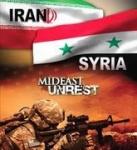 18.09.2012 SYRIAN CRISIS AND IRAN
18.09.2012 SYRIAN CRISIS AND IRAN
Artashes Ter-Harutyunyan
At the end of August Iran stated that its armed forces were participating in the civil war in Syria. “We are involved in all kinds of combat actions [in Syria]”, stated general Salar Abnush – the commander of “Sahib al-Amr” unit of the Army of the Guardians of the Islamic Revolution – at his meeting with the journalists.
13.09.2012 FRENCH-ARMENIANS SHOULD WELCOME ALIYEV IN PARIS AS ‘CHIEF HATCHET MAN’
By Harut Sassounian
When Pres. Ilham Aliyev arrives in Paris on September 18, thousands of French-Armenians should greet Azerbaijan’s leader with posters depicting him as ‘Hatchet Man-in-Chief’ -- ‘Bash Baltaji’ -- holding a bloody axe. Interestingly, in all three languages -- Azeri, Hungarian, and Turkish -- ‘balta’ means hatchet or axe.
05.09.2012 HUNGARIAN/AZERI SCANDAL VINDICATES ARTSAKH’S QUEST FOR INDEPENDENCE
By Harut Sassounian
Armenians worldwide are outraged by Pres. Aliyev’s pardon following the Hungarian government’s release of Ramil Safarov -- an axe-wielding Azeri Lieutenant who hacked to death Armenian officer Gurgen Margarian in his sleep, while attending a 2004 NATO course in Budapest.
03.09.2012 TIME FOR ACTION: SYRIAN-ARMENIANS NEED YOUR URGENT ASSISTANCE
By Harut Sassounian
There has been too much talk about the tragic crisis in Syria by self-described analysts and experts who have managed to spread misinformation, while inadvertently jeopardizing the safety of the Armenian community.
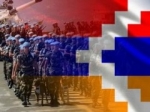 02.08.2012 SOME ASPECTS OF THE DEVELOPMENT OF MILITARY AND POLITICAL SITUATION ROUND THE NAGORNO-KARABAKH CONFLICT
02.08.2012 SOME ASPECTS OF THE DEVELOPMENT OF MILITARY AND POLITICAL SITUATION ROUND THE NAGORNO-KARABAKH CONFLICT
Sergei Sargsyan
Currently military and political situation round Nagorno-Karabakh conflict is mainly characterized by a general influence of the following factors: Combat readiness and fighting capacity of the armed forces of the conflicting parties, sustaining of the acceptable balance of offensive/defensive arms between them...
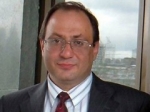 17.07.2012 DEMOGRAPHICS IN INFORMATION AND PSYCHOLOGICAL WARFARE: SOUTH CAUCASUS
17.07.2012 DEMOGRAPHICS IN INFORMATION AND PSYCHOLOGICAL WARFARE: SOUTH CAUCASUS
Ara Marjanyan
Currently South Caucasus region is in an ongoing information and psychological warfare. One of its characteristics is the systematic misrepresentation of demographic statistics and wide use of distorted data to carry out psychological warfare.
 09.07.2012 US SUPREME COURT MAY HEAR FIRST EVER ARMENIAN GENOCIDE-RELATED LAWSUIT
09.07.2012 US SUPREME COURT MAY HEAR FIRST EVER ARMENIAN GENOCIDE-RELATED LAWSUIT
By Harut Sassounian
For the first time, a lawsuit indirectly involving the Armenian Genocide is being appealed to the U.S. Supreme Court. Since its initial filing in 2003, various federal courts have taken conflicting positions on this lawsuit.
 03.07.2012 THE EUROPEAN UNION: NEW TENDENCIES
03.07.2012 THE EUROPEAN UNION: NEW TENDENCIES
Gagik Harutyunyan
The European Union, which includes 27 countries and has population of over 500 million, is the biggest economy in the world (at current prices the GDP of the EU is $16.4 trillion, which constitutes 28% of the world GDP). At the same time this union has appeared in rather difficult political and economic situation.
 28.06.2012 ON THE REGIONAL POLICY OF IRAN
28.06.2012 ON THE REGIONAL POLICY OF IRAN
Sevak Sarukhanyan
The passed parliamentary elections in Iran which fortified political stability in the country after the 2009 elections, created fertile ground for Tehran to stir up regional policy.
 25.06.2012 TRANS-CASPIAN GAS PIPELINE: GOALS, PROBLEMS AND RISKS
25.06.2012 TRANS-CASPIAN GAS PIPELINE: GOALS, PROBLEMS AND RISKS
Sergei Sargsyan
At the end of his visit to Baku in November 2011 the Special Envoy of the United States Secretary of State for Eurasian Energy Richard Morningstar stated that the US would support any pipeline within the framework of the South gas corridor but it would be better to begin from a small pipeline which would be expanded later.
 14.06.2012 ISLAMIC FACTOR IN THE FOREIGN POLICY OF TURKEY
14.06.2012 ISLAMIC FACTOR IN THE FOREIGN POLICY OF TURKEY
Artashes Ter-Harutyunyan
Recently the intelligence service of Israel – Mossad – presented to the cabinet of Benjamin Netanyahu a report on the situation and possible developments in Syria.
 11.06.2012 REALITY OF TBILISI: ON ARMENIAN-GEORGIAN CONTRADICTIONS
11.06.2012 REALITY OF TBILISI: ON ARMENIAN-GEORGIAN CONTRADICTIONS
Tamara Vardanyan
Last year “Internews Georgia” organization has carried out monitoring of tolerance and human rights issues in local media. They studied the number and content of publications on ethnic and religious (as well as sexual) minorities in printed media.
 24.05.2012 CHRISTIANS IN TODAY’S TURKEY (Protestants and Catholics)
24.05.2012 CHRISTIANS IN TODAY’S TURKEY (Protestants and Catholics)
Arestakes Simavoryan
In February global mass media spread information that German Via Dolorosa Christian Union summoned Christians of the world to boycott Turkish “Fatih 1453” film, which, in fact, was anti-Christian.
22.05.2012 HOW SHOULD THE DIASPORA REACT TO NEW TURKISH OVERTURES?
By Harut Sassounian
I have been informed by reliable sources that Turkey’s Foreign Minister Ahmet Davutogluis continuing his efforts to initiate a personal ‘dialog’ with the Diaspora on Armenian-Turkish issues. Earlier this month, Davutoglu met with Armenian-Americans, as follow up to the meetings he held in Washington last March.
 18.05.2012 RHODE ISLAND LEGISLATURE CALLS FOR US TO RECOGNIZE KARABAKH
18.05.2012 RHODE ISLAND LEGISLATURE CALLS FOR US TO RECOGNIZE KARABAKH
By Khatchig Mouradian
The Rhode Island House passed a resolution today calling on the U.S. President and Congress to recognize the independence of the Nagorno Karabakh Republic.
 14.05.2012 THE ISSUE OF THE ARMENIAN GENOCIDE AND MODERN TENDENCIES OF TURKEY’S POLICY
14.05.2012 THE ISSUE OF THE ARMENIAN GENOCIDE AND MODERN TENDENCIES OF TURKEY’S POLICY
Ruben Melkonyan
As it is known struggle against the international recognition of the Armenian Genocide takes an important place on the foreign political agenda of Turkey. On the threshold of 2015 Turkey mobilizes all its old methods and adds new ones in both foreign and domestic policy.
 10.05.2012 BIOLOGICAL WEAPONS IN AZERBAIJAN
10.05.2012 BIOLOGICAL WEAPONS IN AZERBAIJAN
Artsrun Khanjyan
Availability of distinct information about enemy’s armed forces and particularly about weapons of mass destruction is very important in military and political conflicts.
 07.05.2012 NUCLEAR TURKEY
07.05.2012 NUCLEAR TURKEY
Ara Marjanyan
A number of processes on domestic (national), regional and global levels rise inclination of Turkey for the creation of the nuclear capabilities of its own.
 03.05.2012 TURKISH FACTOR IN “LEVIATHAN” AND “APHRODITE” ENERGY “WARS”
03.05.2012 TURKISH FACTOR IN “LEVIATHAN” AND “APHRODITE” ENERGY “WARS”
Sevak Sarukhnyan
Finding vast reserves of natural gas in the eastern Mediterranean has turned this region into a stage of new energy and political contradictions.
 26.04.2012 TURKISH NUCLEAR THREAT
26.04.2012 TURKISH NUCLEAR THREAT
Gagik Harutyunyan
Proliferation of nuclear and mass destruction weapons is the most topical issue of the global security today. The researches, carried out back in the middle of the 20th century, come to prove that usage of the mass destruction weapons brings to the global catastrophe.
17.04.2012 TWO FACES OF TURKEY: VENEER OF GENTILITY MASKING RUTHLESSNESS
By Harut Sassounian
When Turkey’s Foreign Minister met secretly with a group of Armenians in Washington last month, he wooed them with his sly smile and sugar-coated words. This was the fake facade of traditional Turkish diplomacy.
 10.04.2012 ON TURKEY’S NUCLEAR CLAIMS
10.04.2012 ON TURKEY’S NUCLEAR CLAIMS
Artashes Ter-Harutyunyan
In April a visit of the Turkish prime-minister Recep Tayip Erdogan to Beijing where a Chinese-Turkish agreement on “Peaceful use of the Nuclear Energy” will be concluded is expected.
 02.04.2012 ARMENIA AND CHINA—CASE FOR A SPECIAL PARTNERSHIP
02.04.2012 ARMENIA AND CHINA—CASE FOR A SPECIAL PARTNERSHIP
By Simon Saradzhyan
This article will take stock of the Armenian-Chinese relations to discern whether Yerevan has been effective in its response to the ongoing rise of the Middle Kingdom as the two countries prepare to celebrate the 20th anniversary of the establishment of diplomatic relations this April.
 29.03.2012 BAKU SUMMONS POPULATION OF IRAN FOR CIVIL DISOBEDIENCE
29.03.2012 BAKU SUMMONS POPULATION OF IRAN FOR CIVIL DISOBEDIENCE
Levon Melik-Shakhnazaryan
The Ministry of National Security of Azerbaijan has stated recently about arrest of a group of terrorists who were allegedly planning assassination of foreign diplomats in Baku.
 22.03.2012 POLITICAL DEVELOPMENTS IN IRAN AND POSSIBLE IRAN-US COLLISION
22.03.2012 POLITICAL DEVELOPMENTS IN IRAN AND POSSIBLE IRAN-US COLLISION
Sevak Sarukhanyan
Parliamentary elections held on March 2 and presidential elections in 2013 in Iran are of great importance not only for domestic political life of the Islamic Republic of Iran but they may also become an incitement for the military encounter between Iran and the US.
 15.03.2012 NEW MIDDLE EAST: REALITY AND PROSPECTS
15.03.2012 NEW MIDDLE EAST: REALITY AND PROSPECTS
Gagik Harutyunyan
The processes going round Syria and nuclear programme of Iran are the follow-up of the so-called “Arab spring”. At the same time, alongside the commonalities the “Syrian” processes have peculiarities, which were not characteristic of the victorious march of the Arab revolutions.
 27.02.2012 DEVELOPMENTS ROUND SYRIA
27.02.2012 DEVELOPMENTS ROUND SYRIA
Artashes Ter-Harutyunyan
In the recent period a definite change of the stance of Russia on Syrian issue has been the most remarkable among the developments round that country.
 23.02.2012 BETWEEN A ROCK AND A HARD PLACE: THE ARMENIANS IN SYRIA
23.02.2012 BETWEEN A ROCK AND A HARD PLACE: THE ARMENIANS IN SYRIA
By Nanore Barsoumian
Two suicide car bombs targeting Syrian regional military and security headquarters shook Aleppo on Feb. 10, claiming 28 victims...
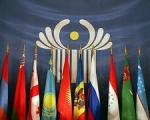 20.02.2012 A FAILED PROJECT. DEVOTED TO THE 20TH ANNIVERSARY OF THE CIS
20.02.2012 A FAILED PROJECT. DEVOTED TO THE 20TH ANNIVERSARY OF THE CIS
Sergei Grinyaev
This year the 20th anniversary of establishing the Commonwealth of Independent States is marked.
16.02.2012 BRYZA CONFESSES HIS LOVE FOR TURKEY, CONFIRMING HIS ANTI-ARMENIAN BIAS
By Harut Sassounian
It appears that my prediction about Matt Bryza leaving the State Department and working as a lobbyist is coming true.
 13.02.2012 IN AFGHANISTAN, A SOVIET PAST LIES IN RUINS
13.02.2012 IN AFGHANISTAN, A SOVIET PAST LIES IN RUINS
By Graham Bowley
As poignant in its imperial ambition as in its otherworldliness, the Soviet-era swimming pool atop Swimming Pool Hill here is as good a symbol as any of the doubtful legacy of empires.
 09.02.2012 DEVELOPMENTS AROUND IRAN
09.02.2012 DEVELOPMENTS AROUND IRAN
Artashes Ter-Harutyunyan
Though in prior years, tension around Iran – intensifying and weakening, was not considered to be unusual, over the recent period it can be observed that the developments concerning the Southern neigbour of Armenia has changed their character.
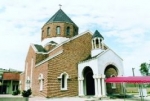 06.02.2012 ARMENIAN EVANGELICAL COMMUNITY IN URUGUAY
06.02.2012 ARMENIAN EVANGELICAL COMMUNITY IN URUGUAY
Vahram Hovyan
The Evangelical Armenians take special place in the Armenian community of 15 thousand in Uruguay.
02.02.2012 FRANCE SHOULDN’T ALLOW TURKEY TO MEDDLE IN ITS DOMESTIC AFFAIRS
By Harut Sassounian
For nearly a century, Turkey’s leaders have tried to hide the monstrous crime of the Armenian Genocide by covering up what really took place in the killing fields of the Syrian desert, then part of the Ottoman Empire.
01.02.2012 TURKEY DROPS HEAVILY IN PRESS FREEDOM RANKINGS
Turkey drops dramatically in press freedom rankings in 2011, losing 10 places to be 148th out of 178 countries.
 30.01.2012 ARMENIA IS BECOMING VULNERABLE TO CYBER-ATTACKS
30.01.2012 ARMENIA IS BECOMING VULNERABLE TO CYBER-ATTACKS
Samvel Martirosyan
An unprecedented upsurge of the number of Internet users has been observed in Armenia for recent one or two years and it is conditioned by both slashing of the prices for Internet connection and the fact that computers and mobile devices became more affordable.
 26.01.2012 IRAN AND DEVELOPMENTS IN SYRIA
26.01.2012 IRAN AND DEVELOPMENTS IN SYRIA
Sevak Sarukhanyan
Today Iran experiences one of the gravest consequences of the “Arab spring”: the anti-governmental movement, which started in Syria in spring, more and more resembles civil war and president B. Assad is losing his ground.
 23.01.2012 NOT TIME TO ATTACK IRAN
23.01.2012 NOT TIME TO ATTACK IRAN
By Colin H. Kahl
In Time to Attack Iran (January/February 2012), Matthew Kroenig takes a page out of the decade-old playbook used by advocates of the Iraq war.
12.01.2012 AZERBAIJAN AND OBAMA SUFFER SETBACKS AS AMB. BRYZA’S SERVICE IS CUT SHORT
By Harut Sassounian
As a result of successive political blunders by the Obama administration, Matthew Bryza was forced to abandon his ambassadorial post in Azerbaijan last week. Pres. Obama ignored repeated warnings that the candidate he was nominating as Ambassador to Azerbaijan in May 2010 had serious flaws. Members of the Senate Foreign Relations Committee accused Bryza of having a pro-Azerbaijani bias and questionable ties to Azeri officials.
 23.12.2011 ERDOĞAN WARNS SARKOZY OF ‘GRAVE CONSEQUENCES’
23.12.2011 ERDOĞAN WARNS SARKOZY OF ‘GRAVE CONSEQUENCES’
Turkish Prime Minister Recep Tayyip Erdoğan sent a letter today to French President Nicolas Sarkozy, warning of the "grave consequences" a French bill recognizing Armenian genocide claims would have on bilateral relations.
22.12.2011 THE CLERICAL AND CHURCH ISSUES OF THE ARMENIAN CATHOLIC COMMUNITY IN RUSSIA
Arestakes Simavoryan
One of the confessional communities retrieved in the Diaspora over the recent century is the Armenian Catholic community in Russia. Its organizations take special place in Russia and it is an integral part of the Armeniancy of Russia. The history of the Armenian Catholic Community in Russia is rich in tragic pages in history.
19.12.2011 US COURT TO RULE ON TURKISH BANKS’ MOTION TO DISMISS ARMENIAN LAWSUITS
By Harut Sassounian
Two separate lawsuits were filed last year in US Federal Court in Los Angeles against the Republic of Turkey and two of its major banks demanding compensation for properties confiscated from Armenians after the 1915 Genocide.
 15.12.2011 ON THE ISSUE OF FORMATION TWO EQUAL IN RIGHTS STATES ON THE TERRITORY OF THE FORMER AZERBAIJANI SSR
15.12.2011 ON THE ISSUE OF FORMATION TWO EQUAL IN RIGHTS STATES ON THE TERRITORY OF THE FORMER AZERBAIJANI SSR
Mikhail Aghajanyan
One of the most substantive and at the same time vital issues for the adequate presentation of the essence of the Nagorno-Karabakh conflict and ways of its long-term setting is the issue of formation of two states – Nagorno-Karabakh Republic (NKR) and Azerbaijan Republic (AR) on the territory of the former Azerbaijani SSR.
 12.12.2011 ARMENIANS OF OTHER RELIGIONS AND CONFESSIONS: CHALLENGES AND POSSIBILITIES
12.12.2011 ARMENIANS OF OTHER RELIGIONS AND CONFESSIONS: CHALLENGES AND POSSIBILITIES
International research and practical conference
On December 9-10, 2011 in “Picasso” Hall at Congress Hotel in Yerevan research and practical conference on “Armenians of Other Religions and Confessions: Challenges and Possibilities” was held. The conference was organized by the Ministry of Diaspora of Armenia, “The Hyksos” Foundation and “Noravank” Foundation.
08.12.2011 THE ISSUE OF THE ARMENIAN GENOCIDE IN THE TURKISH PARLIAMENT
Ruben Melkonyan
It is known that the issue of the Armenian Genocide has it certain place on the Turkish political and academic agendas, and the “academic” circles work by the order of the state.
05.12.2011 ON REGIONAL ENERGY DEVELOPMENTS
Sevak Sarukhanyan
Over the recent period the developments around the implementation of the regional energy projects, in particular around building of the Trans-Caspian gas pipeline and profound disagreements, which emerged in the Russian-Turkish energy issues, stirred up.
28.11.2011 TURKEY SEEKS TO MONOPOLIZE INVESTMENTS IN AMERICAN INDIAN TRIBAL LANDS
By Harut Sassounian
In a few weeks, when high-priced Turkish lobbying firms file their mandatory reports with the Justice Department, important revelations will emerge about their behind the scenes role in pushing through Congress a bill which would give Turkish companies a monopoly for investments in American Indian tribal lands.
17.11.2011 ON SOME TENDENCIES OF CONTEMPORARY TURKISH HISTORIOGRAPHY
Ruben Melkonyan
For many decades Turkey has been struggling against the recognition of the Armenian Genocide not only on political but also on academic levels.
 10.11.2011 GEOPOLITICAL MEANING OF THE US ANTI-BALLISTIC MISSILE DEFENCE
10.11.2011 GEOPOLITICAL MEANING OF THE US ANTI-BALLISTIC MISSILE DEFENCE
Artashes Ter-Harutyunyan
On September 14, 2011 in Ankara the deputy-Minister of Foreign Affairs Feridun Sinirlioglu and the US Ambassador to Turkey Francis Richardson signed a memorandum on deployment of radar in Turkey.
 31.10.2011 EDUCATIONAL ISSUES OF THE ARMENIAN COMMUNITY IN CZECH REPUBLIC
31.10.2011 EDUCATIONAL ISSUES OF THE ARMENIAN COMMUNITY IN CZECH REPUBLIC
Tigran Ghanalanyan
The Armenian community in Czech Rep. was established in the late 1980s and early 1990s. Today the number of the Armenians in Czech Rep. is about 10 thousand.
24.10.2011 96 YEARS LATER, TURKEY STILL PAYS A PRICE FOR GENOCIDE DENIAL
By Harut Sassounian
Almost a century after the fact, the Republic of Turkey continues to be disgraced for its persistent denial of the Armenian Genocide.
20.10.2011 THREE PRINCIPLES, SIX GUIDELINES AND “STATUS-QUO” IN THE KARABAKH CONFLICT SETTELEMENT
Mikhail Aghajanyan
The process of the Nagorno-Karabakh conflict settlement is going through one of the most intensive stages. It is more correct to speak about the intensification than about stirring up...
19.10.2011 THE ARBITRAL AWARD BY US PRESIDENT WOODROW WILSON ON TURKISH- ARMENIAN BOUNDARY (NOV. 22, 1920) - FULL REPORT
On October 6, 2011 at Rutgers University (the State University of New Jersey) the presentation of a book “The Arbitral Award by US President Woodrow Wilson on Turkish- Armenian Boundary (Nov. 22, 1920) - Full Report” by Ara Papyan took place.
 18.10.2011 NICOLAS SARKOZY GIVES TURKEY TILL YEAREND TO RECOGNIZE GENOCIDE
18.10.2011 NICOLAS SARKOZY GIVES TURKEY TILL YEAREND TO RECOGNIZE GENOCIDE
On the sidelines of his visit to Armenia, French President Nicolas Sarkozy visited Tsitsernakaberd Armenian Genocide Memorial, where he addressed the issue of 1915 massacres in Ottoman Empire.
17.10.2011 CATHOLIC ARMENIANS IN POLAND
Arestakes Simavoryan
Today the generations of Armenians, who have been converted to other confessions for centuries, live in the countries of Eastern Europe – Romania, Hungary, Poland.
13.10.2011 TURKEY IN THE US MISSILE DEFENCE SYSTEM: PRIMARY ASSESSMENT AND POSSIBLE PROSPECTS
Sergey Sargsyan
The US signed a memorandum with Romania and Turkey (on September 13 and 14 correspondingly) on SM-3 (Standard Missile-3) ABM systems deployment at the Deveselu air base in Romania and deployment of AN/TPY-2 radar (old name FBR-T - Forward Based Radar -Transportable), which acquires, identifies and tracks ballistic missiles in the active phase of their flight, on Turkish territory.
10.10.2011 AMERICAN, TURKISH AND ARMENIAN UNIVERSITIES PARTICIPATE IN JOINT TOURISM PROJECT
By Taniel Koushakjian
A joint tourism project between the United States, Turkey and Armenia has been actively working to foster greater cooperation and integration between the three countries and between Armenia and Turkey in particular.
06.10.2011 ON MODERN TENDENCIES IN TURKISH ETHNIC POLICY
Ruben Melkonyan
In both the Ottoman Empire and Turkish Republic ethnic orientation in domestic policy took an important place.
03.10.2011 VISIT TO NAKHICHEVAN SHOWS WHY ARMENIANS CAN NEVER AGAIN LIVE UNDER AZERI RULE
By Harut Sassounian
Scottish researcher Steven Sim reported about his troubling experiences in Nakhichevan, a historic Armenian territory now occupied by Azerbaijan.
29.09.2011 TURKISH-ISRAELI CONTRADICTIONS TRANSFORM INTO CONFRONTATION
Artashes Ter-Harutyunyan
On September 9 the Israeli mass media reported that a working group headed by Avigdor Libermann, the vice-prime-minister and Minister of Foreign Affairs, was established...
 26.09.2011 IRAN: DOMESTIC POLITICAL AND REGIONAL DEVELOPMENTS
26.09.2011 IRAN: DOMESTIC POLITICAL AND REGIONAL DEVELOPMENTS
Sevak Sarukhanyan
The atmosphere in which the domestic political developments proceeded in Iran during the summer months was not as tense as compared with the first half of the 2011 though some rearrangements can be observed in the domestic political life of the country.
 19.09.2011 MOBILE CIVIL JOURNALISM: OPPORTUNITIES AND PROBLEMS
19.09.2011 MOBILE CIVIL JOURNALISM: OPPORTUNITIES AND PROBLEMS
Samvel Martirosyan
A parallel development of social media and mobile technologies caused serious changes in the information field.
15.09.2011 FORECASTS ON TURKEY’S FUTURE
Arestakes Simavoryan
Great Russian writer and thinker Fyodor Dostoevsky going into the heart of the Eastern issue wrote in his diaries: “Once, not long ago, strange thing appeared in the foreign press; in ardent, almost fantastic way they were imagining what would happen with the whole world if Turkey is fully annihilated and put back to Asia”.
08.09.2011 TURKEY CAN RUN, BUT CAN’T HIDE FROM THE LONG ARM OF US LAW
By Harut Sassounian
World heavyweight boxing champion Joe Louis once warned one of his opponents: "You can run, but you can’t hide." This same warning now applies to the Turkish government and two of its major banks.
05.09.2011 ARMENIA AT THE INTERSECTION OF THE INTERESTS OF THE MILITARY AND POLITICAL BLOCKS
Sergey Sargsyan
The declaration of the intentions to intensify the works on NATO’s renovated Individual Partnership Action Plan (IPAP) sounded during the visit of a new NATO Secretary General’s Special Representative for the Caucasus and Central Asia James Appathurai made against the background of carrying over the announced CSTO Collective Rapid Reaction Forces’ maneuvers in Armenia on 2012...
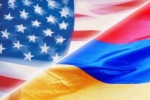 01.09.2011 THE DYNAMICS AND TENDENCY OF THE RELATIONS BETWEEN THE REPUBLIC OF ARMENIA AND THE US: CONCEPTUAL ANALYSIS
01.09.2011 THE DYNAMICS AND TENDENCY OF THE RELATIONS BETWEEN THE REPUBLIC OF ARMENIA AND THE US: CONCEPTUAL ANALYSIS
Sergey Minasyan
Foreign-policy relations with the key actors of the global politics constantly demand conceptual reconsideration and adjustment depending on the emerging regional conjuncture and global processes.
31.08.2011 ERDOGAN INADVERTENTLY PUBLICIZES ARMENIAN TERRITORIAL CLAIMS FROM TURKEY
By Harut Sassounian
Turkish Prime Minister Recep Erdogan's hysterical outburst at Armenia’s President last week had the salutary effect of publicizing to a worldwide audience Armenian territorial demands from Turkey!
 28.07.2011 DEVELOPMENTS AMONG THE ASSIMILATED ARMENIANS IN TURKEY: DYARBAKIR
28.07.2011 DEVELOPMENTS AMONG THE ASSIMILATED ARMENIANS IN TURKEY: DYARBAKIR
Ruben Melkonyan
The city of Dyarbakir, where many Armenians used to live, today also plays rather remarkable role in Turkey in the context of the development of the ethnic identity.
27.07.2011 CONGRESSIONAL PANEL URGES TURKEY TO RETURN CHURCH PROPERTIES TO CHRISTIANS
By Harut Sassounian
The House Foreign Affairs Committee adopted a strongly-worded measure on July 20, pressing Turkey to return all Christian church properties "to their rightful owners."
 25.07.2011 “ARAB SPRING” AND RUSSIA
25.07.2011 “ARAB SPRING” AND RUSSIA
Artashes Ter-Harutyunyan
The American and European expert circles has already began presenting their first general analyses of what the “Arab spring” gave to the West and to what extent the current dynamics is in tune with the strategic interests of the American and European powers.
 21.07.2011 POLITICAL PROCESSES IN IRAN: IDEOLOGICAL STRUGGLE
21.07.2011 POLITICAL PROCESSES IN IRAN: IDEOLOGICAL STRUGGLE
Sevak Sarukhanyan
Though the speculations about possible revolution in Iran stirred up after the 2009 presidential elections and Arab revolutions, over the recent 6 years really revolutionary changes has taken place in the domestic political and public life in the Islamic Republic of Iran.
14.07.2011 WASHINGTON POST’S VIEW OF ARTSAKH
In a series of articles in the Washington Post, reporter Will Englund puts the Karabakh conflict into perspective.
 11.07.2011 NAGORNO-KARABAKH BALANCES BETWEEN PEACE AND WAR
11.07.2011 NAGORNO-KARABAKH BALANCES BETWEEN PEACE AND WAR
By Haykaram Nahapetyan
Despite an agreement among the U.S., Russian and French presidents at the G-8 summit in Deauville, France, that it is time for a peaceful settlement to the conflict over Nagorno-Karabakh, Armenian President Serzh Sargsyan and Azerbaijani President Ilham Aliyev failed to make much progress when they met in Kazan, Russia, last week.
 07.07.2011 THE MODERN ISSUES OF THE CIRCASSIANS IN TURKEY
07.07.2011 THE MODERN ISSUES OF THE CIRCASSIANS IN TURKEY
Ruben Melkonyan
The Ottoman Empire was multi-national and multi-ethnic state where, however, non-Turk nations were obliged to renounce their identity and to Turkishize.
30.06.2011 NEW SITUATION IN THE MIDDLE EAST
Artashes Ter-Harutyunyan
At the end of May the Minister of Defence of Israel Ehud Barak made a statement which drew the attention of the experts dealing with the Middles East issues at once.
27.06.2011 POLITICAL PROCESSES IN IRAN
Sevak Sarukhanyan
When on May 1 the president of Iran returned to work after a 10-days break and made a statement that the state bodies must follow the guidelines of the spiritual authorities, there was an impression that the president of Iran smoothed the contradictions with the spiritual class of Iran and that the political crisis in Iran was gradually being settled.
 23.06.2011 THE POLITICAL IMPLICATION OF THE TURKISH-GEORGIAN “CULTURAL” DIALOGUE
23.06.2011 THE POLITICAL IMPLICATION OF THE TURKISH-GEORGIAN “CULTURAL” DIALOGUE
Tamara Vardanyan
Recently the issue of poor condition of the cultural monuments on the territory of Turkey and Georgia and the necessity of their restoration has stirred up.
21.06.2011 WHY PASS AN ARMENIAN GENOCIDE RESOLUTION FOR THE THIRD TIME?
By Harut Sassounian
A new Armenian Genocide resolution is being introduced in the House of Representatives this week. The first question is why Congress is being asked to pass a genocide resolution for the third time?
 20.06.2011 ON THE MODERN TENDENCIES IN THE “ARMENIAN POLICY” OF TURKEY
20.06.2011 ON THE MODERN TENDENCIES IN THE “ARMENIAN POLICY” OF TURKEY
Ruben Melkonyan
Turkish political machinery periodically adjusts its “Armenian policy” but its essence still remains the same. The ongoing developments come to prove that Turkey tries to use in regard to Armenia and Armeniacy new tactical methods.
16.06.2011 DEVELOPMENTS IN THE MIDDLE EAST AND KURDS
Artashes Ter-Harutyunyan
The Arab revolutions and developments conditioned by them sidelined a number of factors which have played an important role in the Middle East politics.
 13.06.2011 DEVELOPMENTS IN IRAN
13.06.2011 DEVELOPMENTS IN IRAN
Sevak Sarukhanyan
The domestic developments in Iran have essentially stirred up. The contradictions between spiritual leader of the country Ali Khamenei and the president Mahmoud Ahmadinejad became apparent for the public.
 09.06.2011 ON THE ISSUES OF THE CATHOLICS ARMENIAN
09.06.2011 ON THE ISSUES OF THE CATHOLICS ARMENIAN
Arestakes Simavoryan
For decades the developments which has taken place in the life of the Armenians in Turkey has also impacted the Catholic Armenian community in Turkey.
 06.06.2011 “FROZEN CONFLICT” BETWEEN AZERBAIJAN AND ARMENIA BEGINS TO BOIL
06.06.2011 “FROZEN CONFLICT” BETWEEN AZERBAIJAN AND ARMENIA BEGINS TO BOIL
By Ellen Barry
BAKU, Azerbaijan — In a mostly empty Soviet-era building here on a recent morning, a 29-year-old woman pressed her eye against the scope of a sniper rifle, brown hair spilling over her shoulder, and took aim at virtual commandos darting between virtual trees.
 02.06.2011 CALIFORNIA TO EXTEND UNTIL 2016 DEADLINE TO SUE INSURANCE COMPANIES
02.06.2011 CALIFORNIA TO EXTEND UNTIL 2016 DEADLINE TO SUE INSURANCE COMPANIES
By Harut Sassounian
Eleven years ago, the California Legislature extended until the end of 2010, the deadline for filing lawsuits against insurance companies that had failed to pay benefits to heirs of Armenian Genocide victims.
 27.05.2011 ANALYTICAL CENTERS IN AZERBAIJAN
27.05.2011 ANALYTICAL CENTERS IN AZERBAIJAN
Diana Galstyan, Varujean Geghamyan
In developed countries the so-called Think Tanks (TT) play important role in making decisions on state and social levels.
26.05.2011 COUNCIL OF EUROPE NOT DECEIVED BY ERDOGAN’S DOUBLE-TALK
By Harut Sassounian
Turkish Prime Minister Recep Tayyip Erdogan made an embarrassing appearance before the Parliamentary Assembly of the Council of Europe (PACE) last month. Erdogan was invited to the podium after lavish praise by Mevlut Cavusoglu...
 23.05.2011 CONTENT ANALYSIS AS A METHODOLOGY OF THE STUDY OF MEDIA-TEXTS
23.05.2011 CONTENT ANALYSIS AS A METHODOLOGY OF THE STUDY OF MEDIA-TEXTS
Anna Zhamakochyan
The way of expression of thoughts (ideas) usually has a kind of settled characteristic which on the one hand characterizes the author or source and on the other hand it becomes his style.
 18.05.2011 REFLECTING THE EVENTS OF THE AFRICAN CONTINENT IN THE MIRROR OF THE GREAT GAME
18.05.2011 REFLECTING THE EVENTS OF THE AFRICAN CONTINENT IN THE MIRROR OF THE GREAT GAME
Sergey Grinyaev, Gagik Harutyunyan
The beginning of 2010 was marked by an onset of a series of powerful transformational processes on the African continent. The majority of the “civilized world” re-discovered Africa after the 2010 FIFA World Cup in Johannesburg, which attracted not only tourists...
 16.05.2011 RUSSIAN-ARMENIAN COOPERATION AND TURKISH FACTOR
16.05.2011 RUSSIAN-ARMENIAN COOPERATION AND TURKISH FACTOR
Gagik Harutyunyan
Armenian-Russian cooperation (which has stirred up after the meeting of the presidents S. Sargsyan and D. Medvedev in August 2010) has several strategic planes.
 12.05.2011 IRAN, SHIITE FACTOR AND DEVELOPMENTS IN THE ARAB WORLD
12.05.2011 IRAN, SHIITE FACTOR AND DEVELOPMENTS IN THE ARAB WORLD
Sevak Sarukhanyan
The revolutionary movement which has been initiated in the Arab world has no tendency to subside; this, in its turn, has stirred up the struggle between regional and international powers, In particular, for Iran those processes has special significance...
 10.05.2011 SOCIAL NETWORKS IN THE ARMENIAN SEGMENT OF THE INTERNET
10.05.2011 SOCIAL NETWORKS IN THE ARMENIAN SEGMENT OF THE INTERNET
Samvel Martirosyan
The Armenian social networks has recently had greater impact on the formation of the information fields on the Internet and not only. Alongside with the growth of the number of the social network users in the republic the influence of the social networks also increases.
10.05.2011 SARKOZY JOINS OBAMA IN DECEIT: NEITHER SHOULD BE REELECTED IN 2012
By Harut Sassounian
Armenians in France and the United States have a common challenge in 2012: To do everything in their power to block reelection of their deceptive presidents. Neither Nicolas Sarkozy nor Barack Obama kept their promises to their respective Armenian constituents.
 06.05.2011 UNREST AROUND THE ARAB WORLD ENDANGERS TURKEY’S NEWFOUND INFLUENCE
06.05.2011 UNREST AROUND THE ARAB WORLD ENDANGERS TURKEY’S NEWFOUND INFLUENCE
By Anthony Shadid
Turkey faces a growing challenge from the tumult sweeping the Arab world to its booming economic stake in the region, newfound political influence and longstanding policy of permitting no problems to fester along its borders.
05.05.2011 FOX-TV AIRS TWO INTERVIEWS ON THE ARMENIAN GENOCIDE
FOX-TV (Los Angeles) invited this writer for a live in-studio interview on the Armenian Genocide for two consecutive days. The first, lasting 5 minutes, took place on April 24, during the TV station’s evening news program. The second, lasting over 6 minutes, took place on April 25, during the Good Day LA Show. Below are excerpts from both interviews:
 02.05.2011 ON FORECASTS
02.05.2011 ON FORECASTS
Gagik Terteryan
The efficient activity of our political elite assumes adequate expert service. In particular, political leadership must have an opportunity to receive from the expert community the elaborations concerning:
 28.04.2011 CRISIS IN LIBYA AND REGIONAL DIPLOMACY OF TURKEY
28.04.2011 CRISIS IN LIBYA AND REGIONAL DIPLOMACY OF TURKEY
Artashes Ter-Harutyunyan
On April 8 the prime-minister of Turkey Recep Tayip Erdogan stated that his country is elaborating the programme on cessation of the hostilities in Libya...
 28.04.2011 TURKEY SPENDS FREELY AGAIN, AND SOME ANALYSTS WORRY
28.04.2011 TURKEY SPENDS FREELY AGAIN, AND SOME ANALYSTS WORRY
By LANDON THOMAS Jr.
Is Turkey’s booming economy ripe for a fall? It certainly looks that way. Stock brokers endure four-month waiting lists to pay as much as $150,000 for top-of-the-line Audis and BMWs — twice the manufacturers’ prices after taxes.
20.04.2011 SERJ TANKIAN TO JOIN L.A. ARMENIANS TO PROTEST AGAINST OBAMA ON APRIL 21
By Harut Sassounian
Armenian-Americans are offended that Pres. Obama is going to launch his reelection campaign in Los Angeles this week, on the eve of April 24, having failed to honor his solemn promise to acknowledge the Armenian Genocide.
 18.04.2011 NATO'S LAST MISSION? The military crisis in Libya highlights an existential crisis for NATO
18.04.2011 NATO'S LAST MISSION? The military crisis in Libya highlights an existential crisis for NATO
By Fred Kaplan
Cries of alarm ring out from Italy, Qatar, Great Britain, and France that the NATO allies aren't doing enough to help the Libyan rebels stave off Muammar Qaddafi's troops and mercenaries.
 18.04.2011 ON TURKISH POLICY OF NEO-OTTOMANISM AND DEVELOPMENTS IN THE ARAB WORLD
18.04.2011 ON TURKISH POLICY OF NEO-OTTOMANISM AND DEVELOPMENTS IN THE ARAB WORLD
Ruben Melkonyan
Back in 2001 the current Minister of Foreign Affairs of Turkey Ahmed Davutoglu while analyzing regional and geopolitical interests and priorities of Turkey in “Strategic depth: Turkey’s International Position” published back in 2001, put forward a number of theoretical assessments and proposals.
 14.04.2011 ARMENIANS OF TBILISI: NEW REALITIES
14.04.2011 ARMENIANS OF TBILISI: NEW REALITIES
Tamara Vardanyan
The efforts of the current Georgian authorities directed to the nation building, gradually form new realities at once on three levels; firstly on regional level, secondly, for Georgia itself in its aspirations and prospects of turning into an nation state ...
13.04.2011 THE WORLD IN 2050
In March 2006 we produced a report setting out projections for potential growth in GDP in 17 leading economies over the period to 2050. These projections were updated in March 2008 and we are now revisiting them again in the aftermath of the global financial crisis, extended now to cover all G20 economies.
 07.04.2011 BIGGEST MARKET RISK: MIDDLE EAST TURMOIL
07.04.2011 BIGGEST MARKET RISK: MIDDLE EAST TURMOIL
By Hibah Yousuf
No one saw it coming. As champagne corks popped and confetti swirled to usher in 2011, most experts pointed to Europe's ongoing sovereign debt crisis as the market's biggest hurdle this year.
 07.04.2011 REVOLUTIONARY MOVEMENTS IN ARAB WORLD AND ACCOMPANYING INFORMATION FLOWS
07.04.2011 REVOLUTIONARY MOVEMENTS IN ARAB WORLD AND ACCOMPANYING INFORMATION FLOWS
Samvel Martirosyan
The processes in the Arab world are accompanied by large-scale, global information flows in which not only the larges world mass media are involved but also huge masses of social networks’ users which try to participate in the informational and propaganda confrontation.
 04.04.2011 DOMESTIC POLITICAL DEVELOPMENTS IN IRAN
04.04.2011 DOMESTIC POLITICAL DEVELOPMENTS IN IRAN
Sevak Sarukhanyan
The Iranian opposition keeps expanding anti-governmental activity conditioned by the upcoming parliamentary elections in 2012 against the background of the developments in the Arab world.
 29.03.2011 NOTICE
29.03.2011 NOTICE
The 1st issue of “Strategy of development” («Стратегии развития») magazine for 2011 was published. The special edition is fully devoted to the material of “The Role of Russia in the South Caucasus” conference, held in Moscow on October 21st, 2010, on the initiative of the Regional Public Movement for the Promotion of the Russian-Armenian relations (president – Mher Simonyan).
 25.03.2011 ARMENIA-EGYPT: ARMENOLOGICAL BRIDGE
25.03.2011 ARMENIA-EGYPT: ARMENOLOGICAL BRIDGE
Eduard L. Danielyan
Armenology (“studying of the materials about the Armenian reality... as a theory about academic knowledge revealed in various fields, and peculiarities characteristic to Armenian reality, researched by appropriate disciplines with their own distinctive methods”)...
 21.03.2011 ON DILETTANTISM, PATRIOTISM AND GAS PRICES IN ARMENIA AND EUROPE
21.03.2011 ON DILETTANTISM, PATRIOTISM AND GAS PRICES IN ARMENIA AND EUROPE
Sevak Sarukhanyan
On February 16 Armenian “Zhamanak” daily issued an article by a certain Hrayr Manukyan on, in his opinion, shameful situation with gas prices in Armenia. In the article it is particularly mentioned that in 17 European countries chosen on random gas is 11 times cheaper than in Armenia.
 17.03.2011 INFORMATION POLICY OF THE AZERBAIJANI ARMENIAN-LANGUAGE TV CHANNELS
17.03.2011 INFORMATION POLICY OF THE AZERBAIJANI ARMENIAN-LANGUAGE TV CHANNELS
Anna Zhamakochyan, Diana Galstyan
Since October 2009 Azerbaijani propaganda obtained new mechanism by opening ATV International (ATV-INT) satellite TV channel which is broadcasting in four languages (Russian, Armenian, Iranian and English).
 10.03.2011 THE WEB TURNS INTO THE MAIN SOURCE OF INFORMATION
10.03.2011 THE WEB TURNS INTO THE MAIN SOURCE OF INFORMATION
Samvel Martirosyan
The Internet wins position on the information field in the world with an incredible pace. Printed media lose their grounds as a source of information and now television follows their example of losing the role of the main informer.
 03.03.2011 ON FORECASTS
03.03.2011 ON FORECASTS
Gagik Harutyunyan
One of the prior purposes of the states and national formations is the comprehensive evaluation of the current situation and formation of definite ideas about future developments. Currently forecasts and scenarios, which has become an important component of the political culture, are in requisition in the leading countries
01.03.2011 ISTANBUL ARMENIANS DOCUMENT VIOLATIONS OF MINORITY RIGHTS IN TURKEY
By Harut Sassounian
Two recent documents from Istanbul shed new light on violations of minority rights in Turkey. The authors of these reports make cautious, yet accurate assessments of the problems facing the Armenian, Greek and Jewish communities.
 28.02.2011 ARMENIAN VARTO CLAN IN EUROPE
28.02.2011 ARMENIAN VARTO CLAN IN EUROPE
During the Armenian Genocide a large Armenian clan, which was called Varto, after its leader Vardan and which inhabited Sirnak province, managed to escape the massacres and to shelter in mountains. After that this group of survived Armenians, isolating themselves from the rest of the world, began their struggle for survival which had lasted for several decades.
28.02.2011 THREE QUESTIONS TURKEY’S AMBASSADOR WOULD NOT ANSWER...
By Harut Sassounian
Turkey’s Ambassador to the United States, Namik Tan, spoke at the University of Southern California’s Center on Public Diplomacy on February 16. His topic was: "Public Diplomacy: The Turkish Experience."
 24.02.2011 FUTURE OF THE MUSLIM POPULATION ON THE PLANET
24.02.2011 FUTURE OF THE MUSLIM POPULATION ON THE PLANET
Artashes Ter-Harutyunyan
In January 2011 American Pew Research Center issued “The Future of the Global Muslim Population” research. The research covers period from 1990 to 2030 and it regards to all the states and territories in the world. The main conclusion is that over those 40 years the number of the Muslims will double, rising from 1.1 billion (1990) to 2.2 billion (2030).
 21.02.2011 IRAN AND POLITICAL CRISIS IN EGYPT
21.02.2011 IRAN AND POLITICAL CRISIS IN EGYPT
Sevak Sarukhanyan
The events which took place in Tunisia and especially in Egypt are significant for Iran. This may seriously change political situation and developments in Arab world, thus either endangering or strengthening regional and international positions of Iran.
 18.02.2011 POSITIVE AND NEGATIVE ASPECTS OF THE NAGORNO-KARABAKH CONFLICT SETTLEMENT ROADMAP AT CURRENT STAGE
18.02.2011 POSITIVE AND NEGATIVE ASPECTS OF THE NAGORNO-KARABAKH CONFLICT SETTLEMENT ROADMAP AT CURRENT STAGE
Mikhail Aghajanyan
The process of the Nagorno-Karabakh settlement has recently shown some kind of stalling and absence of any significant dynamics of positive development. Such a tendency has been boldly outlined after the well-known meeting of three presidents in Sochi on January 25, 2010.
 14.02.2011 «АСИММЕТРИЧНЫЕ УГРОЗЫ И КОНФЛИКТЫ НИЗКОЙ ИНТЕНСИВНОСТИ» (“Asymmetric Threats and Conflicts of Low Intensity” (in Russian))
14.02.2011 «АСИММЕТРИЧНЫЕ УГРОЗЫ И КОНФЛИКТЫ НИЗКОЙ ИНТЕНСИВНОСТИ» (“Asymmetric Threats and Conflicts of Low Intensity” (in Russian))
The 9th issue of the Russian information and analytical magazine “Asymmetric Threats and Conflicts of Low Intensity” (in Russian) for 2010 was published. The founder of the magazine is the Center for the Analysis of Terroristic Threats.
 14.02.2011 POSSIBILITIES OF INTERNATIONAL PEACEKEEPING IN NAGORNO-KARABAKH CONFLICT: MYTHS AND REALITIES
14.02.2011 POSSIBILITIES OF INTERNATIONAL PEACEKEEPING IN NAGORNO-KARABAKH CONFLICT: MYTHS AND REALITIES
Sergei Minasyan
The Nagorno-Karabakh conflict is the only ethno-political conflict on the post-Soviet space where the stability and relative armistice on the frontline after the cease-fire has been preserved without any external assistance and peace-keeping contingents of the third parties or international organizations.
 08.02.2011 SHALE GAS GHOST
08.02.2011 SHALE GAS GHOST
Sergei Sargsyan
Unexpectedly for many, in 2008 the United States sharply revved up production of natural gas – on 7.5% or 41.7 billion m3, and left behind Russia which produced “only” 582 billion m3. Such a success was acquired by the US at the expense of shale gas production - gas in the shale stratum:
 03.02.2011 IRAN IN 2011: POSSIBLE DEVELOPMENTS
03.02.2011 IRAN IN 2011: POSSIBLE DEVELOPMENTS
Sevak Sarukhanyan
2011 will be important from the point of view of the social-economic and political development of Iran, as well as in the aspect of nuclear programme and foreign and domestic political developments.
 31.01.2011 TURKEY: ROUND THE ISSUE OF ETHNIC IDENTITY
31.01.2011 TURKEY: ROUND THE ISSUE OF ETHNIC IDENTITY
Ruben Melkonyan
The issue of the ethnic identity in Turkey takes an significant place not only in the public discussions but it is also gradually acquires more important place on the political agenda. In July 2010 oppositional Kurdish Peace and Democracy party made a proposal in the Great National Assembly of Turkey which aroused violent reaction in the Turkish political field.
 27.01.2011 GERMAN INSURANCE COMPANIES SHOULD STOP CHEATING THEIR ARMENIAN CLIENTS
27.01.2011 GERMAN INSURANCE COMPANIES SHOULD STOP CHEATING THEIR ARMENIAN CLIENTS
By Harut Sassounian
German firms filed a petition for a rehearing by the full 9th Circuit Court of Appeals, after a panel of three judges of that court had ruled that heirs of Armenian Genocide victims could seek payment from life insurance companies operating in the Ottoman Empire.
 25.01.2011 SOUTHERN SUDAN: NEW STATE IN THE WORLD
25.01.2011 SOUTHERN SUDAN: NEW STATE IN THE WORLD
Artashes Ter-Harutyunyan
Though the results of the referendum hold on January 9-15 in Southern Sudan will be published on February 6-14, today one can already speak about those results. The fact that the referendum was hold is much more important, because there is no doubt that the majority of the participants of the referendum voted for the independence of Southern Sudan.
19.01.2011 TURKISH PRIME MINISTER SHOOTS HIMSELF IN THE FOOT AGAIN
By Harut Sassounian
Prime Minister Erdogan embarrasses himself and his government just about every time he opens his mouth! His angry statements, often bewildering and insulting, give Turkey a black eye internationally and provide fresh ammunition to his domestic opponents.
 17.01.2011 ON THE CYBER-SECURITY
17.01.2011 ON THE CYBER-SECURITY
Artashes Ter-Harutyunyan
In November 2010 new NATO Strategic Concept was adopted at the Lisbon summit. Paragraph 12 reads: “Cyber attacks are becoming more frequent, more organized and more costly in the damage that they inflict on government administrations, businesses, economies and potentially also transportation and supply networks and other critical infrastructure; they can reach a threshold that threatens national and Euro-Atlantic prosperity, security and stability.
 10.01.2011 ARMENIAN COMMUNITY IS STILL WAITING TO HEAR FROM CONGRESS
10.01.2011 ARMENIAN COMMUNITY IS STILL WAITING TO HEAR FROM CONGRESS
By Haykaram Nahapetyan
The “lame-ducking” Congress did not vote on H-Res 252 recognizing the period of systematic massacres of the Armenian people during the WW1 as genocide. On March 4th, it passed House Foreign Affairs Committee with 23 to 22 votes but speaker Nancy Pelosi did not bring the Armenian Genocide Resolution to the floor agenda, despite her initial pledge.
23.12.2010 ARMENIANS SUE TURKEY CLAIMING U.S. AIR BASE LAND
By Harut Sassounian
Over the years, Armenians have gradually shifted their attention from the recognition of the Genocide to the pursuit of legal remedies for their massive losses suffered between 1915 and 1923. Several lawsuits have been filed recently in U.S. Federal Courts against Western insurance companies and banks.
 22.12.2010 ARMENIANS DENOUNCE KOBE BRYANT DEAL WITH TURKISH AIRLINES
22.12.2010 ARMENIANS DENOUNCE KOBE BRYANT DEAL WITH TURKISH AIRLINES
By Ivan Watson
The business deal looked fairly straightforward. Last week, American basketball star Kobe Bryant agreed to become the new celebrity face of Turkish Airlines, a growing international carrier. Though he has admitted to never having visited Turkey, the Los Angeles Lakers guard said in a news release that "Turkey is a country rich in natural beauty and thousands of years of cultural history, and I'm proud to partner with Turkish Airlines to bring that majesty to people around the world."
21.12.2010 RUSSIA-TUKREY RELATIONS IN THE SPOTLIGHT OF THE US AND UN
Mikhail Aghajanyan
Recent stirring up of Russian leadership in the European direction of the foreign policy course cannot be considered in the exclusively positive vein for the relations between Russia and European countries. Preserving, and according to some Russian experts, even intensification of vigilance of the Europeans in regard to Russia is conditioned greatly by rather important for us side component of relations of Moscow with the Euro-Atlantic countries – i.e. development of Russian-Turkish relations.
 15.12.2010 GAS FROM IRAQI KURDISTAN FOR NABUCCO: TURKISH INTEREST
15.12.2010 GAS FROM IRAQI KURDISTAN FOR NABUCCO: TURKISH INTEREST
Sergei Sargsyan
In September 2009 Turkey’s Minister of Energy Taner Yildiz stated that Turkey and Iraq discussed possibilities of concluding memorandum on mutual understanding in the issue of the Iraqi gas supply to Europe through the territory of Turkey by the planned Nabucco gas pipeline
15.12.2010 US COURT OF APPEALS HANDS A MAJOR VICTORY TO ARMENIANS
By Harut Sassounian
In a stunning development, a federal appeals court handed Armenian-Americans a major legal and political victory last week. It reversed its earlier ruling and decided that a California law extending the deadline for lawsuits against life insurance companies WAS constitutional, after all!
 09.12.2010 DEVELOPMENTS IN IRAN AND ROUND IT
09.12.2010 DEVELOPMENTS IN IRAN AND ROUND IT
Sevak Sarukhanyan
Developments which can be observed in the Russian-Iranian relations in the recent period create new international situation round the Islamic Republic of Iran and the main feature of that situation can be the final isolation of Iran. At the same time new changes in the social and economic sector can be observed in Iran, and those changes can undermine political stability of the country.
 06.12.2010 CALIFORNIA OFFICIALS HONOR REPUBLIC OF ARTSAKH AND ITS PRESIDENT
06.12.2010 CALIFORNIA OFFICIALS HONOR REPUBLIC OF ARTSAKH AND ITS PRESIDENT
By Harut Sassounian
Bako Sahakyan, President of the Republic of Artsakh (Nagorno Karabagh), just completed his third visit to Los Angeles. Unlike his previous two visits, he was received last week by prominent political figures as a Head of State, even though his country is not officially recognized by the international community.
05.12.2010 RAND CORPORATION AND WE: ARMENIA-TURKEY RELATIONS
Ara Marjanyan
The recent developments directed to establishing Armenia-Turkey relations are arguably one of the most important factors (if not the single most important factor) shaping the future of our region.
 02.12.2010 ALTERNATIVE AND TRADITIONAL MEDIA IN ARMENIA
02.12.2010 ALTERNATIVE AND TRADITIONAL MEDIA IN ARMENIA
Samvel Martirosyan
Current development of the Internet brought on the one hand to competition between the alternative and traditional media and on the other hand to supplementing each other. Global experience of the recent years came to prove that the so-called civil journalism (which includes bloggers, the users of the social networks and other similar civil resources) in some situations appears to be more efficient than the traditional media.
 29.11.2010 TURKEY-CHINA INTERRELATIONS
29.11.2010 TURKEY-CHINA INTERRELATIONS
Artashes Ter-Harutyunyan
On November 8-14 joint Chinese-Turkish maneuvers of land forces took place. Though that was not large-scale maneuvers (the maneuvers were arranged on the level of special mission units in the mountain terrain and were directed to the elaboration of anti-terror actions), such an unprecedented military cooperation between Beijing and Ankara attracted the attention of the observers.
 25.11.2010 ARMENIA-TURKEY: SOME TENDENCIES OF TURKISH POLICY
25.11.2010 ARMENIA-TURKEY: SOME TENDENCIES OF TURKISH POLICY
Ruben Melkonyan
Breakdown of the Zurich protocols by Turkish authorities struck serious blow on the international image of that country. After that Turkish party initiated measures of imitational character which had to create an impression that the Armenian-Turkish process continued and that Turkey adhere to the commitments it undertook.
 23.11.2010 INTERNET STRUCTURES IN THE CONTEXT OF POST-DEMOCRACY AND ISSUES OF INFORMATION SECURITY
23.11.2010 INTERNET STRUCTURES IN THE CONTEXT OF POST-DEMOCRACY AND ISSUES OF INFORMATION SECURITY
Gagik Harutyunyan
Internet, which was initially created for the communication of the professionals, has become available to billions in just several decades (and according to other criteria of counting in incomplete 20 years), and there have been social structures of different load created in it. All this is another phase of permanent information revolution with all the ensuing consequences of positive and negative character.
 18.11.2010 IRAN: OLD AND NEW ISSUES
18.11.2010 IRAN: OLD AND NEW ISSUES
Sevak Sarukhanyan
On October 17 the president of Iran M. Ahmadinejad stated that Tehran is ready to resume negotiations on the nuclear issues with the “six nations”. This is Iran’s first statement since June 2010 when Tehran stated that it terminated negotiations with the “six” because of the illegal conduct of the later (here the sanctions imposed on Iran are meant). There are also claims set up in the statements made by the president on October 17, after the implementation of which Tehran will get back to talks:
 15.11.2010 THE NUCLEAR DOMINO MYTH Dismantling Worst-Case Proliferation Scenarios
15.11.2010 THE NUCLEAR DOMINO MYTH Dismantling Worst-Case Proliferation Scenarios
Johan Bergenas
When considering the dangers of an Iranian nuclear weapons program, those who differ on political ideology find rare common ground. According to nearly everyone, if Iran develops nuclear weapons, its neighbors will inevitably do so, too. Former U.S. Senator Sam Nunn (D-Ga.), for example, said earlier this year, "The governments of the world must understand what a threat it is if the Iranians get nuclear weapons...
 11.11.2010 TURKEY AFTER THE CONSTITUTIONAL CHANGES
11.11.2010 TURKEY AFTER THE CONSTITUTIONAL CHANGES
Artashes Ter-Harutyunyan
On September 12, the referendum on constitutional changes offered by the Justice and Development Party (JDP, Turk.; AKP) was held. Though two oppositional powers – Kemalist Republican People’s Party (RPP, Turk.: CHP) and Nationalist Movement Party (NMP, Turk.: MHP) – with, sometimes evident support of the army leadership, were against those changes, the teammates of the prime-minister Erdogan managed to hold the referendum successfully and win the majority of the votes.
 04.11.2010 MECHANISM OF PEACEKEEPING IN NAGORNO-KARABAKH CONFLICT: THEORY OF DETERRENCE UNDER THE ARMAMENTS RACE
04.11.2010 MECHANISM OF PEACEKEEPING IN NAGORNO-KARABAKH CONFLICT: THEORY OF DETERRENCE UNDER THE ARMAMENTS RACE
Sergei Minasyan
The aim of the given work is to study the possibility of keeping long-term peace in the zone of Nagorno-Karabakh conflict in case when one of the parties to the conflict (Azerbaijan) hopes for the rearmament of its army and military revanche in an appropriate moment taking into consideration its financial resources...
 29.10.2010 ARMENIAN ENERGY SECURITY AND ARMENIAN-RUSSIAN RELATIONS
29.10.2010 ARMENIAN ENERGY SECURITY AND ARMENIAN-RUSSIAN RELATIONS
Sevak Sarukhanyan
The agreement on prolonging the term of deployment of Russian military base in Armenia took central place in the discussions during the August visit of the president of the RF to Armenia. But the agreements concerning the energy sector are of no less importance.
 27.10.2010 AZERBAIJAN: SEARCHING NEW FOREIGN POLICY BALANCE
27.10.2010 AZERBAIJAN: SEARCHING NEW FOREIGN POLICY BALANCE
Sergei Sargsyan
Before the war in South Ossetia the unsolved status of the issues of military and political character, which were faced by Azerbaijan and which were, first of all, connected with the ongoing Nagorno-Karabakh conflict (NKC), within the system of the existing balance of the geopolitical powers in the South Caucasus, was considered as a cause for some shift of the foreign political priorities.
 20.10.2010 PECULIARITIES OF BILINGUAL EDUCATION FROM THE POINT OF VIEW OF THE NATIONAL IDENTITY
20.10.2010 PECULIARITIES OF BILINGUAL EDUCATION FROM THE POINT OF VIEW OF THE NATIONAL IDENTITY
Tamara Vardanyan
The phenomenon of the multi-culturalism in pedagogic became a subject of investigation in the 60s of the 20th century, and in 1980s the theories and methods of multi-cultural education began to develop. The significance of the issue is connected with the fact that the constantly growing flow of emigrants from Asia and Africa causes the problems with integration in the host countries.
 14.10.2010 SPECIFIC SITUATION OF THE AZERBAIJANI ANTI-ARMENIAN PROPAGANDA
14.10.2010 SPECIFIC SITUATION OF THE AZERBAIJANI ANTI-ARMENIAN PROPAGANDA
Sona Manusyan
In recent period, after some delay, the specialists of informational influences from Armenia studied in detail the characteristics of the information policy of Azerbaijan; some counteractions have been elaborated. Though in the initial stage of this process there was a concern that the reaction to the increasing Azerbaijani propaganda is a bit belated, today one may state that the later is recognizable and predictable for both the specialists and variety of people.
 06.10.2010 “ARMENIAN RESOURCES” in the USA
06.10.2010 “ARMENIAN RESOURCES” in the USA
The US Armenian Studies centers have many peculiarities which are conditioned by various historical, geographic, political, social, cultural, educational factors. Today the Armenian community in the US faces many challenges. The most characteristic problems are the issues of preserving national identity, consolidation of the Armenian community, making it more powerful as a political factor and etc.
 28.09.2010 ON RUSSIAN-ARMENIAN RELATIONSHIP
28.09.2010 ON RUSSIAN-ARMENIAN RELATIONSHIP
Gagik Ter-Harutyunyan
The August visit of the RF president D.Medvedev to Yerevan, during which a treaty on Russian military base was prolonged and got new content (it will also provide the security of the RA), draw a wide response in political circles. Alongside with the positive response, negative opinions can also be found, according to which this treaty not only contradicts to our national interests but it restricts the sovereignty of the RA. In this regard let’s try to present some expert considerations which will promote more complex perception of the issue.
15.09.2010 SENATE SHOULD NOT CONFIRM BRYZA AS U.S. AMBASSADOR TO AZERBAIJAN
By Harut Sassounian
At the request of Sen. Barbara Boxer, the Senate Foreign Relations Committee had postponed from early August to mid-September its vote on Matt Bryza, nominee for U.S. Ambassador to Azerbaijan. Senators Boxer, Harry Reid, and Robert Menendez were satisfied neither with Bryza’s answers during the confirmation hearing nor subsequently with his written responses.
 03.09.2010 IDEOLOGICAL TRENDS IN THE CONTEXT OF FOREIGN POLICY OF TURKEY
03.09.2010 IDEOLOGICAL TRENDS IN THE CONTEXT OF FOREIGN POLICY OF TURKEY
Arestakes Simavoryan
There are various visions of Turkey’s future in the “camps” of influential Turkish parties and due to this the discussions round the multi-polar, contrary ideologies (neo-Ottomanism, neo-pan-Turkism, neo-Kemalism, Turkish Eurasianism) continue...
 02.09.2010 CONGRESS SHOULD INVESTIGATE STATE DEPT. FOR HOLDING BACK AID TO ARTSAKH
02.09.2010 CONGRESS SHOULD INVESTIGATE STATE DEPT. FOR HOLDING BACK AID TO ARTSAKH
By Harut Sassounian
The State Department has acted negligently and possibly in contempt of Congress by withholding assistance that it had expressly allocated to Nagorno Karabagh (Artsakh) during the past 12 years.
 30.08.2010 ON TURKISH-AZERBAIJANI ACTIVATION IN THE US ANALYTICAL STRUCTURES
30.08.2010 ON TURKISH-AZERBAIJANI ACTIVATION IN THE US ANALYTICAL STRUCTURES
Haykaram Nahapetyan
A significant role in elaboration of the state policy of the United States, shaping of the analytical and information fields is allotted to the analytical organizations – think tanks. The following analytical structures work in Washington: Carnegie endowment foundation, Brookings institute, Heritage foundation, John Hopkins university-SAIS, CSIS-Center for Strategic and International studies, Woodrow Wilson Center, Council of Foreign Relations, Atlantic Council and etc.
 30.07.2010 DOES THE SOUTH CAUCASUS NEED RECALIBRATION OF GERMANY’S AND EU`S POLICY UPON THE PATTERN OF MR. MEISTER?
30.07.2010 DOES THE SOUTH CAUCASUS NEED RECALIBRATION OF GERMANY’S AND EU`S POLICY UPON THE PATTERN OF MR. MEISTER?
Armen Martirosyan
Recently, on July 7th the German Council on Foreign Relations (DGAP) organized a discussion on the report presented by Mr. Stefan Meister, during which the author introduced the outlines of his study (Recalibrating Germany`s and EU`s policy in the South Caucasus). Several participants, including me, approached critically some of his assumptions and conclusions. However, later on, having read the full document, I felt myself compelled to present some comments in written form, which I do hope will contribute to more objective comprehension of the issues concerned.
 29.07.2010 ON NKR AND REGIONAL ISSUES
29.07.2010 ON NKR AND REGIONAL ISSUES
Gagik Harutyunyan
As it is known, right after the meeting of the presidents of Armenia, Azerbaijan and Russia on June 17 in St. Petersburg, I.Aliyev left Petersburg and on June 18 in the NKR Armenian side suffered losses after the subversive act of Azerbaijani forces. It is less known that this incident was followed by the equal actions of our armed forces. Any way, those events were received rather sharply in our society and they activated the discussion of various military scenarios.
 29.07.2010 BRYZA WRONGLY TELLS SENATORS: ARMENIAN PATRIARCH IS DEAD
29.07.2010 BRYZA WRONGLY TELLS SENATORS: ARMENIAN PATRIARCH IS DEAD
By Harut Sassounian
Barack Obama ran for the Presidency on a platform of "change" and promised to bring a fresh approach to domestic and foreign policy issues. After the election, however, he disappointed his supporters by continuing many of his predecessor’s policies.
 22.07.2010 IRAN AND SANCTIONS
22.07.2010 IRAN AND SANCTIONS
Sevak Sarukhanyan
On June 10 the UN Security Council passed a resolution 1929 on imposing new sanctions on Iran. 12 of 15 Security Council member countries voted for the resolution, Turkey and Brazil were against and Lebanon abstained. Despite the information background around the discussion of Iran’s issue in the Security Council, the resolution passed cannot be called stern.
 19.07.2010 PROSPECTS ABOUND AMONG THE KURDS
19.07.2010 PROSPECTS ABOUND AMONG THE KURDS
By SAM DAGHER
Shortly after leaving his job last year as the United States ambassador to the United Nations, Zalmay Khalilzad started negotiations with Iraqi Kurdish leaders to become a paid adviser.
His stint as adviser to the semiautonomous Kurdistan region’s board of investment lasted about seven months. In May Mr. Khalilzad, who also served as ambassador to Iraq, became a board member of RAK Petroleum, an oil and gas investment company based in the Persian Gulf Arab emirate of Ras al-Khaimah.
 08.07.2010 RUSSIA AND SOME ASPECTS OF CURRENT DEVELOPMENT OF THE SITUATION IN THE BLACK SEA REGION
08.07.2010 RUSSIA AND SOME ASPECTS OF CURRENT DEVELOPMENT OF THE SITUATION IN THE BLACK SEA REGION
Mikhail Aghajanyan
The development of the foreign political processes in the Black Sea region demonstrates the preservation of the confrontational relations between the main powers in the region. The well-known attempts of the countries which are not from that region, and firstly the US, to consolidate their positions in the region...
 01.07.2010 DEVELOPMENTS ROUND THE NUCLEAR PROGRAMME OF IRAN
01.07.2010 DEVELOPMENTS ROUND THE NUCLEAR PROGRAMME OF IRAN
Sevak Sarukhanyan
Iran and its nuclear programme continue to be in the spotlight of the international relations and mass media. On May 17 the presidents of Iran and Brazil and the prime-minister of Turkey came to an agreement on re-enrichment of the uranium, which is enriched by Iran, outside its territory. Despite this Tehran still faces the danger of imposing new sanctions on it.
 21.06.2010 TWO ‘STREAMS’ FROM RUSSIA: BREAKING DOWN THE OLD GEOPOLITICAL STRUCTURES
21.06.2010 TWO ‘STREAMS’ FROM RUSSIA: BREAKING DOWN THE OLD GEOPOLITICAL STRUCTURES
Sergey Sargsyan
The global financial crisis has given Russia the opportunity not only to significantly boots its energy operations in European countries, which still remain the main markets for its oil and gas, but also to raise its relationships with nations that produce these strategic raw materials to a new, realistically and economically sound level. Besides, the crisis has also enabled Moscow to strengthen its geopolitical interests in Central Asia and South Caucasus countries.
 14.06.2010 AMERICAN JEWISH COMMUNITY ENDS SUPPORT OF TURKISH INTERESTS ON HILL
14.06.2010 AMERICAN JEWISH COMMUNITY ENDS SUPPORT OF TURKISH INTERESTS ON HILL
By Eli Lake
In October 2000, the government of Turkey had a problem. House Speaker J. Dennis Hastert had promised to bring a resolution commemorating the Armenian genocide to the floor for a vote, a move that Ankara said would be a slap in the face to a NATO ally.
 11.06.2010 MICHAEL COREN ON TURKISH HYPOCRISY
11.06.2010 MICHAEL COREN ON TURKISH HYPOCRISY
Celebrated Canadian TV show host, columnist, writer Michael Coren on Turkish hypocrisy.
 04.06.2010 MILITARY AND POLITICAL RISKS OF TRANSCASPIAN PROJECTS
04.06.2010 MILITARY AND POLITICAL RISKS OF TRANSCASPIAN PROJECTS
Sergey Sargsyan
The judicial and legal issues regarding the state border and navigation in the Caspian Sea before the collapse of the USSR were solved in terms of two documents – the 1921 treaty between the Soviet Russia and Persia and the 1940 Treaty of the Trade and Navigation between the USSR and Iran.
 04.06.2010 «ВИЗАНТИЙСКОЕ НАСЛЕДСТВО»
04.06.2010 «ВИЗАНТИЙСКОЕ НАСЛЕДСТВО»
The 1-2 (19-20) issue of “Византийское наследство” magazine for 2010 was published. Editor-in-chief Robert Hakobyan. The issue feature following articles:
 01.06.2010 SUPERFLUIDITY OF INFORMATION IN SOCIAL NETWORKS
01.06.2010 SUPERFLUIDITY OF INFORMATION IN SOCIAL NETWORKS
Samvel Martirosyan
The appearance of the new technologies of the information spreading makes the possibility of the filtration more complicated not only for the common reader but also for the editor of the periodical who uses the alternative sources. And today the availability of the alternative information sources – blogs, social networks, microblogs – is the factor that the traditional mass media must take into consideration in their everyday work.
 21.05.2010 STRATEGY OF DEVELOPMENT
21.05.2010 STRATEGY OF DEVELOPMENT
Gagik Harutyunyan
The stirring up of the issue connected with Armenian-Turkish relations and the approximation of the centenary of the Armenian Genocide occasioned to take new view of the current problems of the Armeniancy, to turn to our political history and possible prospects. This tendency should be perceived positively because both among us and in the world the changes, which demand the elaboration of strategy adequate to the new realities, are taking place.
 13.05.2010 TURKISH SCHOLAR TANER AKCAM ADVOCATES CHANGE IN POLICY OF GENOCIDE DENIAL
13.05.2010 TURKISH SCHOLAR TANER AKCAM ADVOCATES CHANGE IN POLICY OF GENOCIDE DENIAL
By Harut Sassounian
Dr. Taner Akcam, one of the first Turkish scholars to acknowledge the Armenian Genocide, delivered two important lectures in Southern California last week. Based on historical research, he analyzed the underpinnings of Turkey’s denial of the Armenian Genocide and proposed solutions for its official acknowledgment.
 06.05.2010 THE WASHINGTON CENTRE FOR AZERBAIJAN STUDIES HAS BEEN SET UP AS AN INDEPENDENT, BIPARTISAN ORGANIZATION
06.05.2010 THE WASHINGTON CENTRE FOR AZERBAIJAN STUDIES HAS BEEN SET UP AS AN INDEPENDENT, BIPARTISAN ORGANIZATION
The centre has been founded by young Azerbaijani and international scholars to serve as a platform for policy evaluation and independent thinking and to contribute to the strategic debate on Azerbaijan, the Caucasus and Caspian.
05.05.2010 IS TURKEY’S CONSUL UNHAPPY THAT NOT ALL ARMENIANS WERE SLAUGHTERED LIKE SHEEP?
By Harut Sassounian
Hakan Tekin, the young and inexperienced Turkish Consul General in Los Angeles, is trying hard to earn brownie points with his bosses in Ankara by countering any reference to Armenians in the U.S. media. He went overboard last week by sending an offensive letter to the Los Angeles Times.
 04.05.2010 MOOD IS DARK AS ISRAEL MARKS 62ND YEAR AS A NATION (It’s goodbye now, blondie)
04.05.2010 MOOD IS DARK AS ISRAEL MARKS 62ND YEAR AS A NATION (It’s goodbye now, blondie)
By ETHAN BRONNER
Every year, Israelis approach the joy of their Independence Day right after immersing themselves in a 24-hour period of grief for fallen soldiers. Before the fireworks burst across the skies Monday night to celebrate the country’s 62nd birthday, the airwaves filled with anguished stories of servicemen and -women killed, the Kaddish prayer of mourning and speeches placing the deeply personal losses of a small country into the sweep of Jewish history.
 30.04.2010 RUSSIA-GERMANY THE PROBABLE SCENARIOS IN THE CONTEXT OF THE REGIONAL SECURITY
30.04.2010 RUSSIA-GERMANY THE PROBABLE SCENARIOS IN THE CONTEXT OF THE REGIONAL SECURITY
Gagik Ter-Harutyunyan
The developments round Armenian-Turkish relations went beyond the scope of the regional format and moved to global politics. There are grounds to believe that regardless of the results at the current stage of the diplomatic processes the relations between Yerevan and Ankara will stay at the agenda of our foreign policy for quite a long time, because it is of strategic importance and in its significance it does not cede to the problems with Azerbaijan on the NKR.
 26.04.2010 TURKEY: DAVUTOGLU'S TO-DO LIST
26.04.2010 TURKEY: DAVUTOGLU'S TO-DO LIST
Following his trip to the United States, Turkish Foreign Minister Ahmet Davutoglu traveled to Azerbaijan April 19, after which he will travel to Iran. Though Ankara and Washington are pursuing a fresh diplomatic attempt to simultaneously restore Turkish-Armenian ties and resolve territorial differences between Azerbaijan and Armenia, they will continue to face heavy resistance from both Baku and Moscow in their efforts. Meanwhile, Turkey will use the Armenian-Azerbaijan dispute to involve Iran in another regional affair, thereby showing Ankara’s capacity as a potential mediator between the United States and Iran.
 23.04.2010 ISRAELI SCHOLAR ASSAILS ISRAEL’S DENIAL OF THE ARMENIAN GENOCIDE
23.04.2010 ISRAELI SCHOLAR ASSAILS ISRAEL’S DENIAL OF THE ARMENIAN GENOCIDE
By Harut Sassounian
An important international symposium on “Armenia-Turkey: How to Normalize Relations,” was held in Paris on April 14. It was organized by the French Bureau of the Armenian Cause and the Armenian National Committee of France.
 15.04.2010 ROADMAP TO NOWHERE OR NEW DELAY TACTIC: GENOCIDE RECOGNITION IN 2015?
15.04.2010 ROADMAP TO NOWHERE OR NEW DELAY TACTIC: GENOCIDE RECOGNITION IN 2015?
By Harut Sassounian
Faced with deadlock in ratifying the Armenia-Turkey Protocols, the major powers are desperately looking for a face-saving way out of the current dilemma. France, Russia and the United States have invested far too much time and effort to walk away from the negotiated and signed, but not ratified, "deal of the century."
 01.04.2010 BOOK REVIEW
01.04.2010 BOOK REVIEW
Eduard L. Danielyan
Power and Justice in International Relations. Interdisciplinary Approaches to Global Challenges, Edited by Marie-Luisa Frick and Andreas Oberprantacher, University of Innsbruck, Austria, Ashgate, December 2009, 284 pages. The book provides detailed analysis of current developments in international politics, focuses on conditions for social and ecological justice in international economics against the background of financial crisis from points of view of the concepts of justice and power in international relations.
 31.03.2010 ARMENIAN-TURKISH RELATIONS IN THE LIGHT OF THE REGIONAL SECURITY SYSTEM OF THE CAUCASUS
31.03.2010 ARMENIAN-TURKISH RELATIONS IN THE LIGHT OF THE REGIONAL SECURITY SYSTEM OF THE CAUCASUS
The dynamics of the processes in the region of the South Caucasus and in the world in general come to prove that the post-Soviet period of history which was formed in a consequence of the collapse of the USSR begins to change. The new reality is being formed and status-quo in the South Caucasus is changing thus reflecting the new forming balance of the powers.
 27.03.2010 DID TURKEY’S AMBASSADOR REALLY LOBBY FOR PASSAGE OF GENOCIDE RESOLUTION?
27.03.2010 DID TURKEY’S AMBASSADOR REALLY LOBBY FOR PASSAGE OF GENOCIDE RESOLUTION?
Harut Sassounian
Thousands of articles are posted on the internet every day. But, very few make us fall off our chairs! Last week I came across a shocking news item posted by the Turkish Forum -- the largest website for Turkish news. It was titled: "Forgotten Ambassador in Sierra Leone Uses Armenian Genocide Resolution to solve his Problem." Here is the summary in translation of that incredible article: "In recent years, parliaments of several countries have adopted resolutions on the Armenian Genocide. In retaliation, Turkey has recalled its ambassadors from these countries.
 25.03.2010 YEREVAN-ANKARA: NEW STAGE OF POLITICAL MANOEUVRES
25.03.2010 YEREVAN-ANKARA: NEW STAGE OF POLITICAL MANOEUVRES
Gagik Ter-Harutyunyan
The actualization of the RA-Turkey relations stirred up Armenian analytical community and today you can rather often meet the studies and comments connected both with those relations and with issues regarding Turkey. This tendency enriches our political thinking and thus promotes conducting current diplomatic processes. At the same time there are approaches which are inadequate to the realities and here we do not speak about the political approaches or non-professional analyses.
 23.03.2010 ON IRAN’S REGIONAL POLICY
23.03.2010 ON IRAN’S REGIONAL POLICY
Sevak Sarukhanyan
The developments around Iran are directly connected with the processes going on in the neigbouring countries and among those processes the developments in Iraq and Afghanistan are important. The article refers to some main issues of the regional policy of Iran. In the recent years Iran has managed to use its positions in the region rather usefully in order to strengthen its interests in the global plane. After the Islamic revolution Tehran established a number of subordinate religious and political organizations in the Middle East which aim is to protect the interests of Iran.
 18.03.2010 AFGHANISTAN: PEACE STRATEGY DEVELOPMENT
18.03.2010 AFGHANISTAN: PEACE STRATEGY DEVELOPMENT
Gagik Harutyunyan
The programme address of President Barak Obama on December 1, 2009 at West Point on the situation in Afghanistan essentially activated the processes around South Asia. Let us remember that main postulates of the new American strategy were: 1. to obtain the overwhelming military dominance in the region and to negotiate with the “more moderate” part of the extremists, 2. to form “coalition administration” and to begin the withdrawal of the allied troops from June 2011.
 04.03.2010 TURKS FROM BULGARIA: RECENT DEVELOPMENTS
04.03.2010 TURKS FROM BULGARIA: RECENT DEVELOPMENTS
Haykaram Nahapetyan
On November 11 in front of the entrance of Bulgarian National Television the leader of “The Party of Bulgarian Men” Rozen Markov set himself on fire to protest against broadcasting news in Turkish on that channel. Markov’s act attracted the attention of international press, different media agencies, newspapers, TV channels (including Armenian). This act once more put on the agenda the issue of the Bulgarian Turks. The community which made a good progress and, being isolated at some extend in the Soviet period, activated fast during “perestroika” and since 1990 has taken a strong and stable place in the political system of Bulgaria.
 03.03.2010 TURKISH-ISRAELI STADOFF OPEN UP NEW OPPORTUNITIES FOR ARMENIA The interview of the director of “Noravank” Scientific-Educational Foundation Gagik Harutyunyan to ArmInfo news agency
03.03.2010 TURKISH-ISRAELI STADOFF OPEN UP NEW OPPORTUNITIES FOR ARMENIA The interview of the director of “Noravank” Scientific-Educational Foundation Gagik Harutyunyan to ArmInfo news agency
Mr. Harutyunyan, standoff between Israel and Turkey is gradually going forward. How advantageous is it for Armenia in the light of the observed progress in the direction of the recognition by Israel the Armenian Genocide in the Ottoman Empire?
 03.03.2010 JEWS IN ARMENIA: THE MIDDLE AGES
03.03.2010 JEWS IN ARMENIA: THE MIDDLE AGES
This book is a result of a symposium held on May 11-12, 2009 at the "Gitelik" University of Yeghegnadzor in commemoration of a Jewish medieval settlement and cemetery preserved in the Vayots Dzor region of Armenia.
 25.02.2010 HIGH SCHOOLS TO OFFER PLAN TO GRADUATE 2 YEARS EARLY
25.02.2010 HIGH SCHOOLS TO OFFER PLAN TO GRADUATE 2 YEARS EARLY
Dozens of public high schools in eight states will introduce a program next year allowing 10th graders who pass a battery of tests to get a diploma two years early and immediately enroll in community college. Students who pass but aspire to attend a selective college may continue with college preparatory courses in their junior and senior years, organizers of the new effort said. Students who fail the 10th-grade tests, known as board exams, can try again at the end of their 11th and 12th grades.
 15.02.2010 “SYSTEM” COLLAPSE: SOME CAUSES AND EFFECTS
15.02.2010 “SYSTEM” COLLAPSE: SOME CAUSES AND EFFECTS
Gagik Harutyunyan
More than 20 years have passed since the day (November 9, 1989) when the GDR patrols guarding the symbol of the Cold war – “Berlin Wall”, left their posts and Germany unified de-facto. The splinters of the collapsed “wall” turned into the hot selling souvenirs and thus they remained symbols but this time the symbols of the new age. Two years later the power which name was the USSR and “socialist bloc” stopped existing. All that was qualified as the “end of the Cold War”, “victory of democracy” but such formulations as “geopolitical tragedy” or “civilizational collapse” can also be met.
 04.02.2010 DEVELOPMENTS ROUND IRAN
04.02.2010 DEVELOPMENTS ROUND IRAN
Sevak Sarukhanyan
At the end of 2009 the instability in Iran caused new demonstrations and encounters. On December 16, taking advantage of the mass arrangements connected with the Ashura, the supporters of the Iranian opposition went out to the manifestations. And the death of ayatollah Montazeri on December 20 who took opposition stance to the current spiritual authorities and his funeral ceremony even more urged the actions of the oppositionists.
 01.02.2010 AFGHANISTAN: PARTIAL CLARIFYING OF THE STRATEGY
01.02.2010 AFGHANISTAN: PARTIAL CLARIFYING OF THE STRATEGY
Gagik Harutyunyan
The logic of the global policy is mostly conditioned by the developments in South Asia. So it is not surprising that on December 1, 2009, the address of the US president Barak Obama at the military academy at West Point devoted to the Afghanistan issues was at the centre of attention of the analysts and the journalists. President's decisions. The key items of Barak Obama’s address are as follows: The terms of the US troops withdrawal from Afghanistan were set: it is supposed that this process will start in July 2011.
 25.01.2010 “BLACK SEA SYNERGY” INITIATIVE AND THE SOUTHERN CAUCASUS
25.01.2010 “BLACK SEA SYNERGY” INITIATIVE AND THE SOUTHERN CAUCASUS
Mikhail Aghajanyan
The Black Sea and Caucasus region has been attracting more attention of the great international actors recently. By its geographical location the region is at the merge point of Europe and Asia and it is one of the main parts of the territory which is called in geopolitical vocabulary “Eurasia”. The most part of the region – its Black Sea part, is under the direct influence of two big region actors – Russia and Turkey, as well as the countries of the neigbouring EU. The US also has strategic interests in the region.
 18.01.2010 PAX AMERICANA-2, OR GOOD BYE, AMERICA?
18.01.2010 PAX AMERICANA-2, OR GOOD BYE, AMERICA?
Gagik Terteryan
The current economic recession, according to some signs and optimistic statements by some state officials, seems to have reached the “bottom” and the global economy is showing signs of recovery. At the same time, according to the various analytical centers the current system of economic security still remains more than unstable and vulnerable. Particularly, the professor of the Columbian University, the Nobel Prize winner in economy Josef Stiglitz is sure that the expectations connected with the US economy are not be founded and the current crisis first of all means the collapse of the American capitalist system. In his opinion, other countries should be focused not on the US but on their own possibilities.
 11.01.2010 YEREVAN-ANKARA NEGOTIATIONS: DERIVATIVE PROCESSES
11.01.2010 YEREVAN-ANKARA NEGOTIATIONS: DERIVATIVE PROCESSES
Haykaram Nahapetyan
Besides the proper Armenian-Turkish relations and the processes going on in Armenia and Diaspora the last stage of the dialogue between Armenia and Turkey put forward some “sideline” or “derivative” processes which are also of certain interest for the Armenian party. Let us introduce several preliminary observations: recently the interest towards Armenia has grown in the West and mainly in the US both on political level and in the media. There have been statements made by the White House and the US Department of State rather often in the recent period.
 28.12.2009 IRAN: YEAR IN REVIEW
28.12.2009 IRAN: YEAR IN REVIEW
Sevak Sarukhanyan
2009 can be regarded as one of the most important years in the post-revolution history of Iran. The crisis in domestic policy, the procrastination of the possible settlement of the Iranian-American relations in the sphere of foreign policy, the maintenance and consolidation of their stance in regard to nuclear issue which can latter influence seriously the situation in Iran and its status. In this article we speak about the developments in 2009 which, in our opinion, were important for Iran.
 24.12.2009 GEOPOLITICS OF THE GAS PIPELINES IN THE BLACK SEA-CASPIAN REGION
24.12.2009 GEOPOLITICS OF THE GAS PIPELINES IN THE BLACK SEA-CASPIAN REGION
Sergey Sargsyan
The prospects of the gas pipelines policy, the configuration of the pipelines networks are, to certain extend, dependent on the availability of the raw materials, their division between the countries of the region, the stability of functioning of the gas producing and processing industries of those countries, the contents of the contracts concluded. What capacities do the Caspian countries possess and how do they manage them?
 14.12.2009 WAR IN AFGHANISTAN: REALITIES AND PROSPECTS
14.12.2009 WAR IN AFGHANISTAN: REALITIES AND PROSPECTS
Gagik Harutyunyan
The establishment of the multi-polar world order is a long process and, despite system changes, realities inherited from the unipolar world will dominate in the military and political and economic developments for quite a long time. This circumstance becomes more vivid in the context of wars in Iraq and Afghanistan. But if Iraq issue, due to the irreversible changes which took place as a result of war...
 10.12.2009 OBAMA SHOULD FORFEIT HIS NOBEL PRIZE UNTIL HE TELLS THE TRUTH ON GENOCIDE
10.12.2009 OBAMA SHOULD FORFEIT HIS NOBEL PRIZE UNTIL HE TELLS THE TRUTH ON GENOCIDE
Harut Sassounian
In his letter of November 20 to Armenian American organizations, Pres. Obama once again played shameful word games with the term genocide. At this point, one has to be incredibly naïve to believe that he is going to acknowledge the Armenian Genocide during the rest of his term in office. During the presidential campaign, when Sen. Obama was making repeated promises to acknowledge the Armenian Genocide, Armenian activists were nervously following the Turkish government’s attempts to use the false pretext of dialogue with Armenia to prevent him from fulfilling his pledge after the election.
 03.12.2009 JEWISH EDITOR AND TURKISH COMMENTATOR PROTEST AGAINST GENOCIDE DENIAL
03.12.2009 JEWISH EDITOR AND TURKISH COMMENTATOR PROTEST AGAINST GENOCIDE DENIAL
Harut Sassounian
Armenians are understandably distressed when they encounter statements that distort or deny the facts of the Armenian Genocide, and feel comforted when it is properly acknowledged. While they are quick to castigate the deniers, they rarely take the time to recognize those who speak the truth. These thoughts came to mind as I was reading two truthful and bold articles on the Armenian Genocide -- the first by a Righteous Jew, editor of the Intermountain Jewish News of Denver, Colorado, and the second by a Righteous Turk, commentator Burak Bekdil of Hurriyet Daily News. The editor of the Intermountain Jewish News did not mince words, starting with the headline: “All that lying about the Armenian Genocide did not help.”
 12.11.2009 20 YEARS OF COLLAPSE
12.11.2009 20 YEARS OF COLLAPSE
Today is the 20th anniversary of the fall of the Berlin Wall. During this time of reflection, it is common to emphasize the miraculous nature of the events that began that day: a dream seemed to come true, the Communist regimes collapsed like a house of cards, and the world suddenly changed in ways that had been inconceivable only a few months earlier. Who in Poland could ever have imagined free elections with Lech Walesa as president? However, when the sublime mist of the velvet revolutions was dispelled by the new democratic-capitalist reality, people reacted with an unavoidable disappointment that manifested itself, in turn, as nostalgia for the “good old” Communist times; as rightist, nationalist populism; and as renewed, belated anti-Communist paranoia.
 04.11.2009 INTERNAL DOCUMENTS REVEAL UK OFFICIALS MISLED PARLIAMENT ON ARMENIAN GENOCIDE
04.11.2009 INTERNAL DOCUMENTS REVEAL UK OFFICIALS MISLED PARLIAMENT ON ARMENIAN GENOCIDE
Harut Sassounian
A prominent legal expert, Mr. Geoffrey Robertson, exposed this week the false and inaccurate statements on the Armenian Genocide made by the British Foreign and Commonwealth Office (FCO). The international jurist revealed that for many years the FCO (Foreign Ministry) had misled the British Parliament on the facts of the Armenian Genocide in order to curry favor with the Turkish government. The 40-page meticulously-researched report, commissioned by the Armenian Centre of London, is based on hitherto secret documents obtained from the Foreign Office through the Freedom of Information Act. Mr. Robertson, the author of a report titled, "Was there an Armenian Genocide?" served as first President of the UN War Crimes Court in Sierra Leone.
 26.10.2009 RUSSIA-USA-IRAN AND ENERGY SECURITY OF ARMENIA
26.10.2009 RUSSIA-USA-IRAN AND ENERGY SECURITY OF ARMENIA
Vahe Davtyan
The intersection of the geopolitical interests of great powers in South Caucasus region is one of the main factors influencing the formation and provision of the energy security of Armenia. Since the collapse of the USSR and till our days the constant competition of such states as Russia, the US, Iran and etc, directed to the strengthening of the political and economic positions in the region, anyhow, had influenced and continue to influence the formation of the stable energy system in the Republic of Armenia.
 22.09.2009 PRIORITY DIRECTIONS IN THE FOREIGN POLICY OF ISRAEL: SOUTH CAUCASUS AND CENTRAL ASIA
22.09.2009 PRIORITY DIRECTIONS IN THE FOREIGN POLICY OF ISRAEL: SOUTH CAUCASUS AND CENTRAL ASIA
Artak Grigoryan
Till recently the countries of CIS and mainly the countries of South Caucasus and Central Asia have not been regarded as the priority directions in the foreign policy of Israel. After the collapse of the USSR and the establishment of the diplomatic relations with the former Soviet republics, only in about 17-18 years the Ministry of Foreign Affairs of Israel created core departments in its structure, which from January of 2009 will purposefully deal with the issues regarding South Caucasus and Central Asia.
16.09.2009 WE MUST END TURKISH OCCUPATION OF WASHINGTON
The internationalization of the Armenian Cause during the last several years has apparently caused great discomfort to Ankara. In order to undermine the Cause, Turkey has been intensifying its efforts in the United States by pouring millions of dollars to silence any American public figure or entity that talks truthfully about the Armenian Genocide. Because Turkey has adopted “the end justifies the means” immoral code of operation, its bloody hands have been caught when the bribery of elected public officials in the United States began making scandalous headlines.
11.09.2009 THE EU-TURKEY-CYPRUS TRIANGLE: "TURKEY AND ARMENIA VOW TO HEAL PAST WOUNDS", HUGH POPE
It's been a long time coming, but Turkey and Armenia's vow on 31 August to establish diplomatic relations, open their long-closed border and begin to talk seriously about the past is excellent news. As laid out in our 14 April report Turkey and Armenia: Opening Minds, Opening Borders, normalisation between Turkey and Armenia will benefit not just the bilateral relationship. If successful, it could win back for Turkey and its AKP government much of their recently faded prestige as domestic reformers, as regional peace-makers and as a country seriously intending to push forward with its accession process to the European Union. The brief joint announcement from Ankara, Yerevan and the Swiss mediators in Bern said that two protocols had been initialled on the establishment of diplomatic relations and the development of bilateral relations.
14.07.2009 EXECUTIVE GUILTY OF CONSPIRACY IN FOREIGN BRIBERY CASE By BLOOMBERG NEWS
Frederic Bourke, a founder of the handbag maker Dooney & Bourke, was convicted Friday of conspiring to pay bribes to government leaders in Azerbaijan in a 1998 oil deal. The federal jury in Manhattan returned its verdict after a monthlong trial. Jurors found that Mr. Bourke conspired with a Czech expatriate, Viktor Kozeny, to pay bribes to the former president of Azerbaijan, Heydar Aliyev, and other leaders. The verdict is a victory for federal prosecutors as they step up enforcement of the Foreign Corrupt Practices Act, which bars payments to foreign officials. Few criminal cases under the law ever go to trial. “By bringing and winning the case, the government has expanded the F.C.P.A.’s coverage,” said Richard L. Cassin, the founder of the firm Cassin Law in Singapore, who also writes the FCPA blog.
 05.06.2009 KNESSET ELECTIONS AND NEW POLITICAL DEVELOPMENTS IN ISRAEL
05.06.2009 KNESSET ELECTIONS AND NEW POLITICAL DEVELOPMENTS IN ISRAEL
Artak Grigoryan
The main peculiarity of Israeli election system is that there are many parties taking part in the elections. Generally Israeli political space stands out by the great number of small parties. They need to clear 2% barrier to enter the Knesset. Till 2003 that barrier was 1.5%. This allows including many small parties in Knesset, which consists of 120 persons. Such a low barrier was set to provide with more political pluralism. In spite of that circumstance, today this model has many opponents and a number of parties come forward with political programmes of its reform. They emphasize that as a result of the current model, as a rule, weak coalition governments are formed, which very often depend on the mood of small parties forming that coalition.
 27.04.2009 PRESS RELEASE U.S.-Armenia Public Affairs Committee (USAPAC)
27.04.2009 PRESS RELEASE U.S.-Armenia Public Affairs Committee (USAPAC)
President Obama’s April 24 statement is his second lost opportunity to affirm the Armenian Genocide. On the first occasion, his visit to the Republic of Turkey, the President stated that his view on the Armenian Genocide was well known and remained unchanged, yet he chose not to utter the word “genocide”. The President then urged the Turkish government and people to face this history, just as America had done with African-Americans and Native Americans.
 14.04.2009 THE OBAMA VISIT TO TURKEY: THE BROADER CONTEXT
14.04.2009 THE OBAMA VISIT TO TURKEY: THE BROADER CONTEXT
While Armenia views today’s Barack Obama-Abdullah Gul meetings through the prism of border relations and genocide recognition, from the broader perspective of US national interests, Turkey is seen to now hold particular strategic significance, for three main reasons. First, the Obama Administration recognizes Turkey’s more recent role as a resurgent regional actor, with influence and access in the broader Middle East, the Black Sea and the Caucasus. Within this context, the Obama Administration is now seeking to leverage Turkey as a mediator or facilitator to deal with Syria and Israel and possibly even Afghanistan and Pakistan.
09.03.2009 OBAMA TRIP TO TURKEY WITHIN WEEKS
President Barack Obama will visit Turkey "in a month or so", US Secretary of State Hillary Clinton has said on a visit to Ankara. She met Prime Minister Recep Tayyip Erdogan in the first visit by a member of the new US administration to Turkey. Turkey's foreign minister said Ankara was ready to re-launch indirect talks between Syria and Israel. Mrs Clinton said the importance of building relations between Israel and Syria could not be overstated. Turkey was mediating those talks until recently, but Foreign Minister Ali Babacan said any request to resume that role must come from both sides. "President Obama will be visiting Turkey within the next month or so," said Mrs Clinton, at a joint news conference with Mr Babacan.
 26.02.2009 NEW DEVELOPMENTS IN CENTRAL ASIA AND NEAR EAST
26.02.2009 NEW DEVELOPMENTS IN CENTRAL ASIA AND NEAR EAST
Sevak Sarukhanyan
The beginning of 2009 was marked by the developments of political, military and economic character, which may cause some changes in the situation in Central Asia and Near East. The activation of implementation of “Nabucco” project, the new quality of collaboration between Turkey and Iran in the sphere of energetic, the decision of authorities of Kirgizstan to withdraw American military base from the country must be regarded as the most important ones.
 23.02.2009 ON THE PROSPECTS OF THE RELATIONS BETWEEN THE USA AND CHINA
23.02.2009 ON THE PROSPECTS OF THE RELATIONS BETWEEN THE USA AND CHINA
Gagik Ter-Harutyunyan
The relations between the US and China are one of the main problems in multi-polar world. Their orientation and content, obviously, will essentially influence global policy, military and political and economic developments. Meanwhile, there are quite contrary analytical approaches connected with the character of those relations. Some analysts (mainly economists) tend to the opinion that the US and the PRC coalesced to such an extent in the sphere of economy and finances (today 10% of the import in the US belongs to China) that in the future they will integrate economically and make a whole.
 19.02.2009 AFGHANISTAN 20 YEARS AFTER THE SOVIET WITHDRAWAL
19.02.2009 AFGHANISTAN 20 YEARS AFTER THE SOVIET WITHDRAWAL
February 15 will mark the twentieth anniversary of the withdrawal of the Soviet troops from Afghanistan. On that day, the last Soviet soldier, Lieut. Gen. Boris V. Gromov, the commander of the Soviet forces in Afghanistan, walked across the “Friendship Bridge” linking the Afghan border town of Hayratan with Termez, in the Soviet Union, bringing to an end the costly and disastrous nine-year Soviet military involvement in Afghanistan, which began in December 1979. The withdrawal of the 100,000 Soviet troops from Afghanistan was completed on February 15, 1989, pursuant to the Geneva Accords, signed on April 14, 1988 between Afghanistan and Pakistan, with the United States and the Soviet Union serving as guarantors.
 05.02.2009 PALESTINIAN DRAMA
05.02.2009 PALESTINIAN DRAMA
Araks Pashayan
In 1947 in accordance with the United Nations General Assembly Resolution 187/II, two states had to be created on the territory of Palestine: one Arab and one Jewish. 14.1 thousand square km or 56% of the Palestine territory were given to Israel and 11.1 thousand square km or 43%1 of the territory were given to Arabs. In fact the partition of Palestine was made in favour of Jews, because at that moment or even after Jewish immigration, Arabs in Palestine were three times as much as Jews. The immigration of Jews, their settlement in Palestine and finally the creation of Jewish state caused the opposition of Palestinians which has transformed into a permanent confrontation.
 02.02.2009 ON THE PROSPECTS OF THE RELATIONS BETWEEN THE US AND IRAN
02.02.2009 ON THE PROSPECTS OF THE RELATIONS BETWEEN THE US AND IRAN
Sargis Harutyunyan
Though the biggest expectations from the work of the new US administration concern the financial and economical spheres, but there are also many questions in the sphere of foreign policy which require tough decisions from the 44th president of the United States.
 29.01.2009 NATIONALIZATION GETS A NEW, SERIOUS LOOK
29.01.2009 NATIONALIZATION GETS A NEW, SERIOUS LOOK
Only five days into the Obama presidency, members of the new administration and Democratic leaders in Congress are already dancing around one of the most politically delicate questions about the financial bailout: Is the president prepared to nationalize a huge swath of the nation’s banking system? Privately, most members of the Obama economic team concede that the rapid deterioration of the country’s biggest banks, notably Bank of America and Citigroup, is bound to require far larger investments of taxpayer money, atop the more than $300 billion of taxpayer money already poured into those two financial institutions and hundreds of others. But if hundreds of billions of dollars of new investment is needed to shore up those banks, and perhaps their competitors, what do taxpayers get in return? And how do the risks escalate as government’s role expands from a few bailouts to control over a vast portion of the financial sector of the world’s largest economy?
 19.01.2009 THERE IS NO MORE STRATEGIC ALLIANCE BETWEEN ANKARA AND TEL-AVIV G.Harutyunayan’s interview with IA REGNUM
19.01.2009 THERE IS NO MORE STRATEGIC ALLIANCE BETWEEN ANKARA AND TEL-AVIV G.Harutyunayan’s interview with IA REGNUM
Turkey and Israel are not strategic partners any more. This kind of partnership supposes the coincidence of strategic interests and there is no such thing at present. This was said by the Director of “Noravank” Foundation Gagik Harutyunyan in an interview with IA REGNUM, when he commented on the recent developments in relations between Ankara and Tel-Aviv, i.e. the demand of Turkish prime-minister Recep Erdogan to bar Israel from the UN.
 11.12.2008 MUMBAI ATTACKS RAISE QUESTIONS ON INDIA'S ABILITY TO COMBAT TERROR
11.12.2008 MUMBAI ATTACKS RAISE QUESTIONS ON INDIA'S ABILITY TO COMBAT TERROR
As more details emerge about the Mumbai attacks, questions are stirring on India's ability to prevent and respond to terrorism. Analysts examine the government's response and what it means for larger security issues. JUDY WOODRUFF: Terror in Mumbai, India. We start with a report on how the militants carried out their attacks. The correspondent is Nick Paton Walsh of Independent Television News.
 24.11.2008 ON IRAN-US PERSPECTIVE OF RELATIONS
24.11.2008 ON IRAN-US PERSPECTIVE OF RELATIONS
Sevak Sarukhanyan
B.Obama’s victory in the presidential elections in the US may result changes in Washington’s Near-Eastern policy. Obama’s announcement about his readiness to carry on negotiations with Iran’s authorities may report certain progress in Iran-US relations.
 10.11.2008 ARTSAKH WELCOMES 44th AMERICAN PRESIDENT Looks Forward to Expanded Cooperation with New U.S. Administration
10.11.2008 ARTSAKH WELCOMES 44th AMERICAN PRESIDENT Looks Forward to Expanded Cooperation with New U.S. Administration
NKR President Bako Sahakian congratulated the U.S. President-elect Barack Obama on his election victory, calling it an “epoch-making event both in American history and for the world democracy." In his November 6 letter, President Sahakian highly appreciated the ongoing American economic assistance to Nagorno Karabakh and the U.S. mediation efforts as co-chair of the OSCE Minsk Group. Bako Sahakian expressed confidence that under the new Administration “the ties between the two countries will become much stronger and more diversified”. Elected the 44th president of the United States, Barack Obama has advocated for further deepening of the U.S.-Armenia ties and for formal recognition of the 1915 Armenian Genocide.
 18.09.2008 AVOIDING MORE SUFFERING IN THE CAUCASUS
18.09.2008 AVOIDING MORE SUFFERING IN THE CAUCASUS
Yesterday, the Wall Street Journal published NKR Representative Vardan Barseghian’s letter to the editor in response to an article on recent events in the South Caucasus and prospects for peace. NKR Representative said in part: As civilians came under indiscriminate shelling last month in South Ossetia, uneasy memories were rekindled for many of us in the Caucasus who lived through the wars of the early 1990s. As Thomas De Waal correctly mentions ("Caucasus Burning," editorial features, Aug. 19) if a new war breaks out in Nagorno-Karabakh -- read: if Azerbaijan attacks Karabakh - it could result in even greater suffering and regional destabilization than what we have observed in Georgia.
 01.09.2008 THE RUSSO-GEORGIAN WAR AND THE BALANCE OF POWER
01.09.2008 THE RUSSO-GEORGIAN WAR AND THE BALANCE OF POWER
George Friedman
The Russian invasion of Georgia has not changed the balance of power in Eurasia. It simply announced that the balance of power had already shifted. The United States has been absorbed in its wars in Iraq and Afghanistan, as well as potential conflict with Iran and a destabilizing situation in Pakistan. It has no strategic ground forces in reserve and is in no position to intervene on the Russian periphery.
 22.06.2008 KERKORIAN BUYS MORE SHARES OF FORD
22.06.2008 KERKORIAN BUYS MORE SHARES OF FORD
Just two days after a meeting with top executives at Ford Motor, the financier Kirk Kerkorian disclosed Thursday that he had increased his stake in the automaker by another 20 million shares. Kerkorian's Tracinda Corp. said in a regulatory filing that it had increased its stake in Ford to 6.49 percent from about 5.6 percent. Tracinda now owns 140.8 million shares of Ford, putting Kerkorian's investment in the company at an estimated $1 billion. The move by Kerkorian, 91, comes after a meeting Tuesday in Las Vegas with Ford's executive chairman, William Ford Jr., and its chief executive, Alan Mulally. Ford Motor described the 90-minute meeting as positive, and said it welcomed the confidence that Kerkorian had shown in its turnaround efforts.
12.06.2008 THE AZERBAIJAN-TURKEY-US RELATIONSHIP AND ITS IMPORTANCE FOR EURASIA
On December 10, 2007, the Washington D.C. hosted a conference on “The Azerbaijan – Turkey – US Relationship and its importance to Eurasia” organized by the Azerbaijan-Turkey Business Association (ATIB), Hudson Institute’s Center for Eurasian Policy (CEP), and the Central Asia-Caucasus Institute (CACI) at Johns Hopkins University-SAIS. Being a continuation of ATIB’s mission to foster good relations first between Turkey and Azerbaijan, and then among Turkey, Azerbaijan, and other countries participants, mostly policymakers and analysts, were discussing the challenges and opportunities for their three countries in Eurasia. It is noteworthy that similar conference was organized by ATIB in Moscow in October to examine the Azerbaijan-Turkey- Russia trilateral relationship in Eurasia.
09.06.2008 ANTI-IRANIAN MOODS IN ARABIC CIRCLES
Araks Pashayan
The Summit of the League of Arabic States (LAS) held on March 29-30, 2008 once again revealed contradictions between Iran and the Arabic World. The leading Arabic countries (in particular Saudi Arabia, the countries of Persian Gulf, Egypt, Jordan), which were to some extent taking American interests into consideration, are concerned with the fact of Iran’s active intervention in Arabic politics. Anti-Iranian tendency is not new in the Arabic World and is conditioned by political and religious factors. Iran is one of the exclusive Islamic states which has majority if Shiite population, whereas the main part of population of Arabic countries and the Islamic World on the whole profess Sunnism.
 02.06.2008 THE KOSOVO PRECEDENT IS VERY DANGEROUS Interview with the “Noravank” Foundation expert Suren Movsisyan
02.06.2008 THE KOSOVO PRECEDENT IS VERY DANGEROUS Interview with the “Noravank” Foundation expert Suren Movsisyan
-How is “the balance of geopolitical interests” on Karabakh conflict expressed today and what is its significance in the conflict settlement process?
- Nowadays there is no conflict to be completely settled, if there is no geopolitical balance. Accordingly, geopolitical balance is very important for the Karabakh conflict settlement as well. In spite of the fact that today along with the US China and Russia are also becoming more and more powerful (to a certain extent) the world still remains unipolar. The quicker these countries develop, more they may influence on geopolitical balance.
 23.05.2008 ARMENIAN-ISRAELI RELATIONS: UP-TO-DATEDNESS AND PERSPECTIVES
23.05.2008 ARMENIAN-ISRAELI RELATIONS: UP-TO-DATEDNESS AND PERSPECTIVES
Hayk Qocharyan
According to the principle approved in social, scientific and political discourse of Armenia, the region situated to the south and south-west to us is to be called by a common geopolitical term “Near East.” Basing on this tradition we will make and attempt to reveal and study up-to-date relations and perspective development of the Republic of Armenia with one of the Near Eastern countries – Israel.
 15.05.2008 THE ARMENIAN GENOCIDE ISSUE AS ISRAEL INSTRUMENT OF PRESSURE
15.05.2008 THE ARMENIAN GENOCIDE ISSUE AS ISRAEL INSTRUMENT OF PRESSURE
Samvel Martirosyan
The discussions held in Knesset at the end of March and in the beginning of April over the possible recognition of the Armenian Genocide in Turkey created a big scandal not only in the country but also beyond its boarders. The issue was mainly struggled between two deputies: Zeev Elkin and Josef Shagal. On March 26 for the first time in Knesset was made a principal decision that the subject of the Armenian Genocide will be discussed by one of the commissions of the Israeli Parliament. On March 1 began discussions over which of the commissions will undertake further consideration of the issue. The first motion was introduced by Deputy Khaim Oron (MeReC).
 08.05.2008 RUSSIA-CHINA: STRUGGLE FOR THE KAZAKH OIL (War of oil-pipelines)
08.05.2008 RUSSIA-CHINA: STRUGGLE FOR THE KAZAKH OIL (War of oil-pipelines)
Armen Manvelyan
Kazakhstan is the country number one by its oil reserves in the Pre-Caspian region. According to some information, 2/3 of the Caspian Sea oil is concentrated in the very coastal regions of Kazakhstan. That’s why the collapse of the Soviet Union was soon followed by the struggle for the control over the oil sector of Kazakhstan. If the participants of the first stage of the struggle were Russia and the US, than China joined them in the second stage. The Kazakh factor: After continuous negotiations and under the conditions of the US political inactivity, the Russian people managed to persuade the Kazaks to construct a new oil pipeline from the oil-rich Tengiz to Novorossisk.
 11.04.2008 KOSOVO AS THE INSTRUMENT OF GLOBAL INFLUENCE
11.04.2008 KOSOVO AS THE INSTRUMENT OF GLOBAL INFLUENCE
Samvel Martirosyan
Self-declaration of Kosovo and the recognition of the republic by the leading powers will not only bring to far reaching consequences but is also the metamorphized reanimation of the American policy of the beginning of the previous century. Kosovo declared its independence on February 17. The new country was immediately and unilaterally recognized by Afghanistan, Japan, Belgium, France, Italy, Great Britain, Croatia, Germany and the US. This group was followed by a number of such European countries as Norway, Finland, Sweden and Denmark. It is clear that the recognition of the self-declared country by the leading western countries inspired a number of other nations which consider the case of Kosovo a precedent.
 21.01.2008 ON A NUMBER OF INTERNATIONAL DEVELOPMENTS LEFT OUT OF COVERAGE IN 2007
21.01.2008 ON A NUMBER OF INTERNATIONAL DEVELOPMENTS LEFT OUT OF COVERAGE IN 2007
Sevak Sarukhanyan
The American authoritative analytical newspaper “Foreign policy” devoted the main article of its last issue of 2007 to the ten important developments and events left out of the coverage of international information and analytical circles. And this, in case, when a number of not elucidated developments can have an important role in the future international political developments.
26.12.2007 NEW GEOPOLITICAL REALITIES
Gagik Ter-Harutyunyan
From the standpoint of geopolitical developments the year of 2007 has been quite a steady one. The discussions on formation of multipolar system prevailing in the analytical community in the past were transformed from the theoretical surface to the real policy. One may state as a fact that the transitional stage of being transform from the unipolar into the multipolar lasted much less than it had been predicted. At the same time one could witness some new tendencies, which have come to prove (although indirectly) that the political formats of the newly drown multipolar world may differ from the ideas about it.
 21.06.2007 The visit of the RF President V.Putin to Kazakhstan and Turkmenistan New restructuring on the regional energy map
21.06.2007 The visit of the RF President V.Putin to Kazakhstan and Turkmenistan New restructuring on the regional energy map
Sevak Sarukhanyan
As a result of his this visit paid to Kazakhstan and Turkmenistan on May 10-12 Vladimir Putin reached a number of important agreements mainly relating to developing cooperation among the countries in the energy field. The agreements reaches are also of political importance. During the last year our eye was stricken by a number noteworthy coincidences in the field of realizing programs of energy importance in the former USSR territory. Today, for example, the opening of Iran-Armenian gas pipeline is coinciding with the factual opening of Baku-Erzurum gas pipeline.
 04.06.2007 Caucasus – 2006
04.06.2007 Caucasus – 2006
One of these days in the Caucasian Institute of CMI was held an international scientific conference on the following subjects: what was the year 2006 like for the North and South Caucasus, what kind of political, social and economic developments were there to be traced in the North Caucasus and South Caucasian countries, how the developments of the previous year influenced on the region’s security problems? The conference was held by the participation of scientist, journalists and public figures from Armenia, Georgia, Azerbaijan, Russia and the US.
 31.05.2007 World Public Thinks China Will Catch Up With the US—and That’s Okay
31.05.2007 World Public Thinks China Will Catch Up With the US—and That’s Okay
On May 29, 2007, the Armenian Center for National and International Studies (ACNIS) convened a roundtable discussion to present the results of the eighth in a series of reports based on a poll of worldwide opinion on key global issues. The report was devoted to China and its role in world affairs. The meeting brought together citizens, members of leading think tanks, analysts, and media representatives. ACNIS director of research Stepan Safarian delivered opening remarks.
 23.04.2007 Is the United States Losing Turkey?
23.04.2007 Is the United States Losing Turkey?
Rajan Menon and S. Enders Wimbush
Even before the 2003 Iraqi campaign the US-Turkish relations entered a new phase, which has unprecedented logic until now against the background of American-Turkish traditional relationship during the whole second half of XX century. Here is the research paper published by the New American Foundation on US-Turkey relations and provided to Noravank Foundation by Richard Giragosian.
 08.02.2007 The Good Old “National Issue” in the European Space: Enlarged Europe, New Realities
08.02.2007 The Good Old “National Issue” in the European Space: Enlarged Europe, New Realities
Sargis Harutyunyan
Since the beginning of the 1990s Europe seemed to have all the chances to move onward focusing on the concepts of transnational policy. This thesis gained a more practical significance especially within the last two decades, which was conditioned with the institutional development of the European community and the appearance of some sort of (but undoubtedly unprecedented) geopolitical continental consensus.
 29.01.2007 Developments in Lebanon
29.01.2007 Developments in Lebanon
Lilit Harutyunyan
On the eve of Lebanon’s Independence Day on November 21, 2006, was murdered one more politician of anti-Syrian orientation - Lebanese Industry Minister Pierre Gemayel. It is not by chance that by the murder of the minister were aggravated the contradictions between the parties in opposition and their regional and international sponsors. Let’s try to underline the developments in Lebanon and in its neighborhood at the end of 2006, as well as their reasons and possible consequences.
 07.12.2006 The new defense minister of the US and the Iranian problem
07.12.2006 The new defense minister of the US and the Iranian problem
Sevak Sarukhanyan
Resignation of Donald Rumsfeld’s from the post of the US defense minister may make changes in the US-Iran relations. As a matter of fact, from the present US administration was excluded a figure who had quite a tough approach to Iran and its administration and though he always avoided of making tough announcements, he was fairly considered to be the adherent of the war against Iran. Appointment of the former CIA director Robert Gates in the post of the US defense minister indicates that at least in its relations with Iran the US will adopt a new political line.
 04.12.2006 New “Cold War” and transformation of “deterring strategy”
04.12.2006 New “Cold War” and transformation of “deterring strategy”
Gagik Harutyunyan
The character of the United States-Russian relations today is sometimes compared with the First “Cold War” (CW) (for the terminology of this word combination see the appendix) in the second half of the 20th century.
 24.11.2006 The factor of NATO
24.11.2006 The factor of NATO
Gagik Harutyunyan
Establishing relations with military-political alliances, taking into consideration changeable dynamic of present political processes, is one of the most important issues of Republic of Armenia’s national security. As it is known, the main stress in this field is put on establishing strategic cooperation with Russia. However, RA-RF cooperation, as well as participation in Collective Security Treaty Organization (SCTO) probably may not become unequivocal guaranties for RA security, taking into account multilayer policy of the first and the lack of self-affirmation of the second.
 08.11.2006 Rise of the UN role (In the context of Russian-Georgian relations)
08.11.2006 Rise of the UN role (In the context of Russian-Georgian relations)
Gagik Harutyunyan
Russia’s decision to shift the discussions on relations with Georgia to the UN Security Council was not accepted unanimously in expert community. It is considered that that organization has lost its significance and doesn’t have any essential role in important international problems any more. The fact that 33 resolutions out of 63 adopted by the UN refer to humanitarian kind of problems of the African continent and the rest of it to suchlike problems referring to certain Asian countries and mere organizational decisions on the UN “internal business” has come to prove this standpoint. Such a situation is conditioned not only by imperfection of the UN activity system1, which has in course of time devaluated that organization’s role in the world, but also by the US persuaded strategy towards that organization.
 20.10.2006 Russian-US: a new stage of relations
20.10.2006 Russian-US: a new stage of relations
Gagik Harutyunyan
The US-Russia relations have entered a qualitatively new stage. One of its peculiarities is the fact that if in the past Russia tried to represent the uprising conflict to be tactical, nonsense of temporary character, then, at present, diplomatic conditionality is ignored: the US is accepted as a global strategic competitor hence with ideological-propagandistic confrontation.
 13.10.2006 Washington and Moscow desiring to change the world’s missile balance
13.10.2006 Washington and Moscow desiring to change the world’s missile balance
Samvel Martirosyan
Russia and the US are on the brink of initiating the possible change of missile balance both between the two countries and on a global scale. On August 27, 2006 in the city of Fairbanks in Alaska a meeting was held between the defense ministers of Russia and the US Donald Rumsfeld and Sergei Lavrov timed at the ceremony for the dedication of a memorial to the Alaska-Siberia Lend Lease program.
 28.09.2006 War in the Middle East
28.09.2006 War in the Middle East
Gagik Ter-Harutyunyan
The present situation in the Middle East (ME) is conditioned by “antiterrorist war” initiating from September 11, 2001 and as a result of which actions undertaken against Afghanistan and Iran. According to the neoconservatives, carrying out the US up-to-date policy, the American expansion was to alter ideological, geopolitical and economic trend of ME and Central Asia, resulting formation of new ethnical-state elements. Such programs, especially in ME, were perusing the following goals. To take up favorable position for the US in Eurasia and thus geopolitically advantage over China and Russia...
 17.07.2006 Geopolitical shifts in Eurasia: clarification of orientations
17.07.2006 Geopolitical shifts in Eurasia: clarification of orientations
Gagik Ter-Harutyunyan
In the present state of affairs the world’s greatest geopolitical actors began claiming from Post-Soviet countries to make their orientation of foreign policy more precise, as a result of which they faced a difficulty to make a choice: they have already come to multilateral agreements before that, the violation of which would lead to serious problems. In this situation the Armenian Republic, with growing influence of Russia, was not an exception.
 20.06.2006 Signs of American-Iranian agreement
20.06.2006 Signs of American-Iranian agreement
Sargis Harutyunyan
As it is known on June 7, at about 7pm by Yerevan time the American F-16 pursuit plane launched two rockets of 225 kilograms in the direction of the shelter of al-Zarqawi near to Baakuba city in the North-East of Baghdad. Though soon the detachments of American and Iraqi special forces were already there, and according to the latest information they were in time to see Abu Musab al-Zarqawi alive, however the leader of Al-Qaida in Iraq died.
 19.06.2006 Russian foreign policy revised: some conceptual aspects
19.06.2006 Russian foreign policy revised: some conceptual aspects
Vahagn Aglyan
On January 31, 2006 the World Bank published the report titled From Disintegration to Reintegration: Eastern Europe and the former Soviet Union in International Trade. The major idea of the WB’s expertise happened to be that the European continent is at the risk of being divided into the two intra-regional super blocks, with serious political and economic implications in long-term perspective.
 09.06.2006 On American-Turkish relations
09.06.2006 On American-Turkish relations
Sargis Harutyunyan
During the last years realities and ongoing development occurred in Turkish-American relations (by the way the same can be said about American-Saudi relations) are the most obvious indicators of geostrategic changes in Eurasian sub-regions. Turkey lost its importance in US’s Russian policy (in this connection even contrary tendencies came to light: “Blue stream” gas-pipeline, military-technical cooperation, etc.). The rise of American military-political presence in the Middle East, Balkans and South Caucasus essentially reduced Ankara’s tactical-operative importance for Washington. After a short while this circumstance turned into Turkish-American discrepancies: restriction of Turkey’s presence or its absence in the new regional formats is nothing but disregard of Turkish interests.
 02.06.2006 Iran-USA: prospective for development
02.06.2006 Iran-USA: prospective for development
Sevak Sarukhanyan
The production of enriched uranium by Iran, its refusal to sustain its nuclear researches and the new announcements of the US to suspend Iran’s nuclear activities puts the Islamic Republic in the first place of the international political agenda. The Enrichment of Iranian uranium was not carried out on an industrial scale, but on laboratory scale. That’s to say it was not a step of great importance for nuclear military program, it was just a reality which has come to prove about certain progress in Iranian scientific and technical field.
 06.05.2006 Russia: Problems in The West and the prospective in The East
06.05.2006 Russia: Problems in The West and the prospective in The East
Gagik Terteryan
Russia’s foreign policy orientation has undergone qualitative changes for the past few years. In particular the relations of this power state with the US remind us the years of the Cold War. In the informational field have already appeared comparisons of these two powers’ nuclear potential, and are being considered the issue of excluding Russia from the format of “G8”, it is also blockaded the process of this country’s entry into The World Trade Organization (WTO), etc. Though present day Russia is still preserving the status of the power state...
 16.02.2006 The transformation of European identity
16.02.2006 The transformation of European identity
Suren Saryan
The problem of European identity is as old the European civilization. And it has always had different answers. Today this request and answer have become the primary issue of European agenda. European nations have never considered the European united identity to be an integrate spiritual community. The characterization of this identity is limited within “European” hypotheses, beginning from Homer’s “Iliad” and ending with EU worded bare principles.
 09.02.2006 Azerbaijan in Pentagon’s strategic transformations
09.02.2006 Azerbaijan in Pentagon’s strategic transformations
Sargis Harutyunyan
Today the United States is the only power which tries to realize worldwide modeling of security system and is in the process of transforming some security system elements which used to have special significance in the past. The other power centers’ security system is limited. The general ideas concerning to the issue were already developed at the end of 1980s and in the beginning of 1990s in George Bush’s administration. As the US mass media has it in 1992 a talk was prepared on the instruction of the then US Defense Minister Dick Cheney...
 22.12.2005 Russia gets ready for the elections in 2008
22.12.2005 Russia gets ready for the elections in 2008
Gagik Ter-Harutyunyan
The logic of today’s world-order more then ever urges for the policy of a self-governing state to be adequate to the challenges issued to it. In this sense the Russian strategy in 2005, which seems to be the reaction of the failures of the past yeas, deserves special observation. Among them must be singled out the coup d'etat in Georgia and Ukraine: It is known that as a result these countries carry out accentuated anti-Russian policy. Moreover, in the context of presidential elections in 2008, “revolutionary” developments are not excluded in Russia as well.
22.12.2005 On the issue of co-existence of the Western democracy and Islam
Araks Pashayan
The US policy to shape a homogenous society and to implement the present democratic system into all over the world brought to confrontation with the Islamic world. The issue is whether the Islamic world will go to meet the Western democratic values or there is a political incompatibility between them. From this standpoint it is interesting how the Islamic social-political intellectual circles with their main directions will react to the implementation of Western values in the Islamic world. According to the conservatives the Islamic society doesn’t need Western or other kinds of reforms as all the social-political problems are regulated by the Shariat and the new approaches are senseless.
 01.12.2005 XXI century: world order outlines
01.12.2005 XXI century: world order outlines
Sergey Karaganov
The center of international policy is steadily transferring to Asia. People’s Republic of China (PRC), with four times growth in GDP since the beginning of economic reforms in 1978, continues to intensify its potential. China’s annual rate of economic growth shakes within the limits of 8, 5-10%, and according to some suppositions Beijing wittingly keeps the real scales of its economic growth in secret. It is possible that in this way it tries to dissemble the real growth of expenses on defense.
 21.11.2005 On Muslim riots in France
21.11.2005 On Muslim riots in France
Gagik Ter-Harutyunyan
Mass disturbances organized by Muslims have been continuing in France and its neighbor countries for over a long period of time. In spite of the fact that the French government has declared state of emergency, the disturbances (which have already included Belgium and Germany) don’t seem to calm down. The incident will still remind about itself for a long time: only in economy the French incurred billions in losses, the exchange-value of euro continues to fall; the political forecasts are not favorable too.
 21.11.2005 The struggle to rule over the world and the American society
21.11.2005 The struggle to rule over the world and the American society
Davit Hovhannisyan
The problem to carry out UN reforms has become the most important and at the same time problematic reality in today’s international relations. The latter became more urgent when the United States began realizing unilateral actions directed “to develop freedom and democracy and to ensure and fortify global security”, the most obvious and challenging manifestation of which was the US army invasion to Iraq. Thus there is a clash of two mutually exclusive ideas concerning to the new global system: “unipolar”, that’s to say American, or “multipolar” government?
 10.11.2005 XXI century Gavroshes
10.11.2005 XXI century Gavroshes
Georgi Derluguian
Social dynamite is blowing up in Paris. Both the left-wing intellectuals and far-right populists like Le Pen have already warned that there will not be lack of dynamites. It turned up that the dynamites are more them supposed: as a rule street pogroms and riots come to the end for the third day, but here, after a whole week of scuffle and mess, the police don’t know where they are needed more. In America gloat over misfortunes of French and say that they shouldn’t have reproached them for their Negroes.
 03.11.2005 Russia: the main problems and prospective
03.11.2005 Russia: the main problems and prospective
Gagik Ter-Harutyunyan
Today the considerable part of RA political elite is very skeptical about Russia. Russia’s hesitating position in removing its military bases from Georgia, its equivocal policy implemented to Azerbaijan as well as the attempt to establish strategic relations with Turkey reduced that country’s authority in our community. Whereas, according to some important indices Russia is on the rise, which means that in our estimations concerning to that country should be considered the role it will undertake in the near future. Today the US is waging the same Cold war against Russia as in the Soviet period.
 27.10.2005 The European Union, Turkey and Armenia: Historical facts and real interests
27.10.2005 The European Union, Turkey and Armenia: Historical facts and real interests
Ruben Safrastyan
After prolonged confidential discussions and numerous mutually exclusive public announcements on the 3rd of October 2005 in Luxemburg the EU member states made a decision to begin negotiations with Turkey on the latter’s full membership to the EU. The outlined principles of negotiating process and the final text of the document have already been published and approved both by the EU and Turkey. The fact that the negotiations have began and the existence of such a document as well as the complicated diplomatic developments following October the 3rd have an important political...
21.10.2005 A round table on the world’s future
On the 13th of October 2005 in the Institute of Philosophy of Russia’s Academy of Science was organized a round table on “Global prognostication 2020” by the Moscow office of Kenan’s Institute, where the main speech was delivered by Mitchell Reiss-the policy planning stuff ex-director of the US State department under C. Powell. In the round table took part “Noravank” Foundation’s vice-president Sevak Sarukhanyan. Mitchell Reiss reveled the main problems the US has confronted recently. Among them were: Iran’s nuclear ambitions; Northern Korea’s nuclear problem; International terrorism.
 21.10.2005 Turkish-Syrian relationships
21.10.2005 Turkish-Syrian relationships
Artak Shakaryan
The new stage of Turkish-Syrian relationships began in 1998, when the relations between these two states became extremely tense making a ground for military clashes. The reason was the activation of PKK’s rebels. Ankara had facts that most of the PKK members used the Syrian banks in Turkey to finance their activity besides taking shelter and having military trainings in the territory of Syria.
27.09.2005 Armenia this week
Experts see status quo, potential risks for Karabakh, Caucasus The majority of U.S. and Western European experts expect the status quo in the Karabakh conflict and regionally to persist in the foreseeable future, according to the Armenian Assembly of America (AAA)’s research and recent congressional testimony by regional specialists. In spite of such expectations, a study by the International Crisis Group (ICG), “Nagorno Karabakh: Viewing the Conflict from the Ground,” published earlier this month, urged a renewed push for a peaceful settlement, including popular diplomacy, while warning that “resumed war appears a real possibility.” A cease-fire agreement signed by Armenia, Azerbaijan and Nagorno Karabakh has held for over 11 years, even in the absence of international peacekeepers and serious progress in negotiations.
19.09.2005 Armenia this week
Congressional panel gives strong endorsement to Genocide affirmation The International Relations Committee of the U.S. House of Representatives overwhelmingly approved last week two bills affirming the U.S. record on the Armenian Genocide and urging Turkey to address the tragedy. Armenia hailed the development and urged a full congressional affirmation of the Genocide. As in the past, the vote came amid opposition by Turkish government lobbyists. Co-Chairs of the Armenian Congressional Caucus Joe Knollenberg (R-MI) and Frank Pallone Jr. (D-NJ), as well as Caucus members George Radanovich (R-MI) and Adam Schiff (D-CA) championed the House Resolution 316, which received the endorsement of 140 House members and 40 to 7 approval in the committee.
 28.07.2005 A vision of a new world order
28.07.2005 A vision of a new world order
Gagik Ter-Harutyunyan
On the 1st of July in 2005 the presidents of Russia and China V. Putin and Hu Jintao at their meeting in Moscow signed “the 21st century joint declaration of Russian Federation (RF) and People’s Republic of China (PRC), concerning to international world order” which consisted of 12 items. After the Cold war this is the first document by which these two great powers together and directly declare their disagreement with the US political ideology.
25.07.2005 Armenia this week
International monetary fund impressed with Armenia’s economic progress A senior official of the International Monetary Fund (IMF) last week termed “impressive” the Armenian government’s economic reform successes. “Very few countries have achieved such an important progress in such a short period of time,” IMF’s Deputy Managing Director Augustin Carstens said while on a visit to Yerevan. Carstens noted that Armenia is on a “promising path [of] sustained growth and alleviation of poverty.” According to National Statistics Service data released last week, Armenia’s Gross Domestic Product (GDP) increased by over 10 percent in the first half of 2005.
18.07.2005 Armenia this week
Envoys: U.S., Armenia to in charge partnership In separate interviews published this Monday Ambassadors of Armenia and the United States reviewed progress in bilateral relations and outlined areas of future cooperation. While upbeat about trends in the ongoing partnership, they also identified key challenges and expectations. U.S. Ambassador to Armenia John Evans stressed that the U.S.-Armenia partnership encompassed cooperation in “many different ways,” but the ongoing war against terrorism demands a particular focus on security issues. Over the past two years, Armenia has sent its soldiers to serve in the U.S.-led peacekeeping and stabilization operations in Kosovo and Iraq.
 07.07.2005 The prospective of Talishian national movement
07.07.2005 The prospective of Talishian national movement
Arsen Hakobyan
Some allegedly “forgotten” problems concerning to Talishian, Lezgian and other ethnic factors are recently being discussed in the context of regional processes. In this sense the first Talishian scientific conference held in Armenia with the representatives of Talishian national movement is very expressive. As a matter of fact the Talishian national movement, with its ideological trends and with more or less direct aims, has formed in 1993...
27.06.2005 Armenia this week
Armenia Sees continued boost to tourism Armenia expects to host 300,000 visitors this year, an official overseeing the tourism sector said earlier this month, continuing a strong trend that began 2001, when the number of tourists first reached 100,000. According to the country’s Deputy Minister of Trade and Economic Development Ara Petrosian, Armenia was visited by 30 percent more tourists in the first quarter of this year. Foreign tourism in Armenia, which was virtually non-existent just seven years ago, added an estimated $150 million to Armenia’s Gross Domestic Product (GDP) last year, capping a fourth consecutive year of double-digit growth in the sector.
20.06.2005 Armenia this week
Karabakh election seen as victory for pro-establishment parties Preliminary results published on-line by the Nagorno Karabakh’s Central Election Committee give the ruling Democratic Party (AZhK) twelve seats in the newly-elected 33-member Parliament, with ten seats going to the recently established Free Motherland Party (AHK), three to the Bloc of the Armenian Revolutionary Federation (Dashnaktsutiun) and the Movement 88 political parties, and the remaining eight seats to candidates unaffiliated with political parties. The new parliament was elected through a mixed majoritarian and proportional system, with 22 seats filled through direct voting for individual candidates in electoral districts and 11 proportionally shared by parties and blocs that received over ten and fifteen percent of the total vote, respectively.
13.06.2005 Armenia this week
Armenian foreign minister calls for greater U.S. role in Turkey dispute Armenia urged the U.S. to be “more assertive” in its calls on Turkey to lift the 12-year blockade of Armenia, Foreign Minister Vartan Oskanyan said at a press-conference following his meetings with Secretary of State Condoleezza Rice and the President’s National Security Advisor Stephen Hadley. Oskanyan said the talks with the U.S. officials focused on growing bilateral cooperation in security matters, including Armenia’s deployments in Iraq and Kosovo, as well as plans for the Millennium Challenge assistance to Armenia.
06.06.2005 Armenia this week
The U.S. Senators, senior military officers praise the progress in Armenia Two American Senators visited Yerevan last week, underscoring the U.S. strong interest in Armenia and the region. Senator Chuck Hagel (R-NE) led a senior U.S. delegation that included deputy commander of the U.S. European Command General Chuck Wald and several other Department of Defense and Senate staff. Hagel praised the President Robert Kocharyan’s administration, saying he was “impressed with the democratic reforms that have taken place in Armenia, the economic development, the rate of economic growth, the prosperity that’s developing”, which was “very good news for Armenia and the region”.
 07.05.2005 The Armenian Genocide Revisited:New Perspectives in International Law
07.05.2005 The Armenian Genocide Revisited:New Perspectives in International Law
Richard Giragosyan
The study of the Armenian genocide has produced a broad body of work on a wide array of diverse aspects of the events of 1915, with each serving to forge a richer historical narrative of increasing depth and detail. There has also been significant attention devoted to the role of the Armenian genocide as precedent and precursor for subsequent cases of mass atrocity, genocide, and holocaust. This task of articulating and interpreting the “internationalization” of the Armenian genocide is, in many ways, the most effective avenue toward demonstrating the relevance of the Armenian genocide. This is particularly important given the passage of ninety years, and its resulting transition from personal memory to collective history.
Analitics 1 - 456 of 456
First page | Prev | 1 | Next | End | По стр.
